17 June 2025
 This explores a groundbreaking scientific study led by researchers in Ohio, particularly at Cincinnati Children's Hospital, examining how screen time impacts children’s brain development. The research follows hundreds of children from birth, using MRI scans to track brain changes over time. One example is a five-year-old named Rose, who participates in the study by undergoing brain imaging while watching movies to keep her still. These scans are compared with images taken when she was a newborn, helping scientists observe how exposure to screens and other environmental factors affect areas of the brain linked to reading, decision-making, and language development. This explores a groundbreaking scientific study led by researchers in Ohio, particularly at Cincinnati Children's Hospital, examining how screen time impacts children’s brain development. The research follows hundreds of children from birth, using MRI scans to track brain changes over time. One example is a five-year-old named Rose, who participates in the study by undergoing brain imaging while watching movies to keep her still. These scans are compared with images taken when she was a newborn, helping scientists observe how exposure to screens and other environmental factors affect areas of the brain linked to reading, decision-making, and language development. |
| |
09 June 2025
 In this reflection on the Holy Spirit's role within the Church and individual lives, we explore how the Spirit acts as a transformative power, from the early Church narratives like the Annunciation and Pentecost to its vital presence in the sacraments today. We see the Holy Spirit as a source of inner transformation, guidance, and communal unity, echoing the teachings of the Second Vatican Council, which emphasizes the Spirit's role in liturgical renewal, prayer, and the encouragement of ecumenical unity. Through personal and communal encounters with the Holy Spirit, we are called to deepen our understanding and integration of this divine presence in our lives, urging us to live out our faith actively and to embrace the Spirit's call to be like Mary—serving as the hands, feet, and heart of Christ in the world. This reflection concludes with a prayer inviting a deeper infilling of the Holy Spirit to guide, renew, and empower us in our spiritual journey. In this reflection on the Holy Spirit's role within the Church and individual lives, we explore how the Spirit acts as a transformative power, from the early Church narratives like the Annunciation and Pentecost to its vital presence in the sacraments today. We see the Holy Spirit as a source of inner transformation, guidance, and communal unity, echoing the teachings of the Second Vatican Council, which emphasizes the Spirit's role in liturgical renewal, prayer, and the encouragement of ecumenical unity. Through personal and communal encounters with the Holy Spirit, we are called to deepen our understanding and integration of this divine presence in our lives, urging us to live out our faith actively and to embrace the Spirit's call to be like Mary—serving as the hands, feet, and heart of Christ in the world. This reflection concludes with a prayer inviting a deeper infilling of the Holy Spirit to guide, renew, and empower us in our spiritual journey. |
| |
08 June 2025
 Father Jim's homily focuses on the concept of self-indulgence, especially in relation to the celebration of Pentecost and the influence of the Holy Spirit. He begins by painting a vivid picture of opulence to highlight what we often imagine as self-indulgence. He then shifts to question whether our modern comforts, like electricity, air conditioning, and abundance of food, also classify as self-indulgence, particularly when compared to past generations and people in less affluent parts of the world. Father Jim's homily focuses on the concept of self-indulgence, especially in relation to the celebration of Pentecost and the influence of the Holy Spirit. He begins by painting a vivid picture of opulence to highlight what we often imagine as self-indulgence. He then shifts to question whether our modern comforts, like electricity, air conditioning, and abundance of food, also classify as self-indulgence, particularly when compared to past generations and people in less affluent parts of the world. |
| |
08 June 2025
 In today’s Gospel – John 7:37-39 – we find Jesus in Jerusalem for the Feast of the Tabernacles. On this feast in autumn, the people to this day build temporary shelters to remind themselves of the time in the wilderness. One commentator writes concerning Jesus’ celebration of this feast: “For the first seven days of the Feast of Tabernacles, the priests would carry water from the Pool of Siloam in procession to the temple and pour it out as a libation—a sacrificial offering—and a symbolic prayer for rain. On the eighth day, the last and greatest day of the feast, Jesus uses this liturgical use of water to talk about the spiritual life that he gives” (Francis Martin and William M Wright IV, The Gospel of John. In today’s Gospel – John 7:37-39 – we find Jesus in Jerusalem for the Feast of the Tabernacles. On this feast in autumn, the people to this day build temporary shelters to remind themselves of the time in the wilderness. One commentator writes concerning Jesus’ celebration of this feast: “For the first seven days of the Feast of Tabernacles, the priests would carry water from the Pool of Siloam in procession to the temple and pour it out as a libation—a sacrificial offering—and a symbolic prayer for rain. On the eighth day, the last and greatest day of the feast, Jesus uses this liturgical use of water to talk about the spiritual life that he gives” (Francis Martin and William M Wright IV, The Gospel of John. |
| |
26 May 2025
 In today’s Gospel – John 14:23-29 – we hear Jesus’ promise to the disciples: “‘My Father will love those who keep my word, and we will come to them and make our home with them.” There are two important parts to this statement by Jesus. The first is Jesus’ command “to keep his word.” The second is Jesus’ promise that he and the Father will dwell with us. This is the third time Jesus commands the disciples to “keep” his word (or commandment) and each command is accompanied by a promise of divine presence – see 14:15, 21 & 23. The command and the promise are of a piece. The interdependence of the command and the promise are beautifully implied in 1 John 2:5-6: “Whoever obeys his word, truly in this person the love of God has reached perfection. In today’s Gospel – John 14:23-29 – we hear Jesus’ promise to the disciples: “‘My Father will love those who keep my word, and we will come to them and make our home with them.” There are two important parts to this statement by Jesus. The first is Jesus’ command “to keep his word.” The second is Jesus’ promise that he and the Father will dwell with us. This is the third time Jesus commands the disciples to “keep” his word (or commandment) and each command is accompanied by a promise of divine presence – see 14:15, 21 & 23. The command and the promise are of a piece. The interdependence of the command and the promise are beautifully implied in 1 John 2:5-6: “Whoever obeys his word, truly in this person the love of God has reached perfection. |
| |
18 May 2025
 Father Richard Leonard invites the audience to see each sacrament not as a mere ritual, but as a lived encounter with Christ that offers healing, belonging, and mission. He especially emphasized that Christ—not the minister—is the true actor in every sacrament. He emphasized that at the core of Jesus’ ministry is compassion—what Pope Francis calls the “language of God”—and that this divine compassion is most tangibly experienced in the sacraments. Father Richard Leonard invites the audience to see each sacrament not as a mere ritual, but as a lived encounter with Christ that offers healing, belonging, and mission. He especially emphasized that Christ—not the minister—is the true actor in every sacrament. He emphasized that at the core of Jesus’ ministry is compassion—what Pope Francis calls the “language of God”—and that this divine compassion is most tangibly experienced in the sacraments. |
| |
17 May 2025
 In today’s Gospel – John 13:31-33 & 34-35 – we hear yet again the great commandment: “Love one another as I have loved you.” That commandment seems to be straightforward, but centuries of experience would suggest it is anything but. For example, C S Lewis suggests how our “loving” can actually be “unloving” in The Screwtape Letters. Screwtape, instructs the young devil, his nephew, Wormwood: “Avail yourself of the ambiguity in the word ‘Love’.” He continues with cutting irony: “‘If people knew how much ill-feeling Unselfishness occasions, it would not be so often recommended from the pulpit’; and again, ‘She’s the sort of woman who lives for others – you can always tell the others by their hunted expression’” (Chapter XXVI). In today’s Gospel – John 13:31-33 & 34-35 – we hear yet again the great commandment: “Love one another as I have loved you.” That commandment seems to be straightforward, but centuries of experience would suggest it is anything but. For example, C S Lewis suggests how our “loving” can actually be “unloving” in The Screwtape Letters. Screwtape, instructs the young devil, his nephew, Wormwood: “Avail yourself of the ambiguity in the word ‘Love’.” He continues with cutting irony: “‘If people knew how much ill-feeling Unselfishness occasions, it would not be so often recommended from the pulpit’; and again, ‘She’s the sort of woman who lives for others – you can always tell the others by their hunted expression’” (Chapter XXVI). |
| |
17 May 2025
 The 2025 Marian Lecture affirmed its commitment to reconciliation and solidarity with First Nations peoples. This spiritual beginning was followed by a prayer inspired by Pope Francis' reflections on hope, emphasizing that Christian hope is not wishful thinking but a certainty grounded in God’s fidelity. The Jubilee Year of Hope was invoked as a time for healing, outreach, and joyful witness to the Gospel in daily life. The 2025 Marian Lecture affirmed its commitment to reconciliation and solidarity with First Nations peoples. This spiritual beginning was followed by a prayer inspired by Pope Francis' reflections on hope, emphasizing that Christian hope is not wishful thinking but a certainty grounded in God’s fidelity. The Jubilee Year of Hope was invoked as a time for healing, outreach, and joyful witness to the Gospel in daily life. |
| |
14 May 2025
 Living with the paradoxes of today demands a fundamental shift in perspective, as emphasized by Brother Tony Leon in his presentation. He delineates two mindsets prevalent in contemporary society: the fixed mindset, characterized by a presumption of finality, and the growth mindset, which embraces possibility and change. Drawing from Carol Dweck's research, Leon illustrates how a growth mindset fosters resilience and success, contrasting with the limitations of a fixed mindset. James Hynes further underscores the transformative power of language, highlighting its ability to shape our reality. Through the lens of James P. Carse's exploration of finite and infinite games, Leon invites reflection on divergent approaches to life, emphasizing the need to transition from competition to collaboration. He illustrates this concept through the evolution of technology and the playful improvisation of everyday life. The recognition of paradoxes inherent in both finite and infinite perspectives underscores the complexity of human relationships and invites deeper understanding. Reflecting on the paradoxes within the Gospels, such as the dual nature of Christ and the enigma of peace, prompts contemplation of the mysteries of faith. Sr Mercedes Navarro Puerto's poignant depiction of the 'magic hour' of Marist Life elucidates the transformative power of rebirth amidst uncertainty. Václav Havel's insight into hope, Father Tim Radcliffe's recognition of humanity's thirst for transcendence, and Anthony Doerr's metaphorical exploration of light collectively prompt introspection on the profound questions that define the human experience. As we navigate the intricate interplay between light and darkness, hope and uncertainty, we are reminded that embracing paradoxes offers pathways to deeper understanding and illumination amidst the complexities of life. Living with the paradoxes of today demands a fundamental shift in perspective, as emphasized by Brother Tony Leon in his presentation. He delineates two mindsets prevalent in contemporary society: the fixed mindset, characterized by a presumption of finality, and the growth mindset, which embraces possibility and change. Drawing from Carol Dweck's research, Leon illustrates how a growth mindset fosters resilience and success, contrasting with the limitations of a fixed mindset. James Hynes further underscores the transformative power of language, highlighting its ability to shape our reality. Through the lens of James P. Carse's exploration of finite and infinite games, Leon invites reflection on divergent approaches to life, emphasizing the need to transition from competition to collaboration. He illustrates this concept through the evolution of technology and the playful improvisation of everyday life. The recognition of paradoxes inherent in both finite and infinite perspectives underscores the complexity of human relationships and invites deeper understanding. Reflecting on the paradoxes within the Gospels, such as the dual nature of Christ and the enigma of peace, prompts contemplation of the mysteries of faith. Sr Mercedes Navarro Puerto's poignant depiction of the 'magic hour' of Marist Life elucidates the transformative power of rebirth amidst uncertainty. Václav Havel's insight into hope, Father Tim Radcliffe's recognition of humanity's thirst for transcendence, and Anthony Doerr's metaphorical exploration of light collectively prompt introspection on the profound questions that define the human experience. As we navigate the intricate interplay between light and darkness, hope and uncertainty, we are reminded that embracing paradoxes offers pathways to deeper understanding and illumination amidst the complexities of life. |
| |
14 May 2025
 In her TED presentation, 'You think you have a growth mindset, but do you?', Luna Leverett explores the common misconceptions about growth mindset and its practical application in everyday life. Leverett begins by defining what a true growth mindset entails, distinguishing it from the mere positive thinking that many mistake it for. She emphasizes that a growth mindset is not just about expecting growth and success but also embracing challenges, failures, and the continuous process of learning that leads to real change. In her TED presentation, 'You think you have a growth mindset, but do you?', Luna Leverett explores the common misconceptions about growth mindset and its practical application in everyday life. Leverett begins by defining what a true growth mindset entails, distinguishing it from the mere positive thinking that many mistake it for. She emphasizes that a growth mindset is not just about expecting growth and success but also embracing challenges, failures, and the continuous process of learning that leads to real change. |
| |
14 May 2025
 The implementation of two senior retreats for Year 11 and Year 12 students provides profound benefits, focusing on personal development and spiritual growth. The first retreat, themed 'Awaken,' encourages students to explore their identities and break down social barriers through engaging activities, fostering a sense of community and connection. This foundation supports the second retreat's theme, 'Journey,' which prepares students for life beyond high school by focusing on transitions, personal challenges, and future aspirations. Both retreats incorporate elements of Catholic spirituality tailored to a diverse student body, enhancing their experience through activities like the sacrament of reconciliation, affirmations, and shared meals, culminating in a Mass that solidifies their learning and spiritual insights. This dual-retreat approach not only deepens students' understanding of their faith and identities but also equips them with leadership qualities and a renewed perspective as they approach significant life transitions. The implementation of two senior retreats for Year 11 and Year 12 students provides profound benefits, focusing on personal development and spiritual growth. The first retreat, themed 'Awaken,' encourages students to explore their identities and break down social barriers through engaging activities, fostering a sense of community and connection. This foundation supports the second retreat's theme, 'Journey,' which prepares students for life beyond high school by focusing on transitions, personal challenges, and future aspirations. Both retreats incorporate elements of Catholic spirituality tailored to a diverse student body, enhancing their experience through activities like the sacrament of reconciliation, affirmations, and shared meals, culminating in a Mass that solidifies their learning and spiritual insights. This dual-retreat approach not only deepens students' understanding of their faith and identities but also equips them with leadership qualities and a renewed perspective as they approach significant life transitions. |
| |
27 April 2025
 In today’s Gospel – John 20:19-31 – we are told of Jesus appearance to some of the disciples in a locked room. Just prior to this account, John has told us of the discovery of the empty tomb which is discovered firstly by Mary Magdala then by Peter and John. The implication is clear: In this absence, they discover – or at least, begin to discover – his presence among them. That implication becomes explicit in the Gospel today. But there is more to the interplay of absence and presence here. Thomas is absent and demands that he experience the presence of the Lord. “Eight days later,” Thomas has his demand satisfied. He responds: “My Lord and MY God!” In today’s Gospel – John 20:19-31 – we are told of Jesus appearance to some of the disciples in a locked room. Just prior to this account, John has told us of the discovery of the empty tomb which is discovered firstly by Mary Magdala then by Peter and John. The implication is clear: In this absence, they discover – or at least, begin to discover – his presence among them. That implication becomes explicit in the Gospel today. But there is more to the interplay of absence and presence here. Thomas is absent and demands that he experience the presence of the Lord. “Eight days later,” Thomas has his demand satisfied. He responds: “My Lord and MY God!” |
| |
22 April 2025
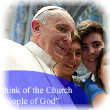 I like to think of the Church as this simple and humble people who walk in the presence of the Lord (the faithful people of God). This is the religious meaning of our faithful people. And I say faithful people so as not to fall into the many ideological approaches and schemes with which the reality of the people of God is 'reduced'. Simply faithful people, or also, Gods holy faithful people on the way, saind and sinner. And this is the Church. I like to think of the Church as this simple and humble people who walk in the presence of the Lord (the faithful people of God). This is the religious meaning of our faithful people. And I say faithful people so as not to fall into the many ideological approaches and schemes with which the reality of the people of God is 'reduced'. Simply faithful people, or also, Gods holy faithful people on the way, saind and sinner. And this is the Church. |
| |
13 April 2025
 In today’s Gospel, Luke’s account of the Passion (Luke 22:14–23:56), we are drawn into the climactic heart of the Christian story—Jesus' suffering and death. As Fr. Michael Whelan reflects, echoing Cardinal Kasper, the Gospels are not merely moral lessons but Passion narratives with extended introductions, culminating in the cross, which is not incidental but essential to the Incarnation. The mission of Jesus is not to hand us a moral code but to enter the very depths of human experience—the “abyss and night of death”—where our alienation and woundedness are most profound. In the Eucharist, we remember and participate in this transformative descent, proclaiming the liberating power of Jesus’ death and resurrection. Here, we are invited to say “Yes” to our full humanity, to embrace the mystery of salvation not as escape, but as redemption within the flesh of our lives. True freedom, as Whelan underscores, emerges when we dare to follow Jesus into the desert of our own vulnerability and allow ourselves to be found by the One who heals us. In today’s Gospel, Luke’s account of the Passion (Luke 22:14–23:56), we are drawn into the climactic heart of the Christian story—Jesus' suffering and death. As Fr. Michael Whelan reflects, echoing Cardinal Kasper, the Gospels are not merely moral lessons but Passion narratives with extended introductions, culminating in the cross, which is not incidental but essential to the Incarnation. The mission of Jesus is not to hand us a moral code but to enter the very depths of human experience—the “abyss and night of death”—where our alienation and woundedness are most profound. In the Eucharist, we remember and participate in this transformative descent, proclaiming the liberating power of Jesus’ death and resurrection. Here, we are invited to say “Yes” to our full humanity, to embrace the mystery of salvation not as escape, but as redemption within the flesh of our lives. True freedom, as Whelan underscores, emerges when we dare to follow Jesus into the desert of our own vulnerability and allow ourselves to be found by the One who heals us. |
| |
04 April 2025
 In John 8:1–11, the encounter between Jesus and the religious authorities who bring forward a woman caught in adultery reveals not only their deceit but also two deeper concerns: the misrepresentation of God’s Law and the confusion between custom and tradition. The scribes and Pharisees present themselves as guardians of the Law, yet their actions betray a lack of understanding of its deeper, liberating purpose rooted in God’s loving covenant, as expressed through the prophet Isaiah. Rather than embodying God's mercy and presence, they cling to rigid custom, mistaking it for living tradition. While tradition flows from a life-giving relationship with God, custom—though necessary—can become oppressive when detached from its original purpose. Jesus’ response exposes this distortion, shifting the focus from legalism to grace and personal transformation. His compassionate words to the woman—“Neither do I condemn you… do not sin again”—highlight a divine invitation to freedom, not condemnation, and call us to reflect on how we too interpret and live out God’s law. In John 8:1–11, the encounter between Jesus and the religious authorities who bring forward a woman caught in adultery reveals not only their deceit but also two deeper concerns: the misrepresentation of God’s Law and the confusion between custom and tradition. The scribes and Pharisees present themselves as guardians of the Law, yet their actions betray a lack of understanding of its deeper, liberating purpose rooted in God’s loving covenant, as expressed through the prophet Isaiah. Rather than embodying God's mercy and presence, they cling to rigid custom, mistaking it for living tradition. While tradition flows from a life-giving relationship with God, custom—though necessary—can become oppressive when detached from its original purpose. Jesus’ response exposes this distortion, shifting the focus from legalism to grace and personal transformation. His compassionate words to the woman—“Neither do I condemn you… do not sin again”—highlight a divine invitation to freedom, not condemnation, and call us to reflect on how we too interpret and live out God’s law. |
| |
29 March 2025
 Father Jim begins by reminding us that the Parable of the Prodigal Son is not just about the younger, rebellious son who returns seeking forgiveness, but also about the older son who remains dutiful yet becomes resentful and jealous. Jesus tells this story to a mixed audience—those who saw themselves as righteous and those who felt like sinners—so that each person could see themselves in one of the two sons. Father Jim encourages listeners to reflect on which son they relate to, recognizing that throughout life, we may shift between both roles. Father Jim begins by reminding us that the Parable of the Prodigal Son is not just about the younger, rebellious son who returns seeking forgiveness, but also about the older son who remains dutiful yet becomes resentful and jealous. Jesus tells this story to a mixed audience—those who saw themselves as righteous and those who felt like sinners—so that each person could see themselves in one of the two sons. Father Jim encourages listeners to reflect on which son they relate to, recognizing that throughout life, we may shift between both roles. |
| |
23 March 2025
 This reflection explores the theme 'Living Life’s Rollercoaster – a Marist Perspective,' drawing on the author’s sabbatical experiences and insights from Marist heritage sites in France and a leadership course in London. Through personal reflections, scriptural examples like the disciples on the road to Emmaus, and the life of Jean Claude Colin, it highlights the spiritual oscillations of life—from strength to vulnerability—and the importance of returning to sources of love and meaning. The Marist calling is described as one of compassionate presence, akin to Mary’s attentiveness at Cana, offering reassurance to others in their 'in-needness'. The sacredness of Christian worship, particularly through liturgy and Eucharist, is presented as a transformative space where individuals are reconciled, renewed, and sent forth to live out their discipleship with love and hope in the world. This reflection explores the theme 'Living Life’s Rollercoaster – a Marist Perspective,' drawing on the author’s sabbatical experiences and insights from Marist heritage sites in France and a leadership course in London. Through personal reflections, scriptural examples like the disciples on the road to Emmaus, and the life of Jean Claude Colin, it highlights the spiritual oscillations of life—from strength to vulnerability—and the importance of returning to sources of love and meaning. The Marist calling is described as one of compassionate presence, akin to Mary’s attentiveness at Cana, offering reassurance to others in their 'in-needness'. The sacredness of Christian worship, particularly through liturgy and Eucharist, is presented as a transformative space where individuals are reconciled, renewed, and sent forth to live out their discipleship with love and hope in the world. |
| |
23 March 2025
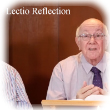 The Gospel for the Third Sunday of Lent presents a compelling invitation to repentance through Jesus’ response to tragic events: the slaughter of Galileans by Pilate and the collapse of the Tower of Siloam. Jesus challenges the belief that suffering is always a consequence of sin, making it clear that those who perished were not worse sinners than others. Rather, He emphasizes the universal call to repentance: “Unless you repent, you will all perish just as they did.” This message reframes the question from “Why do bad things happen?” to “Are we prepared to meet God?” Repentance, therefore, is not punishment—it is invitation. The Gospel for the Third Sunday of Lent presents a compelling invitation to repentance through Jesus’ response to tragic events: the slaughter of Galileans by Pilate and the collapse of the Tower of Siloam. Jesus challenges the belief that suffering is always a consequence of sin, making it clear that those who perished were not worse sinners than others. Rather, He emphasizes the universal call to repentance: “Unless you repent, you will all perish just as they did.” This message reframes the question from “Why do bad things happen?” to “Are we prepared to meet God?” Repentance, therefore, is not punishment—it is invitation. |
| |
17 March 2025
 This Spiritual Gifts Inventory is designed to help individuals identify their unique spiritual gifts by answering a series of 60 questions. Each question is presented one at a time, allowing users to respond on a scale from 0 to 4, where 0 means 'Rarely True' and 4 means 'Consistently True.' The questionnaire covers various aspects of spiritual talents, including leadership, teaching, service, creativity, faith, and hospitality. Once all questions are answered, the page calculates the scores for each spiritual gift category and presents the top results in a table, helping users recognize their strengths in spiritual ministry.Spiritual gifts are special abilities given by God to individuals for the purpose of building up the Church and serving others. These gifts, mentioned in the Bible (such as in 1 Corinthians 12, Romans 12, and Ephesians 4), include leadership, teaching, encouragement, generosity, mercy, wisdom, and more. They are not just talents but divine empowerments meant to be used in alignment with God's mission. Identifying one's spiritual gifts can guide believers in their personal faith journey, helping them discover how they can best contribute to their community and live out their calling with purpose. This Spiritual Gifts Inventory is designed to help individuals identify their unique spiritual gifts by answering a series of 60 questions. Each question is presented one at a time, allowing users to respond on a scale from 0 to 4, where 0 means 'Rarely True' and 4 means 'Consistently True.' The questionnaire covers various aspects of spiritual talents, including leadership, teaching, service, creativity, faith, and hospitality. Once all questions are answered, the page calculates the scores for each spiritual gift category and presents the top results in a table, helping users recognize their strengths in spiritual ministry.Spiritual gifts are special abilities given by God to individuals for the purpose of building up the Church and serving others. These gifts, mentioned in the Bible (such as in 1 Corinthians 12, Romans 12, and Ephesians 4), include leadership, teaching, encouragement, generosity, mercy, wisdom, and more. They are not just talents but divine empowerments meant to be used in alignment with God's mission. Identifying one's spiritual gifts can guide believers in their personal faith journey, helping them discover how they can best contribute to their community and live out their calling with purpose. |
| |
27 February 2025
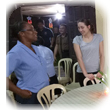 I would like to plead for a Marian church; not for a church which multiplies processions and blesses huge statues ... rather a church which 'lives the Gospel after the manner of Mary'. The Marian Church follows Mary into the mountains, going off with her to encounter life; she visits men and women, and, though things may seem to be sterile, she is on the watch for what is coming to birth, for possibilities, for the life which beats in things. I would like to plead for a Marian church; not for a church which multiplies processions and blesses huge statues ... rather a church which 'lives the Gospel after the manner of Mary'. The Marian Church follows Mary into the mountains, going off with her to encounter life; she visits men and women, and, though things may seem to be sterile, she is on the watch for what is coming to birth, for possibilities, for the life which beats in things. |
| |
27 February 2025
 Father Jim’s homily draws an interesting parallel between Sheldon Cooper from *The Big Bang Theory* and Jesus’ teaching on loving one’s enemies. Sheldon, a brilliant yet socially awkward physicist, has a rigid sense of justice, maintaining a list of sworn mortal enemies over both serious and trivial offenses. If asked, he would find Jesus’ command to “love your enemies” completely irrational, as his worldview is strictly black and white. However, the reality is that many of us also struggle with this radical teaching. While we may not have a physical list of enemies, we likely harbor resentment towards those who have wronged us, making Jesus' words just as challenging for us as they would be for Sheldon. Father Jim’s homily draws an interesting parallel between Sheldon Cooper from *The Big Bang Theory* and Jesus’ teaching on loving one’s enemies. Sheldon, a brilliant yet socially awkward physicist, has a rigid sense of justice, maintaining a list of sworn mortal enemies over both serious and trivial offenses. If asked, he would find Jesus’ command to “love your enemies” completely irrational, as his worldview is strictly black and white. However, the reality is that many of us also struggle with this radical teaching. While we may not have a physical list of enemies, we likely harbor resentment towards those who have wronged us, making Jesus' words just as challenging for us as they would be for Sheldon. |
| |
21 February 2025
 Father Jim’s presentation draws on the imagery of the Australian countryside to illustrate the spiritual message in Jeremiah’s prophecy and Jesus’ teachings. He compares trees planted by water, which remain nourished even in drought, to those who put their trust in God, while those who rely solely on themselves are like dry shrubs struggling to survive. He then connects this message to Jesus’ radical teachings in the Gospel, where blessings are given to the poor and hungry, while warnings are issued to the rich and well-fed. Unlike the more familiar 'poor in spirit' phrasing, Jesus explicitly addresses material poverty and hunger, challenging worldly values that equate wealth and security with success. Father Jim’s presentation draws on the imagery of the Australian countryside to illustrate the spiritual message in Jeremiah’s prophecy and Jesus’ teachings. He compares trees planted by water, which remain nourished even in drought, to those who put their trust in God, while those who rely solely on themselves are like dry shrubs struggling to survive. He then connects this message to Jesus’ radical teachings in the Gospel, where blessings are given to the poor and hungry, while warnings are issued to the rich and well-fed. Unlike the more familiar 'poor in spirit' phrasing, Jesus explicitly addresses material poverty and hunger, challenging worldly values that equate wealth and security with success. |
| |
14 February 2025
 Immanence, a key concept in religious thought, refers to the belief that the divine is present within the world and actively involved in human existence, contrasting with transcendence, which emphasizes God's separateness. In Christianity, God's immanence is seen through the Incarnation of Jesus Christ and the Holy Spirit’s presence within believers. Islam highlights divine closeness through Allah’s nearness, as described in the Qur'an, and practices such as prayer and remembrance of God. In Judaism, the concept of Shekhinah represents God's presence dwelling among people, deepened by Jewish mysticism. Hinduism expresses immanence through the belief that Brahman, the ultimate reality, exists within all beings as Atman, while Buddhism teaches that enlightenment is found within, through the Buddha-nature inherent in every individual. Across these traditions, immanence fosters a personal and accessible connection between the divine and humanity, shaping spiritual experiences and moral guidance. Immanence, a key concept in religious thought, refers to the belief that the divine is present within the world and actively involved in human existence, contrasting with transcendence, which emphasizes God's separateness. In Christianity, God's immanence is seen through the Incarnation of Jesus Christ and the Holy Spirit’s presence within believers. Islam highlights divine closeness through Allah’s nearness, as described in the Qur'an, and practices such as prayer and remembrance of God. In Judaism, the concept of Shekhinah represents God's presence dwelling among people, deepened by Jewish mysticism. Hinduism expresses immanence through the belief that Brahman, the ultimate reality, exists within all beings as Atman, while Buddhism teaches that enlightenment is found within, through the Buddha-nature inherent in every individual. Across these traditions, immanence fosters a personal and accessible connection between the divine and humanity, shaping spiritual experiences and moral guidance. |
| |
10 February 2025
 This task involves exploring Natural Law Theory through various learning activities. You begin by noting sources of good work in their exercise book, then watch and analyze three videos on Natural Law Theory, summarizing 15–20 key points for each. Next, they engage in ethical reasoning by examining three scenarios where moral dilemmas arise, applying Natural Law principles to determine the most virtuous course of action. You then create their own scenario and analyze it using Natural Law, emphasizing concepts like human dignity, rationality, and moral responsibility. They share and discuss their scenarios with peers, providing constructive feedback on moral reasoning and clarity. Finally, students summarize their discussions, take a photo of their completed work, and submit it for marking. This task involves exploring Natural Law Theory through various learning activities. You begin by noting sources of good work in their exercise book, then watch and analyze three videos on Natural Law Theory, summarizing 15–20 key points for each. Next, they engage in ethical reasoning by examining three scenarios where moral dilemmas arise, applying Natural Law principles to determine the most virtuous course of action. You then create their own scenario and analyze it using Natural Law, emphasizing concepts like human dignity, rationality, and moral responsibility. They share and discuss their scenarios with peers, providing constructive feedback on moral reasoning and clarity. Finally, students summarize their discussions, take a photo of their completed work, and submit it for marking. |
| |
09 February 2025
 Fr. Jim begins by recalling a humorous scene from the movie Wayne’s World, where the main characters bow before their idol, saying, 'We're not worthy!' He connects this idea to the biblical experiences of Peter and Isaiah, both of whom felt unworthy in the presence of God. Peter, after witnessing Jesus perform the miracle of the great catch of fish, reacts by saying, 'Leave me, Lord, for I am a sinful man.' Similarly, Isaiah, upon seeing a vision of God, declares that he is unclean. Fr. Jim explains that this deep sense of unworthiness is actually a sign of a genuine encounter with God, as it reveals our human limitations in the face of divine greatness. Fr. Jim begins by recalling a humorous scene from the movie Wayne’s World, where the main characters bow before their idol, saying, 'We're not worthy!' He connects this idea to the biblical experiences of Peter and Isaiah, both of whom felt unworthy in the presence of God. Peter, after witnessing Jesus perform the miracle of the great catch of fish, reacts by saying, 'Leave me, Lord, for I am a sinful man.' Similarly, Isaiah, upon seeing a vision of God, declares that he is unclean. Fr. Jim explains that this deep sense of unworthiness is actually a sign of a genuine encounter with God, as it reveals our human limitations in the face of divine greatness. |
| |
29 January 2025
 Wonder is a powerful film about a 10 year old boy (Augie Pullman) who is born with a significant facial disfigurement. The film journeys with Augie’s transition between being home schooled and returning to regular day school. Wonder deals with several major issues such as bullying, poor self-esteem, peer pressure and family break down. Through these difficulties Augie is able to discover the goodness of who is through the relationships and friendships that form around him. Wonder is a powerful film about a 10 year old boy (Augie Pullman) who is born with a significant facial disfigurement. The film journeys with Augie’s transition between being home schooled and returning to regular day school. Wonder deals with several major issues such as bullying, poor self-esteem, peer pressure and family break down. Through these difficulties Augie is able to discover the goodness of who is through the relationships and friendships that form around him. |
| |
29 January 2025
 Twenty years ago, the parish of Narena recognized the problem of loneliness within the community, particularly among those who lived alone. Inspired by Jesus’ example of gathering people around meals, the parish initiated Community Dinners, a free weekly meal open to everyone. This initiative quickly became a vital part of many people’s lives, offering them a sense of companionship and dignity. Beyond just providing food, these dinners became a cornerstone of social connection for those who otherwise ate alone, demonstrating the power of simple acts of hospitality in fostering a sense of belonging. Twenty years ago, the parish of Narena recognized the problem of loneliness within the community, particularly among those who lived alone. Inspired by Jesus’ example of gathering people around meals, the parish initiated Community Dinners, a free weekly meal open to everyone. This initiative quickly became a vital part of many people’s lives, offering them a sense of companionship and dignity. Beyond just providing food, these dinners became a cornerstone of social connection for those who otherwise ate alone, demonstrating the power of simple acts of hospitality in fostering a sense of belonging. |
| |
19 January 2025
 Father Jim’s homily begins with an analogy to barn raising in American farming communities, where everyone comes together to build a barn for a neighbor in need. He draws a parallel to St. George’s Maronite Church in Thornleigh, where the parishioners contributed their skills—many being bricklayers and concreters—to construct the church nearly free of labor costs. This example highlights the power of community collaboration and shared responsibility in building something lasting. However, Father Jim reflects on the current situation in his own parishes, OLHC Epping and St. Gerard’s Carlingford, acknowledging that while they may not have the physical skills to build a church, they possess spiritual gifts that are just as vital in strengthening the Church, the Body of Christ. Father Jim’s homily begins with an analogy to barn raising in American farming communities, where everyone comes together to build a barn for a neighbor in need. He draws a parallel to St. George’s Maronite Church in Thornleigh, where the parishioners contributed their skills—many being bricklayers and concreters—to construct the church nearly free of labor costs. This example highlights the power of community collaboration and shared responsibility in building something lasting. However, Father Jim reflects on the current situation in his own parishes, OLHC Epping and St. Gerard’s Carlingford, acknowledging that while they may not have the physical skills to build a church, they possess spiritual gifts that are just as vital in strengthening the Church, the Body of Christ. |
| |
01 January 2025
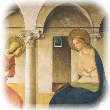 In this present period of the beginning of the Third Millennium we wish to turn in a special way to her (Mary) the one who in the night of the Advent expectation began to shine like a true Morning Star, for just as this star, together with the dawn precedes the rising of the sun, so Mary from the time of her Immaculate Conception preceded the coming of the Saviour Her presence in the midst of Israel a presence so discreet as to pass almost unnoticed by the eyes of her contemporaries shone very clearly before the Eternal One who had associated the hidden daughter of Zion with the plan of salvation embracing the whole history of humanity. In this present period of the beginning of the Third Millennium we wish to turn in a special way to her (Mary) the one who in the night of the Advent expectation began to shine like a true Morning Star, for just as this star, together with the dawn precedes the rising of the sun, so Mary from the time of her Immaculate Conception preceded the coming of the Saviour Her presence in the midst of Israel a presence so discreet as to pass almost unnoticed by the eyes of her contemporaries shone very clearly before the Eternal One who had associated the hidden daughter of Zion with the plan of salvation embracing the whole history of humanity. |
| |
30 December 2024
 In his homily, Father Jim reflects on the idea of 'family' through the lens of the Holy Family and the broader spiritual family of the Church. He shares that as a priest, his parish is both his home and family. Even during holidays, he prioritizes his parish responsibilities, with his natural family understanding and adapting to his unique vocation. In his homily, Father Jim reflects on the idea of 'family' through the lens of the Holy Family and the broader spiritual family of the Church. He shares that as a priest, his parish is both his home and family. Even during holidays, he prioritizes his parish responsibilities, with his natural family understanding and adapting to his unique vocation. |
| |
22 December 2024
 In a reflective homily, Father Jim draws inspiration from his old parish priest, Father Bill Meum, who consistently emphasized the message of God's love and the importance of radiating kindness. Father Jim adopts this recurring theme, highlighting the significance of repetition until such fundamental truths are deeply internalized by the congregation. He connects this message to the approaching Christmas season, a prime opportunity for evangelization not through outward outreach but by welcoming those who come to church during this time. In a reflective homily, Father Jim draws inspiration from his old parish priest, Father Bill Meum, who consistently emphasized the message of God's love and the importance of radiating kindness. Father Jim adopts this recurring theme, highlighting the significance of repetition until such fundamental truths are deeply internalized by the congregation. He connects this message to the approaching Christmas season, a prime opportunity for evangelization not through outward outreach but by welcoming those who come to church during this time. |
| |
21 December 2024
 Reflecting on why attending church is essential, especially in a society where it often seems undervalued, one can't help but notice the low attendance rates—only about 15% of Australians attend religious services monthly, leaving a majority outside the regular church community. In a secular culture dominated by values like entertainment, success, and wealth, church offers a stark contrast, promoting charity and spiritual growth over material gain. Yet, the essence of 'church' extends beyond just a building; it embodies the community of God's people. While one can spiritually grow without physically going to church, similar to learning without schooling or eating without shopping, engaging directly in church activities enhances spiritual development much like driving a car teaches driving more effectively than theoretical study. Church is designed not just for individual growth but communal connection, where like branches on a vine, being part of a larger body enriches our faith. Despite its flaws and the serious issues it faces, such as clerical abuse and corruption, church remains a fundamental part of Christian life. It's where we learn forgiveness and community building, as Jesus taught us to forgive 'seventy-seven times,' demonstrating that church is both a place of learning and a source of spiritual support. Thus, attending church pushes us beyond comfort, challenging us to live out our faith actively and communally. Reflecting on why attending church is essential, especially in a society where it often seems undervalued, one can't help but notice the low attendance rates—only about 15% of Australians attend religious services monthly, leaving a majority outside the regular church community. In a secular culture dominated by values like entertainment, success, and wealth, church offers a stark contrast, promoting charity and spiritual growth over material gain. Yet, the essence of 'church' extends beyond just a building; it embodies the community of God's people. While one can spiritually grow without physically going to church, similar to learning without schooling or eating without shopping, engaging directly in church activities enhances spiritual development much like driving a car teaches driving more effectively than theoretical study. Church is designed not just for individual growth but communal connection, where like branches on a vine, being part of a larger body enriches our faith. Despite its flaws and the serious issues it faces, such as clerical abuse and corruption, church remains a fundamental part of Christian life. It's where we learn forgiveness and community building, as Jesus taught us to forgive 'seventy-seven times,' demonstrating that church is both a place of learning and a source of spiritual support. Thus, attending church pushes us beyond comfort, challenging us to live out our faith actively and communally. |
| |
17 December 2024
 Advent is a season of waiting, hope, and anticipation, observed by Christians in the weeks leading up to Christmas. It mirrors Israel’s centuries-long wait for the promised Savior, as foretold in the Old Testament. Prophecies about a virgin’s son, a descendant of Abraham, Isaac, Jacob, and David, and a child born in Bethlehem called Immanuel were fulfilled in the birth of Jesus, the true Light of the world. Advent symbolizes this waiting with the lighting of four candles—one each week—signifying hope, peace, joy, and love. Churches are adorned with blue, reflecting hope as they prepare to welcome their King. The season is not just about remembering Jesus' first coming at Christmas but also about anticipating His second coming on the Last Day. As Christians, we wait and pray for Christ to return, making Advent a time of reflection on the past and hope for the future. Advent is a season of waiting, hope, and anticipation, observed by Christians in the weeks leading up to Christmas. It mirrors Israel’s centuries-long wait for the promised Savior, as foretold in the Old Testament. Prophecies about a virgin’s son, a descendant of Abraham, Isaac, Jacob, and David, and a child born in Bethlehem called Immanuel were fulfilled in the birth of Jesus, the true Light of the world. Advent symbolizes this waiting with the lighting of four candles—one each week—signifying hope, peace, joy, and love. Churches are adorned with blue, reflecting hope as they prepare to welcome their King. The season is not just about remembering Jesus' first coming at Christmas but also about anticipating His second coming on the Last Day. As Christians, we wait and pray for Christ to return, making Advent a time of reflection on the past and hope for the future. |
| |
24 November 2024
 The story of the Samaritan woman at the well in John 4 reveals Jesus as the source of unending spiritual life, offering the living water of the Spirit to all who seek it. By breaking societal and religious taboos, Jesus demonstrates radical inclusion, extending God’s covenant beyond the chosen few to embrace everyone, even those marginalized or rejected. The Samaritan woman symbolizes humanity’s search for meaning and hope, challenging us to confront our own prejudices and barriers to love. Her leaving behind the water jar represents letting go of worldly attachments to embrace the transformative gift of Jesus’ love. This living water, which requires authentic worship in spirit and truth, quenches our deepest thirsts, renewing us and calling us to share God’s hope and life with others. The story of the Samaritan woman at the well in John 4 reveals Jesus as the source of unending spiritual life, offering the living water of the Spirit to all who seek it. By breaking societal and religious taboos, Jesus demonstrates radical inclusion, extending God’s covenant beyond the chosen few to embrace everyone, even those marginalized or rejected. The Samaritan woman symbolizes humanity’s search for meaning and hope, challenging us to confront our own prejudices and barriers to love. Her leaving behind the water jar represents letting go of worldly attachments to embrace the transformative gift of Jesus’ love. This living water, which requires authentic worship in spirit and truth, quenches our deepest thirsts, renewing us and calling us to share God’s hope and life with others. |
| |
14 November 2024
 Within the Religious Education high school classroom in Australia most students come from a plural context with different faith perspectives, values and life experiences. McCrindles research states 'Overall, only 9% of Christians actively practise and regularly attend a place of worship' (2022). That means out of a class of 28 students you might have 2 or 3 students who regularly attend church. This is well outside the mono Christian culture and context that existed in the past generations where there was high church attendance and a prevailing Christian world view that encouraged church attendance. Within the Religious Education high school classroom in Australia most students come from a plural context with different faith perspectives, values and life experiences. McCrindles research states 'Overall, only 9% of Christians actively practise and regularly attend a place of worship' (2022). That means out of a class of 28 students you might have 2 or 3 students who regularly attend church. This is well outside the mono Christian culture and context that existed in the past generations where there was high church attendance and a prevailing Christian world view that encouraged church attendance. |
| |
10 November 2024
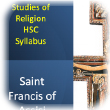 In the HSC Studies of Religion Syllabus, each Depth Study students are required to choose a person or school of thought. In Christianity, we have chosen 'Saint Francis of Assisi'. Saint Francis is an excellent person to do as he speaks volumes for us in our world today. Saint Francis shows us how to care for creation, how to care for the poor, how to make peace where there is hatred. People like Pope Francis are inpsired by the example of Saint Francis. In the HSC Studies of Religion Syllabus, each Depth Study students are required to choose a person or school of thought. In Christianity, we have chosen 'Saint Francis of Assisi'. Saint Francis is an excellent person to do as he speaks volumes for us in our world today. Saint Francis shows us how to care for creation, how to care for the poor, how to make peace where there is hatred. People like Pope Francis are inpsired by the example of Saint Francis. |
| |
10 November 2024
 In his homily, Father Jim reflects on the virtue of generosity, using the example of tax returns as a moment to assess charitable giving. He draws parallels between modern acts of generosity and biblical examples, such as the poor widow praised by Jesus for giving all she had and the widow of Zarephath who shared her last meal with Elijah. Father Jim emphasizes that the value of giving lies not in the amount but in the spirit of sacrifice and consistency. He invites the congregation to commit to regular, intentional giving, cultivating a generous character modeled on Christ’s ultimate self-giving. In his homily, Father Jim reflects on the virtue of generosity, using the example of tax returns as a moment to assess charitable giving. He draws parallels between modern acts of generosity and biblical examples, such as the poor widow praised by Jesus for giving all she had and the widow of Zarephath who shared her last meal with Elijah. Father Jim emphasizes that the value of giving lies not in the amount but in the spirit of sacrifice and consistency. He invites the congregation to commit to regular, intentional giving, cultivating a generous character modeled on Christ’s ultimate self-giving. |
| |
04 November 2024
 In his homily, Father Jim reflects on the greatest commandment given by Jesus: to love God and love our neighbor as ourselves. He emphasizes that these two commands are inseparable; we cannot truly love God without also loving our neighbor, and vice versa. Father Jim then delves into the idea of loving God with our whole heart, exploring the challenges we face in achieving wholehearted love due to our fragmented human nature. He highlights Pope Francis’ recent encyclical, Delict Nos, which invites us to rediscover the Sacred Heart of Jesus as a model for wholehearted love. Through prayer and meditation on the Sacred Heart, we can deepen our capacity to love both God and others, as Jesus did. The devotion to the Sacred Heart calls us to a dual commitment: a personal spiritual journey with God and a compassionate mission to love humanity. Father Jim encourages us to embrace this path to strengthen our love for both God and our neighbors. In his homily, Father Jim reflects on the greatest commandment given by Jesus: to love God and love our neighbor as ourselves. He emphasizes that these two commands are inseparable; we cannot truly love God without also loving our neighbor, and vice versa. Father Jim then delves into the idea of loving God with our whole heart, exploring the challenges we face in achieving wholehearted love due to our fragmented human nature. He highlights Pope Francis’ recent encyclical, Delict Nos, which invites us to rediscover the Sacred Heart of Jesus as a model for wholehearted love. Through prayer and meditation on the Sacred Heart, we can deepen our capacity to love both God and others, as Jesus did. The devotion to the Sacred Heart calls us to a dual commitment: a personal spiritual journey with God and a compassionate mission to love humanity. Father Jim encourages us to embrace this path to strengthen our love for both God and our neighbors. |
| |
28 October 2024
 Father Jim’s speech, 'Why My Father Didn't Pray', reflects on prayer as a relationship with God rather than simply a way of informing God about our needs. He compares God’s desire for us to express our desires and fears directly to the relationship between parents and children, where parents cherish when children openly share their hearts. Father Jim explains that just as a parent prefers their child’s honest communication, God wants us to trust Him enough to voice our hopes, regrets, and dreams. Using the story of Jesus healing the blind man, he emphasizes that God, like Jesus, invites us to name our deepest desires and speak them openly in prayer. Through this process, we exercise and refine our desires, as St. Augustine says, by bringing our true needs to light and aligning them with God’s will. Father Jim contrasts the blind man's prayer for healing, which Jesus grants, with the disciples’ desire for status, which Jesus lovingly redirects, helping them grow. In this way, honest prayer can help us understand our true needs and allow God to purify our desires, drawing us closer in relationship with Him. Father Jim’s speech, 'Why My Father Didn't Pray', reflects on prayer as a relationship with God rather than simply a way of informing God about our needs. He compares God’s desire for us to express our desires and fears directly to the relationship between parents and children, where parents cherish when children openly share their hearts. Father Jim explains that just as a parent prefers their child’s honest communication, God wants us to trust Him enough to voice our hopes, regrets, and dreams. Using the story of Jesus healing the blind man, he emphasizes that God, like Jesus, invites us to name our deepest desires and speak them openly in prayer. Through this process, we exercise and refine our desires, as St. Augustine says, by bringing our true needs to light and aligning them with God’s will. Father Jim contrasts the blind man's prayer for healing, which Jesus grants, with the disciples’ desire for status, which Jesus lovingly redirects, helping them grow. In this way, honest prayer can help us understand our true needs and allow God to purify our desires, drawing us closer in relationship with Him. |
| |
23 October 2024
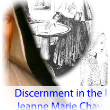 The early Christian community was a faith community, sharing a common belief in a resurrected Jesus, a loving Father and an empowering Spirit. So strong was this belief and the power it had to draw its members together in true communion that it be came a counter-cultural and prophetic force, able to attract new members from every class of people and race, holding them together in a life of mutual love and service. The early Christian community was a faith community, sharing a common belief in a resurrected Jesus, a loving Father and an empowering Spirit. So strong was this belief and the power it had to draw its members together in true communion that it be came a counter-cultural and prophetic force, able to attract new members from every class of people and race, holding them together in a life of mutual love and service.
Every religious community modelled on the early Church comÂmunity is called to be a faith community with these and other similar characteristics. |
| |
23 October 2024
 In 'How Do We Serve,' Father Jim reflects on the importance of service in the Christian life. He begins by sharing the story of a young woman named Aren, who returned from a mission trip to the Philippines, where she and her classmates helped build and paint classrooms. Father Jim explains that while the physical work done on such trips is valuable, the real benefit is the sense of solidarity and connection the mission creates, showing the international and intercultural nature of the Church. More importantly, it introduces young people to the joy of service, a concept that is not always embraced in today's culture, which often prioritizes personal convenience over serving others. In 'How Do We Serve,' Father Jim reflects on the importance of service in the Christian life. He begins by sharing the story of a young woman named Aren, who returned from a mission trip to the Philippines, where she and her classmates helped build and paint classrooms. Father Jim explains that while the physical work done on such trips is valuable, the real benefit is the sense of solidarity and connection the mission creates, showing the international and intercultural nature of the Church. More importantly, it introduces young people to the joy of service, a concept that is not always embraced in today's culture, which often prioritizes personal convenience over serving others. |
| |
14 October 2024
 In Father Jim's homily, he shares a personal experience from his pilgrimage on the Camino de Santiago. After walking 800 kilometers, he arrived early at the Cathedral of Santiago de Compostela to secure a good seat for Mass. However, just before Mass began, an older man struggled to find a seat in the crowded church. Father Jim's friend, Josh, selflessly offered his seat to the man, demonstrating an act of kindness that left Father Jim reflecting on his own attachment to his plans and comfort. In Father Jim's homily, he shares a personal experience from his pilgrimage on the Camino de Santiago. After walking 800 kilometers, he arrived early at the Cathedral of Santiago de Compostela to secure a good seat for Mass. However, just before Mass began, an older man struggled to find a seat in the crowded church. Father Jim's friend, Josh, selflessly offered his seat to the man, demonstrating an act of kindness that left Father Jim reflecting on his own attachment to his plans and comfort. |
| |
04 October 2024
 'Mercy is Another Name for God' by Father Michael Whelan SM explores the Marist tradition's focus on mercy as a core aspect of spiritual life, drawing on the teachings and history of key Marist figures, such as Father Jean Claude Colin. The document emphasizes the transformative power of mercy, inspired by Mary’s gentle and welcoming presence within the Church, and calls for a renewed consciousness in how we embody mercy in our relationships and actions. With reflections on scripture, the teachings of Pope Francis, and the practical examples of mercy's role in daily life and ministry, the text invites readers to see mercy as a way of being and to act as instruments of God’s compassionate love in the world. 'Mercy is Another Name for God' by Father Michael Whelan SM explores the Marist tradition's focus on mercy as a core aspect of spiritual life, drawing on the teachings and history of key Marist figures, such as Father Jean Claude Colin. The document emphasizes the transformative power of mercy, inspired by Mary’s gentle and welcoming presence within the Church, and calls for a renewed consciousness in how we embody mercy in our relationships and actions. With reflections on scripture, the teachings of Pope Francis, and the practical examples of mercy's role in daily life and ministry, the text invites readers to see mercy as a way of being and to act as instruments of God’s compassionate love in the world. |
| |
08 September 2024
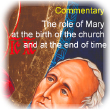 In Father Colin’s thought,of the phrase “Ignoti et occulti†brought out the necessity of a careful studyof what Father Founder meant when he pointed to Our Lady herself as amodel for our hidden apostolate. For there are undoubtedly numerous waysof interpreting this idea of an imitation of the hidden life of Mary and,while each of these has an equal right to exist in the Church, it is essentialfor us that we should grasp clearly what our Founder meant when he recommended that we be unknown and hidden in the world after the exampleof Our Lady. In Father Colin’s thought,of the phrase “Ignoti et occulti†brought out the necessity of a careful studyof what Father Founder meant when he pointed to Our Lady herself as amodel for our hidden apostolate. For there are undoubtedly numerous waysof interpreting this idea of an imitation of the hidden life of Mary and,while each of these has an equal right to exist in the Church, it is essentialfor us that we should grasp clearly what our Founder meant when he recommended that we be unknown and hidden in the world after the exampleof Our Lady. |
| |
18 August 2024
 The article explores the concept of humility within the context of contemporary spirituality, contrasting modern understandings of self-esteem and authenticity with traditional views, particularly those of Jean-Claude Colin. It critiques the historical practice of using humiliation as a means to achieve humility, arguing that true humility involves recognizing and affirming one's authentic self, rather than denigrating it. The article emphasizes that humility is about living truthfully in relationship with God, others, and the world, and that this authentic self-awareness contributes to the wholeness and growth of both the individual and the community. Ultimately, it suggests that humility should empower individuals to live out their God-given talents in service to others, rather than suppressing their true identity. The article explores the concept of humility within the context of contemporary spirituality, contrasting modern understandings of self-esteem and authenticity with traditional views, particularly those of Jean-Claude Colin. It critiques the historical practice of using humiliation as a means to achieve humility, arguing that true humility involves recognizing and affirming one's authentic self, rather than denigrating it. The article emphasizes that humility is about living truthfully in relationship with God, others, and the world, and that this authentic self-awareness contributes to the wholeness and growth of both the individual and the community. Ultimately, it suggests that humility should empower individuals to live out their God-given talents in service to others, rather than suppressing their true identity. |
| |
07 July 2024
 Father Jim's homily focuses on the concept of risks and how to mitigate them, using both practical and spiritual approaches. He begins by discussing tangible risks, such as the possibility of the church burning down, and explains that a little bit of worry can be beneficial because it prompts us to take preventive measures, like updating power circuits and having fire extinguishers. Similarly, in driving, some worry ensures that we follow safety protocols like wearing seat belts and obeying speed limits. Father Jim's homily focuses on the concept of risks and how to mitigate them, using both practical and spiritual approaches. He begins by discussing tangible risks, such as the possibility of the church burning down, and explains that a little bit of worry can be beneficial because it prompts us to take preventive measures, like updating power circuits and having fire extinguishers. Similarly, in driving, some worry ensures that we follow safety protocols like wearing seat belts and obeying speed limits. |
| |
05 July 2024
 In the digital age, the debate between the efficacy of traditional paper and electronic screens as learning mediums has garnered significant attention. Numerous studies have examined various dimensions of this issue, consistently demonstrating that paper often provides a superior medium for learning compared to digital screens like computers or iPads. This essay explores the existing research that highlights the advantages of paper over electronic media in educational contexts. In the digital age, the debate between the efficacy of traditional paper and electronic screens as learning mediums has garnered significant attention. Numerous studies have examined various dimensions of this issue, consistently demonstrating that paper often provides a superior medium for learning compared to digital screens like computers or iPads. This essay explores the existing research that highlights the advantages of paper over electronic media in educational contexts. |
| |
30 June 2024
 Father Jim’s homily delves into the profound challenge of reconciling the biblical accounts of miracles with the absence of such events in modern times. He begins by recounting a story where a community prayed fervently for a dying woman’s resurrection, mirroring the miracles of Jesus, but faced deep disappointment when the miracle did not materialize. This incident led to a crisis of faith for some, including a departure from the church. Father Jim’s homily delves into the profound challenge of reconciling the biblical accounts of miracles with the absence of such events in modern times. He begins by recounting a story where a community prayed fervently for a dying woman’s resurrection, mirroring the miracles of Jesus, but faced deep disappointment when the miracle did not materialize. This incident led to a crisis of faith for some, including a departure from the church. |
| |
16 June 2024
 Father Jim's homily begins with a vivid comparison, likening the first experiences of prominent figures like Lionel Messi, Ash Barty, and Taylor Swift in their respective fields to the first Holy Communion for the children in the parish. He emphasizes the potential life-defining impact of these initial moments, suggesting that receiving Holy Communion could similarly shape the lives of these young parishioners. Father Jim's homily begins with a vivid comparison, likening the first experiences of prominent figures like Lionel Messi, Ash Barty, and Taylor Swift in their respective fields to the first Holy Communion for the children in the parish. He emphasizes the potential life-defining impact of these initial moments, suggesting that receiving Holy Communion could similarly shape the lives of these young parishioners. |
| |
06 June 2024
 Marist Spirituality. Marcellin Champagnat Marist Spirituality. Marcellin Champagnat |
| |
26 May 2024
 In his homily, Father Jim addresses the pressing issues of gender and domestic violence in the context of recent Australian demonstrations and government actions. He connects these societal challenges to the feast day of the Holy Trinity, proposing that the church's teachings, particularly the Theology of the Body as articulated by Pope John Paul II, offer profound insights. This doctrine emphasizes the sanctity of sexual union and marriage as reflections of divine love and mutual respect, suggesting that embracing these values could lead to healthier relationships and a decrease in violence. Father Jim argues for a societal shift towards these teachings to foster respect and stability in personal relationships, potentially mitigating the cycles of domestic and gender violence. In his homily, Father Jim addresses the pressing issues of gender and domestic violence in the context of recent Australian demonstrations and government actions. He connects these societal challenges to the feast day of the Holy Trinity, proposing that the church's teachings, particularly the Theology of the Body as articulated by Pope John Paul II, offer profound insights. This doctrine emphasizes the sanctity of sexual union and marriage as reflections of divine love and mutual respect, suggesting that embracing these values could lead to healthier relationships and a decrease in violence. Father Jim argues for a societal shift towards these teachings to foster respect and stability in personal relationships, potentially mitigating the cycles of domestic and gender violence. |
| |
24 May 2024
 Bishop Fintan's speech on May 24th, the feast day of Mary Help of Christians, delves into the deep-rooted devotion to Mary under this title, tracing its historical significance back to Patristic times with references by Saint John Chrysostom around 345 AD. This devotion expanded significantly over the centuries, particularly in relation to major historical battles such as Lepanto and Vienna, where prayers to Mary, often invoked through the Rosary, were credited with miraculous victories. He highlights the declaration of the feast day by Pope Pius V following the liberation from Napoleon and its special importance to the Salesian order, championed by Saint John Bosco who held a profound reverence for Mary Help of Christians. Bishop Fintan's speech on May 24th, the feast day of Mary Help of Christians, delves into the deep-rooted devotion to Mary under this title, tracing its historical significance back to Patristic times with references by Saint John Chrysostom around 345 AD. This devotion expanded significantly over the centuries, particularly in relation to major historical battles such as Lepanto and Vienna, where prayers to Mary, often invoked through the Rosary, were credited with miraculous victories. He highlights the declaration of the feast day by Pope Pius V following the liberation from Napoleon and its special importance to the Salesian order, championed by Saint John Bosco who held a profound reverence for Mary Help of Christians. |
| |
20 May 2024
 Father Richard Leonard's presentation on his book 'Why God: Stories to Inspire Faith' was a rich dialogue exploring the intersections of faith, storytelling, and the challenges of contemporary life. He started by explaining how the book compiles various narratives that reflect on the presence and role of God in modern society. These stories aim to bridge the gap between ancient faith traditions and today's diverse, often secularized cultural landscapes. Father Richard Leonard's presentation on his book 'Why God: Stories to Inspire Faith' was a rich dialogue exploring the intersections of faith, storytelling, and the challenges of contemporary life. He started by explaining how the book compiles various narratives that reflect on the presence and role of God in modern society. These stories aim to bridge the gap between ancient faith traditions and today's diverse, often secularized cultural landscapes. |
| |
19 May 2024
 Father John Thornhill reflects on the significant milestone of the 150th anniversary of the Society of Mary, emphasizing a revitalized commitment to their foundational mission as envisioned by their early leaders, particularly Jean-Claude Colin. This renewal is seen as a return to the genuine zeal for mission that characterized the Society’s early expansion and effectiveness in addressing the urgent pastoral needs of the time, inspired by Mary’s role in the Church. Thornhill notes a shift from a period of introspective institutional maintenance back to a dynamic engagement with the Church’s mission, advocating a refounding of the Society to realign with its original purpose and adapt to contemporary challenges. This refounding involves recognizing and embracing the unique mission of the Society, to renew the Church in Mary’s image, addressing today’s spiritual and pastoral needs with new vigor and a clear sense of identity. Father John Thornhill reflects on the significant milestone of the 150th anniversary of the Society of Mary, emphasizing a revitalized commitment to their foundational mission as envisioned by their early leaders, particularly Jean-Claude Colin. This renewal is seen as a return to the genuine zeal for mission that characterized the Society’s early expansion and effectiveness in addressing the urgent pastoral needs of the time, inspired by Mary’s role in the Church. Thornhill notes a shift from a period of introspective institutional maintenance back to a dynamic engagement with the Church’s mission, advocating a refounding of the Society to realign with its original purpose and adapt to contemporary challenges. This refounding involves recognizing and embracing the unique mission of the Society, to renew the Church in Mary’s image, addressing today’s spiritual and pastoral needs with new vigor and a clear sense of identity. |
| |
10 May 2024
 The letter titled 'Like Mary, Bearers of Hope' from the Superior General of the Society of Mary reflects on his experiences and insights gained from leading the society over the past six years. He emphasizes the profound impact of deep conversations and the trust shared among the members, which he considers a grace of his leadership role. The letter titled 'Like Mary, Bearers of Hope' from the Superior General of the Society of Mary reflects on his experiences and insights gained from leading the society over the past six years. He emphasizes the profound impact of deep conversations and the trust shared among the members, which he considers a grace of his leadership role. |
| |
04 May 2024
 Brother Tony Leon's reflections during the Spirituality Day entitled 'Living with Today's Paradoxes' emphasize the profound and transformative aspects of embracing paradoxes in spiritual life. Here's a summary of the key points and quotes from the provided resource: Brother Tony Leon's reflections during the Spirituality Day entitled 'Living with Today's Paradoxes' emphasize the profound and transformative aspects of embracing paradoxes in spiritual life. Here's a summary of the key points and quotes from the provided resource: |
| |
06 April 2024
 Francis Chan's talk emphasizes the profound importance of God's love and presence in the lives of believers, urging them to maintain a deep, personal connection with God beyond mere religious knowledge. He discusses the church's current series on God's love, motivated by a collective desire to ground the congregation in the fundamental understanding of being loved by a holy God. Chan highlights the limitations of teaching alone and stresses the necessity of prayer to break spiritual strongholds, invoking the mystery of spiritual transformation through communal prayer. Francis Chan's talk emphasizes the profound importance of God's love and presence in the lives of believers, urging them to maintain a deep, personal connection with God beyond mere religious knowledge. He discusses the church's current series on God's love, motivated by a collective desire to ground the congregation in the fundamental understanding of being loved by a holy God. Chan highlights the limitations of teaching alone and stresses the necessity of prayer to break spiritual strongholds, invoking the mystery of spiritual transformation through communal prayer. |
| |
04 April 2024
 Bishop Robert's talk on the Holy Spirit emphasizes the critical role and vibrant presence of the Holy Spirit in the life of the Church and its believers, leading up to the feast of Pentecost. He argues against the notion that the importance of the Holy Spirit is underplayed, pointing out the Spirit's evident work throughout Scripture and Church history. The Holy Spirit, sent by the Father and the Son, is likened to the soul of the Mystical Body, vital for animating the Church's life. Bishop Robert's talk on the Holy Spirit emphasizes the critical role and vibrant presence of the Holy Spirit in the life of the Church and its believers, leading up to the feast of Pentecost. He argues against the notion that the importance of the Holy Spirit is underplayed, pointing out the Spirit's evident work throughout Scripture and Church history. The Holy Spirit, sent by the Father and the Son, is likened to the soul of the Mystical Body, vital for animating the Church's life. |
| |
01 April 2024
 Father Jim's homily addresses the poignant question of celebrating Easter amidst suffering, specifically in conflict-ridden areas like Ukraine and Gaza. He affirms that Easter will indeed be celebrated there, albeit differently from traditional celebrations, underlining the profound significance of Easter in places marked by hardship. Drawing parallels between the first Easter and current conflicts, he highlights how Jesus' resurrection was God's affirmation of Jesus' mission and a reversal of the forces leading to his death, embodying the triumph over sin, death, suffering, violence, hate, and fear. Father Jim's homily addresses the poignant question of celebrating Easter amidst suffering, specifically in conflict-ridden areas like Ukraine and Gaza. He affirms that Easter will indeed be celebrated there, albeit differently from traditional celebrations, underlining the profound significance of Easter in places marked by hardship. Drawing parallels between the first Easter and current conflicts, he highlights how Jesus' resurrection was God's affirmation of Jesus' mission and a reversal of the forces leading to his death, embodying the triumph over sin, death, suffering, violence, hate, and fear. |
| |
30 March 2024
 Father Jim's homily delves into the profound nature of grief and memory through the poignant story of Stuart Diver, a man deeply acquainted with loss. Stuart, the sole survivor of the 1997 Thredbo Landslide which claimed 18 lives including his wife Sally, navigated the tumultuous waters of grief with remarkable resilience. This experience prepared him for the future loss of his second wife, Rosanna, to cancer. Together, they embarked on a journey of creating lasting memories, a testament to their love and foresight, crafting a legacy for their daughter, Alesia, to cherish. Father Jim's homily delves into the profound nature of grief and memory through the poignant story of Stuart Diver, a man deeply acquainted with loss. Stuart, the sole survivor of the 1997 Thredbo Landslide which claimed 18 lives including his wife Sally, navigated the tumultuous waters of grief with remarkable resilience. This experience prepared him for the future loss of his second wife, Rosanna, to cancer. Together, they embarked on a journey of creating lasting memories, a testament to their love and foresight, crafting a legacy for their daughter, Alesia, to cherish. |
| |
17 March 2024
 Father Jim's homily, 'The Promise of a New Covenant,' draws a parallel between the love story in Nicholas Sparks' novel and film 'The Notebook' and the biblical narrative, highlighting the Bible as a love story between God and His people. He explains how, like the notebook in the story, the Bible serves as a reminder of God's love, especially when we feel distant or forgetful of this profound connection. The homily traces the journey of God's relationship with humanity from the Old Testament's covenants with Noah, Abraham, and Moses, through to the New Testament with Jesus and His disciples. Father Jim emphasizes the recurring theme of human failure to uphold these covenants, leading to the introduction of a new covenant through the Prophet Jeremiah during Israel's exile in Babylon. This new covenant promises a deep, heart-written relationship with God, distinct from the external adherence to laws represented by the stone tablets of the Ten Commandments. Jesus' sacrifice and the establishment of the Eucharist are presented as the fulfillment of this new covenant, offering a deeper, more interior relationship with God. Father Jim encourages listeners to renew and deepen their love for Jesus, especially during Easter, as a response to understanding the sacrifice He made for us, which is at the heart of this new covenant. Father Jim's homily, 'The Promise of a New Covenant,' draws a parallel between the love story in Nicholas Sparks' novel and film 'The Notebook' and the biblical narrative, highlighting the Bible as a love story between God and His people. He explains how, like the notebook in the story, the Bible serves as a reminder of God's love, especially when we feel distant or forgetful of this profound connection. The homily traces the journey of God's relationship with humanity from the Old Testament's covenants with Noah, Abraham, and Moses, through to the New Testament with Jesus and His disciples. Father Jim emphasizes the recurring theme of human failure to uphold these covenants, leading to the introduction of a new covenant through the Prophet Jeremiah during Israel's exile in Babylon. This new covenant promises a deep, heart-written relationship with God, distinct from the external adherence to laws represented by the stone tablets of the Ten Commandments. Jesus' sacrifice and the establishment of the Eucharist are presented as the fulfillment of this new covenant, offering a deeper, more interior relationship with God. Father Jim encourages listeners to renew and deepen their love for Jesus, especially during Easter, as a response to understanding the sacrifice He made for us, which is at the heart of this new covenant. |
| |
09 March 2024
 Father Jim's homily draws a parallel between the dystopian future depicted in Margaret Atwood's 'The Handmaid's Tale' and the grim recounting of Israel's downfall in the last chapter of 2 Chronicles. He highlights how both narratives reflect the darkest aspects of human nature, cataloging acts of violence and infidelity that, unfortunately, are not confined to fiction or ancient history but are realities of human behavior across time. This connection serves as a backdrop for the Lenten season's turning point, moving from the positive covenants God made with Noah, Abraham, and Moses to the unraveling of Israel's faith and morality, underscoring humanity's universal sinfulness. Father Jim's homily draws a parallel between the dystopian future depicted in Margaret Atwood's 'The Handmaid's Tale' and the grim recounting of Israel's downfall in the last chapter of 2 Chronicles. He highlights how both narratives reflect the darkest aspects of human nature, cataloging acts of violence and infidelity that, unfortunately, are not confined to fiction or ancient history but are realities of human behavior across time. This connection serves as a backdrop for the Lenten season's turning point, moving from the positive covenants God made with Noah, Abraham, and Moses to the unraveling of Israel's faith and morality, underscoring humanity's universal sinfulness. |
| |
06 March 2024
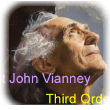 This video presents an insightful overview of Saint John Vianney, known as the Curé d'Ars, highlighting his remarkable piety, humility, and dedication to the sacrament of confession. Saint John Vianney, a 19th-century French priest, profoundly impacted Christian spirituality and pastoral care. His close association with the Marist congregation, particularly his friendship with Fr. Jean-Claude Colin, and his membership in the Marist Third Order underscored his deep commitment to fostering religious vocations and his admiration for the Marist vision. This video presents an insightful overview of Saint John Vianney, known as the Curé d'Ars, highlighting his remarkable piety, humility, and dedication to the sacrament of confession. Saint John Vianney, a 19th-century French priest, profoundly impacted Christian spirituality and pastoral care. His close association with the Marist congregation, particularly his friendship with Fr. Jean-Claude Colin, and his membership in the Marist Third Order underscored his deep commitment to fostering religious vocations and his admiration for the Marist vision. |
| |
04 March 2024
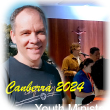 During a recent Youth Ministry Equipping School organized by the Canberra Diocese and the Australian Catholic University, Archbishop Christopher Prowse imparted a profound message to attendees, urging them to embrace the present with God's grace and to view Christianity not as a mere accumulation of resources or rituals, but as a living faith expressed through encounter, discipleship, and mission. He highlighted the need for the Catholic community to actively engage with those on the margins, following Mary's example of reaching out and listening. Emphasizing the importance of genuine spiritual conversations and acknowledging our humanity, Archbishop Prowse stressed that true discipleship involves reflecting on our experiences and being present to one another. He warned against the complacency of being 'armchair critics' and encouraged a mission that extends the Church's reach, questioning the depth of engagement behind titles like 'Social Justice Captain.' By intertwining encounter, discipleship, and mission, he envisioned a more profound service and connection within the community, guided by the spirit and mercy of God. During a recent Youth Ministry Equipping School organized by the Canberra Diocese and the Australian Catholic University, Archbishop Christopher Prowse imparted a profound message to attendees, urging them to embrace the present with God's grace and to view Christianity not as a mere accumulation of resources or rituals, but as a living faith expressed through encounter, discipleship, and mission. He highlighted the need for the Catholic community to actively engage with those on the margins, following Mary's example of reaching out and listening. Emphasizing the importance of genuine spiritual conversations and acknowledging our humanity, Archbishop Prowse stressed that true discipleship involves reflecting on our experiences and being present to one another. He warned against the complacency of being 'armchair critics' and encouraged a mission that extends the Church's reach, questioning the depth of engagement behind titles like 'Social Justice Captain.' By intertwining encounter, discipleship, and mission, he envisioned a more profound service and connection within the community, guided by the spirit and mercy of God. |
| |
03 March 2024
 Jesus is on his own with a woman on his own at a well in Samaria. Judea lies at the south of Samaria. Judea is where Jerusalem is. Galilee lies to the north of where Samaria is. Jesus spends most of his time in the north in Galilee but he did come to Jerusalem perhaps as many as 3 times. He had to pass through Samaria. The Samaritans did not like the Jews. The Jews did not like the Samaritans. There was theological opposition between these northerners and the Jews of the south because of the samaritans resistance to worshiping on Jerusalem. They had there place of worship at Mount Gerizim. The Jews had theres. Also, when the Jews returned from exile in 6th century BC 500 years before Jesus the Samaritans stood in the way. The resisted the restoration of Jerusalem. In the second century the Samaritans helped the Syria monarchs in their fight against the Jews. The Jews led by the high priest in 128 BC destroyed the Samaritan temple on Mount Gerizim. Jesus is on his own with a woman on his own at a well in Samaria. Judea lies at the south of Samaria. Judea is where Jerusalem is. Galilee lies to the north of where Samaria is. Jesus spends most of his time in the north in Galilee but he did come to Jerusalem perhaps as many as 3 times. He had to pass through Samaria. The Samaritans did not like the Jews. The Jews did not like the Samaritans. There was theological opposition between these northerners and the Jews of the south because of the samaritans resistance to worshiping on Jerusalem. They had there place of worship at Mount Gerizim. The Jews had theres. Also, when the Jews returned from exile in 6th century BC 500 years before Jesus the Samaritans stood in the way. The resisted the restoration of Jerusalem. In the second century the Samaritans helped the Syria monarchs in their fight against the Jews. The Jews led by the high priest in 128 BC destroyed the Samaritan temple on Mount Gerizim. |
| |
18 February 2024
 Father Jim's homily delves into the literary technique of foreshadowing, using the novel 'Boy Swallows Universe' as an initial illustration. He describes how seemingly nonsensical words at the beginning of the story gain profound significance by its end, serving as a pivotal clue that leads to the villains' defeat. This, he explains, exemplifies the careful planning and foresight that characterizes good storytelling, evident in both literature and film through examples like Luke Skywalker's vision in Darth Vader's helmet and Frodo's mercy towards Gollum in 'The Lord of the Rings.' Transitioning from literary to biblical narratives, Father Jim highlights how foreshadowing is also a fundamental aspect of Scripture, particularly during the Lenten season. He emphasizes that Scripture is not merely a collection of stories but a means of revealing God's actions in history and theology. Through the Lenten scriptures, he explains, we see a series of covenants foreshadowed and fulfilled, from God's promise to Noah not to destroy the earth again, signified by the rainbow, to the New Covenant instituted by Jesus at the Last Supper. These covenants and their fulfillment are central to understanding God's plan for salvation and the relationship with humanity. Father Jim's homily delves into the literary technique of foreshadowing, using the novel 'Boy Swallows Universe' as an initial illustration. He describes how seemingly nonsensical words at the beginning of the story gain profound significance by its end, serving as a pivotal clue that leads to the villains' defeat. This, he explains, exemplifies the careful planning and foresight that characterizes good storytelling, evident in both literature and film through examples like Luke Skywalker's vision in Darth Vader's helmet and Frodo's mercy towards Gollum in 'The Lord of the Rings.' Transitioning from literary to biblical narratives, Father Jim highlights how foreshadowing is also a fundamental aspect of Scripture, particularly during the Lenten season. He emphasizes that Scripture is not merely a collection of stories but a means of revealing God's actions in history and theology. Through the Lenten scriptures, he explains, we see a series of covenants foreshadowed and fulfilled, from God's promise to Noah not to destroy the earth again, signified by the rainbow, to the New Covenant instituted by Jesus at the Last Supper. These covenants and their fulfillment are central to understanding God's plan for salvation and the relationship with humanity. |
| |
15 February 2024
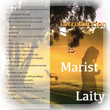 Marists seek simplicity in life. Marists search tochoose the essentials in our own life. Today, welive in an information rich world which can oftenblock out God’s word and will. A more simplelife style enables a freedom to let go of the thingswhich prevent us from striving for and findingwhat is most important. Marists seek simplicity in life. Marists search tochoose the essentials in our own life. Today, welive in an information rich world which can oftenblock out God’s word and will. A more simplelife style enables a freedom to let go of the thingswhich prevent us from striving for and findingwhat is most important. |
| |
11 February 2024
 In a world where the fabric of traditional Christianity is continually being reshaped by a secular society, the 'Association of Marist Laity: Synodal Steps' article offers a poignant reflection on the future of the Marist Communion. This thoughtful piece delves into the Marist identity within the Church, highlighting the significance of such an identity not merely as an inherited tradition but as a deliberate and active choice to live out Christ's mission with a Marist essence. The article acknowledges the challenges that accompany maintaining a religious identity in a world that increasingly values diversity and individual spirituality over traditional communal experiences. It contemplates a move from a passive reception of Christianity to an engaged, choice-driven faith, where being Marist means embracing a spirituality characterized by discretion, simplicity, and service—a way of being that permeates all aspects of life and work.The article calls on readers to consider the prophetic role of the Marist tradition in today's Church, advocating for a Church that is unified in its diversity and open to the different expressions of one spirit for the spiritual enrichment of all. It emphasizes communion over hierarchy, prophetic contribution over passive tradition, and spiritual renewal over secular challenge. The vision presented is not merely an institutional affiliation but a dynamic, living tradition that engages with the contemporary world's thirst for meaning and spirituality. The future for the Marist communion, as suggested, lies in its ability to be authentically Church—fully embodying the body of Christ in a way that remains relevant and transformative both within the ecclesial community and the broader secular society. In a world where the fabric of traditional Christianity is continually being reshaped by a secular society, the 'Association of Marist Laity: Synodal Steps' article offers a poignant reflection on the future of the Marist Communion. This thoughtful piece delves into the Marist identity within the Church, highlighting the significance of such an identity not merely as an inherited tradition but as a deliberate and active choice to live out Christ's mission with a Marist essence. The article acknowledges the challenges that accompany maintaining a religious identity in a world that increasingly values diversity and individual spirituality over traditional communal experiences. It contemplates a move from a passive reception of Christianity to an engaged, choice-driven faith, where being Marist means embracing a spirituality characterized by discretion, simplicity, and service—a way of being that permeates all aspects of life and work.The article calls on readers to consider the prophetic role of the Marist tradition in today's Church, advocating for a Church that is unified in its diversity and open to the different expressions of one spirit for the spiritual enrichment of all. It emphasizes communion over hierarchy, prophetic contribution over passive tradition, and spiritual renewal over secular challenge. The vision presented is not merely an institutional affiliation but a dynamic, living tradition that engages with the contemporary world's thirst for meaning and spirituality. The future for the Marist communion, as suggested, lies in its ability to be authentically Church—fully embodying the body of Christ in a way that remains relevant and transformative both within the ecclesial community and the broader secular society. |
| |
10 February 2024
 Father Jim's homily titled 'How To Cure A Horrible Child' uses the transformation of St. Therese from a self-described 'horrible child' into a figure of extraordinary holiness as an example of the healing power of Jesus. He describes how, despite her difficult childhood behavior, a moment of grace at the age of 14 marked the beginning of her spiritual transformation. Father Jim parallels this with the biblical story of Jesus healing a leper to illustrate the idea that Jesus desires to heal and transform us. He emphasizes that Jesus's teachings reveal God's will for our healing and wholeness, and invites us to seek Jesus's healing power in our lives, for both physical and spiritual ailments. Father Jim's homily titled 'How To Cure A Horrible Child' uses the transformation of St. Therese from a self-described 'horrible child' into a figure of extraordinary holiness as an example of the healing power of Jesus. He describes how, despite her difficult childhood behavior, a moment of grace at the age of 14 marked the beginning of her spiritual transformation. Father Jim parallels this with the biblical story of Jesus healing a leper to illustrate the idea that Jesus desires to heal and transform us. He emphasizes that Jesus's teachings reveal God's will for our healing and wholeness, and invites us to seek Jesus's healing power in our lives, for both physical and spiritual ailments. |
| |
29 January 2024
 Father Jim's homily 'The Goulburn School Strike' reflects on a historical event where Catholic schools in Goulburn closed in protest against inadequate funding, leading to an overwhelmed state school system. This strike marked a significant influence of the Catholic Church in society, shaping the funding and policy landscape for Catholic schools in Australia. Father Jim connects this past with the present, discussing the evolving role of the Church and civil society in shaping public policy and societal values. He emphasizes the need for a prophetic voice in society, advocating for core values and social justice through collaboration with like-minded groups, like the Sydney Alliance. This Alliance, comprising various religious and social groups, exemplifies a collective voice influencing governmental policies for the common good. Father Jim encourages active participation in such alliances to uphold Catholic values and address broader societal issues. Father Jim's homily 'The Goulburn School Strike' reflects on a historical event where Catholic schools in Goulburn closed in protest against inadequate funding, leading to an overwhelmed state school system. This strike marked a significant influence of the Catholic Church in society, shaping the funding and policy landscape for Catholic schools in Australia. Father Jim connects this past with the present, discussing the evolving role of the Church and civil society in shaping public policy and societal values. He emphasizes the need for a prophetic voice in society, advocating for core values and social justice through collaboration with like-minded groups, like the Sydney Alliance. This Alliance, comprising various religious and social groups, exemplifies a collective voice influencing governmental policies for the common good. Father Jim encourages active participation in such alliances to uphold Catholic values and address broader societal issues. |
| |
28 January 2024
 Nick Fuhrman's TED Talk 'The One Thing All Great Teachers Do' emphasizes the transformative impact of passionate teaching, exemplified by his childhood role model, Ranger Bill. Fuhrman highlights the importance of embracing mistakes as learning opportunities, recognizing individual student differences, and providing meaningful feedback. He advocates for an engaging, interactive teaching style that goes beyond just presenting information, using methods like animal interactions to enhance learning. Fuhrman's approach underlines the significance of teachers as mentors and role models, capable of instilling confidence and inspiring long-term growth in students. Nick Fuhrman's TED Talk 'The One Thing All Great Teachers Do' emphasizes the transformative impact of passionate teaching, exemplified by his childhood role model, Ranger Bill. Fuhrman highlights the importance of embracing mistakes as learning opportunities, recognizing individual student differences, and providing meaningful feedback. He advocates for an engaging, interactive teaching style that goes beyond just presenting information, using methods like animal interactions to enhance learning. Fuhrman's approach underlines the significance of teachers as mentors and role models, capable of instilling confidence and inspiring long-term growth in students. |
| |
27 January 2024
 In a dialogue between Bishop Alan McGuckian and Sister Denise Boyle, the conversation spanned Bishop McGuckian's background, emphasizing his Jesuit roots and roles within the Church, including his innovative work with the Living Church project. They discussed the nuances of Vatican II's teachings, particularly the shared authority between the Roman Pontiff and the College of Bishops, and explored the themes of co-responsibility, synodality, and the challenges of communication within the Church's hierarchical structure. The significance of prayer and spirituality in the Synod process was highlighted, as was the rich diversity of opinions, especially the impactful contributions of women and laypeople. They reflected on tradition's vitality and the importance of inclusivity in addressing concerns about youth, women, and the LGBT community. The dialogue also touched upon the transformative potential of increased female participation in Church proceedings, the community's needs during times of loneliness, and the importance of unity and collective decision-making, marking a historic moment where women had an equal voice in the bishop's synod. In a dialogue between Bishop Alan McGuckian and Sister Denise Boyle, the conversation spanned Bishop McGuckian's background, emphasizing his Jesuit roots and roles within the Church, including his innovative work with the Living Church project. They discussed the nuances of Vatican II's teachings, particularly the shared authority between the Roman Pontiff and the College of Bishops, and explored the themes of co-responsibility, synodality, and the challenges of communication within the Church's hierarchical structure. The significance of prayer and spirituality in the Synod process was highlighted, as was the rich diversity of opinions, especially the impactful contributions of women and laypeople. They reflected on tradition's vitality and the importance of inclusivity in addressing concerns about youth, women, and the LGBT community. The dialogue also touched upon the transformative potential of increased female participation in Church proceedings, the community's needs during times of loneliness, and the importance of unity and collective decision-making, marking a historic moment where women had an equal voice in the bishop's synod. |
| |
20 January 2024
 Bishop Geoffrey Robinson's presentation on sexual morality is a critical examination of the Catholic Church's traditional teachings on the subject, especially in light of the sexual abuse crisis within the Church. He challenges the assertion that every sexual act must be both unitive and procreative to align with God's will, highlighting that this perspective fails to consider the full complexity of human relationships and the individual circumstances that affect moral decisions. Bishop Geoffrey Robinson's presentation on sexual morality is a critical examination of the Catholic Church's traditional teachings on the subject, especially in light of the sexual abuse crisis within the Church. He challenges the assertion that every sexual act must be both unitive and procreative to align with God's will, highlighting that this perspective fails to consider the full complexity of human relationships and the individual circumstances that affect moral decisions. |
| |
20 January 2024
 In 2024, the 'Call to Be' group at Aquinas Academy in Sydney is pleased to present two insightful lecture series. The first, titled 'Blind to Being Blind: St John’s Gospel and the Revelation of Self-Deception,' delivered by Dr. Robert Tilley, explores the theme of self-deception as presented in the Gospel of John, highlighting the dangers of hypocrisy and the subtleties of being blind to one’s own blindness. This series, scheduled for February 7, 14, and 21, delves into how self-deception manifests in personal, political, and spiritual realms. The second series, 'Develop your own Spirituality III,' led by Fr Michael Whelan and Sr Marie Biddle, questions the adage 'Forgive and forget' and examines the interplay of the past and future in shaping human life, the role of imagination in thought processes, the importance of integrating feelings for a fulfilling life, and the significance of images, symbols, and rituals. This series runs on Thursdays, February 29, March 7, 14, and 21. Both series are held at the Crypt of St Patrick's Church, The Rocks, with registration available online. In 2024, the 'Call to Be' group at Aquinas Academy in Sydney is pleased to present two insightful lecture series. The first, titled 'Blind to Being Blind: St John’s Gospel and the Revelation of Self-Deception,' delivered by Dr. Robert Tilley, explores the theme of self-deception as presented in the Gospel of John, highlighting the dangers of hypocrisy and the subtleties of being blind to one’s own blindness. This series, scheduled for February 7, 14, and 21, delves into how self-deception manifests in personal, political, and spiritual realms. The second series, 'Develop your own Spirituality III,' led by Fr Michael Whelan and Sr Marie Biddle, questions the adage 'Forgive and forget' and examines the interplay of the past and future in shaping human life, the role of imagination in thought processes, the importance of integrating feelings for a fulfilling life, and the significance of images, symbols, and rituals. This series runs on Thursdays, February 29, March 7, 14, and 21. Both series are held at the Crypt of St Patrick's Church, The Rocks, with registration available online. |
| |
20 January 2024
 Angela Gorman provides a spiritual reflection on the beginning of Mark's Gospel where Jesus gives his good news. She delves into the meaning of conversion or Metanonia. She then explores Jesus being driven out into the desert. She connects this to our journey through the deserts of our lives. Angela suggests we have been called to follow Christ. Through the situations and moments in our lives to follow Jesus. But each of us are called in a unique way. Yet, many people have not felt the call from God. It is out privilege and blessing to share in this call. We are called to bring about good news in many different ways. Especially those on the margins. Those who are excluded. Are we ready to be Christ? Angela Gorman provides a spiritual reflection on the beginning of Mark's Gospel where Jesus gives his good news. She delves into the meaning of conversion or Metanonia. She then explores Jesus being driven out into the desert. She connects this to our journey through the deserts of our lives. Angela suggests we have been called to follow Christ. Through the situations and moments in our lives to follow Jesus. But each of us are called in a unique way. Yet, many people have not felt the call from God. It is out privilege and blessing to share in this call. We are called to bring about good news in many different ways. Especially those on the margins. Those who are excluded. Are we ready to be Christ? |
| |
01 January 2024
 'January 1 - Mother of God' explores the dual celebration of Mary's Motherhood and the World Day of Peace on January 1, highlighting the interconnectedness of these themes. It traces the feast's origin to the 5th century, solidified after the Council of Ephesus in 431, which established Mary's title as Theotokos (Mother of God). The doctrine is further affirmed by the Vatican II Council, recognizing Mary's integral role in divine salvation. The webpage also references a homily by Pope John Paul II, which contrasts the nurturing image of Mary with the infant Jesus and the sorrowful image of her holding the crucified Christ, symbolizing both the joy of birth and the pain of death. This duality underscores Mary's role in advocating for peace and justice, highlighting the importance of her intercession in sparing mothers from the loss and suffering brought by war and conflict. 'January 1 - Mother of God' explores the dual celebration of Mary's Motherhood and the World Day of Peace on January 1, highlighting the interconnectedness of these themes. It traces the feast's origin to the 5th century, solidified after the Council of Ephesus in 431, which established Mary's title as Theotokos (Mother of God). The doctrine is further affirmed by the Vatican II Council, recognizing Mary's integral role in divine salvation. The webpage also references a homily by Pope John Paul II, which contrasts the nurturing image of Mary with the infant Jesus and the sorrowful image of her holding the crucified Christ, symbolizing both the joy of birth and the pain of death. This duality underscores Mary's role in advocating for peace and justice, highlighting the importance of her intercession in sparing mothers from the loss and suffering brought by war and conflict. |
| |
27 December 2023
 Bishop Robert Barron's video 'Catholicism - Amazed and Afraid' presents a profound reflection on Jesus Christ's identity and mission, challenging the common perception of Jesus as merely an inspiring religious teacher. Instead, Bishop Barron emphasizes the radical nature of Jesus's claim to divinity and his role as the central figure of Christianity, far removed from a safe or domesticated portrayal. He discusses how Jesus, in his teachings and actions, personified God's presence, compelling a choice between acceptance and rejection with no middle ground. Jesus's life, particularly his question 'Who do people say that I am?' points directly to his unique identity as God incarnate, a claim no other religious founder makes. Bishop Robert Barron's video 'Catholicism - Amazed and Afraid' presents a profound reflection on Jesus Christ's identity and mission, challenging the common perception of Jesus as merely an inspiring religious teacher. Instead, Bishop Barron emphasizes the radical nature of Jesus's claim to divinity and his role as the central figure of Christianity, far removed from a safe or domesticated portrayal. He discusses how Jesus, in his teachings and actions, personified God's presence, compelling a choice between acceptance and rejection with no middle ground. Jesus's life, particularly his question 'Who do people say that I am?' points directly to his unique identity as God incarnate, a claim no other religious founder makes. |
| |
24 December 2023
 Br. Michael Green's presentation on the 'Christocentric and mystical foundations of Marist spirituality' emphasizes the essential focus on Jesus Christ in Marist spirituality. He reflects on how Marist spirituality, particularly as it developed from the early brothers, is relational, affective, and mystical. Green notes that throughout history, Marist spirituality has faced challenges, including risks of asceticism and 'stylism,' which could detract from its Christ-centered essence. Br. Michael Green's presentation on the 'Christocentric and mystical foundations of Marist spirituality' emphasizes the essential focus on Jesus Christ in Marist spirituality. He reflects on how Marist spirituality, particularly as it developed from the early brothers, is relational, affective, and mystical. Green notes that throughout history, Marist spirituality has faced challenges, including risks of asceticism and 'stylism,' which could detract from its Christ-centered essence. |
| |
24 December 2023
 In the presentation, Bishop Michael reflects on the significance of the name Emmanuel, which means 'God is with us,' a theme that is particularly poignant during Christmas. He highlights that this name embodies the deep connection between God and humanity through Jesus Christ, who shares in our human experience. He speaks about God's presence in various aspects of our lives, including our efforts to be virtuous, our failures, our joys, and our struggles. In the presentation, Bishop Michael reflects on the significance of the name Emmanuel, which means 'God is with us,' a theme that is particularly poignant during Christmas. He highlights that this name embodies the deep connection between God and humanity through Jesus Christ, who shares in our human experience. He speaks about God's presence in various aspects of our lives, including our efforts to be virtuous, our failures, our joys, and our struggles. |
| |
23 December 2023
 Father Michael’s homily on the fourth Sunday of Advent focuses on the Annunciation in Luke's Gospel, highlighting Mary's initial perplexity and disturbance at the angel Gabriel’s greeting. He emphasizes that encounters with God can be unsettling and do not always align with our expectations or desires. Father Michael reflects on various moments in Mary’s life where she was troubled, using these as examples of 'annunciations' that reveal God's presence in challenging times. He encourages Christians to be attentive and open to God’s enunciation in every moment, embracing these experiences as opportunities for growth and transformation. The homily concludes with a reflection on Isaiah 55:8-11, reminding us that God's ways are beyond our understanding, and His word will accomplish its purpose. Father Michael’s homily on the fourth Sunday of Advent focuses on the Annunciation in Luke's Gospel, highlighting Mary's initial perplexity and disturbance at the angel Gabriel’s greeting. He emphasizes that encounters with God can be unsettling and do not always align with our expectations or desires. Father Michael reflects on various moments in Mary’s life where she was troubled, using these as examples of 'annunciations' that reveal God's presence in challenging times. He encourages Christians to be attentive and open to God’s enunciation in every moment, embracing these experiences as opportunities for growth and transformation. The homily concludes with a reflection on Isaiah 55:8-11, reminding us that God's ways are beyond our understanding, and His word will accomplish its purpose. |
| |
20 December 2023
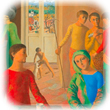 From the Church's beginnings – as the New Testament makes clear - Mary has been seen as a great sign of encouragement for believers. References to Mary, though they may seem brief, are deeply meaningful, presenting Mary as a figure of immense significance for the communities that produced these texts. St Luke, in his Gospel and Acts of the Apostles, skilfully portrays Mary as the model of discipleship, the one who 'hears the Word of God and puts it into practice'. Taking a central theme of the Scriptures, St John sees Mary as the 'woman' in God's ultimate plan, and 'mother' of the family of the disciples of Jesus. From the Church's beginnings – as the New Testament makes clear - Mary has been seen as a great sign of encouragement for believers. References to Mary, though they may seem brief, are deeply meaningful, presenting Mary as a figure of immense significance for the communities that produced these texts. St Luke, in his Gospel and Acts of the Apostles, skilfully portrays Mary as the model of discipleship, the one who 'hears the Word of God and puts it into practice'. Taking a central theme of the Scriptures, St John sees Mary as the 'woman' in God's ultimate plan, and 'mother' of the family of the disciples of Jesus. |
| |
17 December 2023
 In his homily for the third Sunday of Advent, Father Michael reflects on the concept of being 'sent' by God, as mentioned in John's Gospel (1:6-8, 19-28), especially in relation to John the Baptist. He emphasizes that our existence is intentional and purposeful, in contrast to the belief that our presence in the world is random and meaningless, a viewpoint he attributes to the prevalent cultural attitudes influenced by philosophical thoughts like those of Martin Heidegger and the lyrics of The Doors' song 'Riders on the Storm.' In his homily for the third Sunday of Advent, Father Michael reflects on the concept of being 'sent' by God, as mentioned in John's Gospel (1:6-8, 19-28), especially in relation to John the Baptist. He emphasizes that our existence is intentional and purposeful, in contrast to the belief that our presence in the world is random and meaningless, a viewpoint he attributes to the prevalent cultural attitudes influenced by philosophical thoughts like those of Martin Heidegger and the lyrics of The Doors' song 'Riders on the Storm.' |
| |
14 December 2023
 The video 'Mary from 'Who Cares About The Saints?' with Fr. James Martin, S.J.' discusses the significance of Mary in Catholic culture and personal devotion, particularly through the practice of praying the rosary. Fr. Martin shares personal anecdotes and reflects on Mary's roles as depicted in the Gospels: the Mother of God, the first disciple, and the one who points to Jesus. He delves into the story of the Annunciation, highlighting Mary's choice to accept God's will, and interprets this biblical event as a mirror to our relationship with God—showing God's approach to us, our fears, questioning, and ultimately, our acceptance. The video conveys Mary's enduring message of faithfulness and the transformative power of saying 'yes' to God's will. The video 'Mary from 'Who Cares About The Saints?' with Fr. James Martin, S.J.' discusses the significance of Mary in Catholic culture and personal devotion, particularly through the practice of praying the rosary. Fr. Martin shares personal anecdotes and reflects on Mary's roles as depicted in the Gospels: the Mother of God, the first disciple, and the one who points to Jesus. He delves into the story of the Annunciation, highlighting Mary's choice to accept God's will, and interprets this biblical event as a mirror to our relationship with God—showing God's approach to us, our fears, questioning, and ultimately, our acceptance. The video conveys Mary's enduring message of faithfulness and the transformative power of saying 'yes' to God's will. |
| |
11 December 2023
 The Video 'Who is Jesus' from Alpha provides an overview of the evidence supporting the Bible's authenticity. It emphasizes the historical and archaeological records that corroborate biblical stories. The video also highlights the consistency of biblical manuscripts over time, comparing them favorably with other ancient texts. Additionally, it mentions external sources that align with the biblical narrative about Jesus, lending further credibility to the Bible's accounts. This overview is designed to underline the reliability and historical grounding of the Bible. The Video 'Who is Jesus' from Alpha provides an overview of the evidence supporting the Bible's authenticity. It emphasizes the historical and archaeological records that corroborate biblical stories. The video also highlights the consistency of biblical manuscripts over time, comparing them favorably with other ancient texts. Additionally, it mentions external sources that align with the biblical narrative about Jesus, lending further credibility to the Bible's accounts. This overview is designed to underline the reliability and historical grounding of the Bible. |
| |
10 December 2023
 Father Michael's homily delves into the profound meaning and significance of the term 'good news' or 'gospel' in the context of Christian faith, especially as it relates to the Advent season and the birth of Jesus. Father Michael's homily delves into the profound meaning and significance of the term 'good news' or 'gospel' in the context of Christian faith, especially as it relates to the Advent season and the birth of Jesus. |
| |
02 December 2023
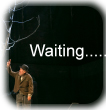 In this homily, Father Michael explores the theme of waiting, as emphasized in the Gospel of Mark (Chapter 13, Verses 33-37), where Jesus commands to 'keep alert' and 'stay awake' because 'you do not know the hour.' He asserts that waiting is an intrinsic part of human existence, an experience that confronts us with the discomfort of not being in control. This lack of control is central to the concept of waiting; if we were in control, we wouldn’t need to wait. In this homily, Father Michael explores the theme of waiting, as emphasized in the Gospel of Mark (Chapter 13, Verses 33-37), where Jesus commands to 'keep alert' and 'stay awake' because 'you do not know the hour.' He asserts that waiting is an intrinsic part of human existence, an experience that confronts us with the discomfort of not being in control. This lack of control is central to the concept of waiting; if we were in control, we wouldn’t need to wait. |
| |
26 November 2023
 In the YouTube clip 'How to Forgive People' by Bishop Robert Barron, the discussion revolves around the Christian approach to forgiveness. Bishop Barron, drawing from Tim Keller’s article and other sources, highlights several key aspects of forgiveness from a Christian perspective: Forgiveness as a Practice: Forgiveness is emphasized as a set of practices rather than primarily an emotion. It is about doing, not just feeling. Barron agrees with the post-liberal idea that practice precedes emotional changes. In the YouTube clip 'How to Forgive People' by Bishop Robert Barron, the discussion revolves around the Christian approach to forgiveness. Bishop Barron, drawing from Tim Keller’s article and other sources, highlights several key aspects of forgiveness from a Christian perspective: Forgiveness as a Practice: Forgiveness is emphasized as a set of practices rather than primarily an emotion. It is about doing, not just feeling. Barron agrees with the post-liberal idea that practice precedes emotional changes. |
| |
25 November 2023
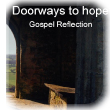 Father Michael's homily titled 'Doorway to Hope' focuses on the Feast of Christ the King and the parable of the last judgment from Matthew 25:31-46. He emphasizes that parables should be read as such, not as moral fables. Moral fables, like Aesop's, present a binary of reward for good and punishment for bad, but parables offer deeper, more complex insights. Father Michael's homily titled 'Doorway to Hope' focuses on the Feast of Christ the King and the parable of the last judgment from Matthew 25:31-46. He emphasizes that parables should be read as such, not as moral fables. Moral fables, like Aesop's, present a binary of reward for good and punishment for bad, but parables offer deeper, more complex insights. |
| |
19 November 2023
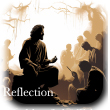 In this homily, Father Michael discusses the Parable of the Talents from Matthew 25, urging a reading as a parable rather than an allegory. He argues against a simplistic allegorical interpretation that equates the parable directly with God rewarding or punishing based on how gifts are used. Such a view, he believes, is incompatible with the broader depiction of Jesus in Matthew's gospel, which emphasizes mercy, humility, and forgiveness. In this homily, Father Michael discusses the Parable of the Talents from Matthew 25, urging a reading as a parable rather than an allegory. He argues against a simplistic allegorical interpretation that equates the parable directly with God rewarding or punishing based on how gifts are used. Such a view, he believes, is incompatible with the broader depiction of Jesus in Matthew's gospel, which emphasizes mercy, humility, and forgiveness. |
| |
19 November 2023
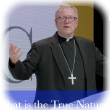 In his talk on the nature of freedom, Robert Barron explores the concept of freedom, particularly its interpretation in Western culture. He begins by referencing the influence of notable figures like Martin Luther King and Bob Dylan, using Dylan's lyrics to introduce the theme of freedom linked to truth and responsibility. Barron delves into theological perspectives on freedom, citing St. Thomas Aquinas and William of Ockham as representatives of two distinct views. Aquinas posits that true freedom aligns with God's inherent goodness, arguing that God cannot sin because His will is perfectly ordered to His goodness. In contrast, Ockham emphasizes God's absolute power, suggesting that God's will is so powerful it defines reality, thereby divorcing freedom from goodness. In his talk on the nature of freedom, Robert Barron explores the concept of freedom, particularly its interpretation in Western culture. He begins by referencing the influence of notable figures like Martin Luther King and Bob Dylan, using Dylan's lyrics to introduce the theme of freedom linked to truth and responsibility. Barron delves into theological perspectives on freedom, citing St. Thomas Aquinas and William of Ockham as representatives of two distinct views. Aquinas posits that true freedom aligns with God's inherent goodness, arguing that God cannot sin because His will is perfectly ordered to His goodness. In contrast, Ockham emphasizes God's absolute power, suggesting that God's will is so powerful it defines reality, thereby divorcing freedom from goodness. |
| |
11 November 2023
 Father Pat presented a brilliant PowerPoint production, complete with music, to illustrate his own understanding of the Marist Vision in today's world. With powerful images of St Peter's in Rome, and people in various situations he presented the image of the Patriarchal Church where love equaled obedience. He then went on to present the Marian Church where love equaled mercy which he illustrated with another image of St Peter's taken from a different angle. In between these two images is that of the Simeon Church - the contemplative Church. Father Pat presented a brilliant PowerPoint production, complete with music, to illustrate his own understanding of the Marist Vision in today's world. With powerful images of St Peter's in Rome, and people in various situations he presented the image of the Patriarchal Church where love equaled obedience. He then went on to present the Marian Church where love equaled mercy which he illustrated with another image of St Peter's taken from a different angle. In between these two images is that of the Simeon Church - the contemplative Church. |
| |
09 November 2023
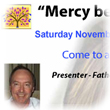 On 28th November, Marist Laity Australia held its November Reflection day, leading us into the season of Advent. Fr Ray Chapman, a Marist priest who has given MLA such wonderful support over many years, was asked to facilitate this day. Fr Ray will be finishing his time as Parish Priest of St Patrick’s Church Hill at the end of this year. Our hopes were answered when he graciously agreed to give us this parting gift. On 28th November, Marist Laity Australia held its November Reflection day, leading us into the season of Advent. Fr Ray Chapman, a Marist priest who has given MLA such wonderful support over many years, was asked to facilitate this day. Fr Ray will be finishing his time as Parish Priest of St Patrick’s Church Hill at the end of this year. Our hopes were answered when he graciously agreed to give us this parting gift.
Ray chose as the theme, Mercy begins with ME, in step with the Jubilee Year of Mercy beginning on 8th December, the feast of the Immaculate Conception. Some 50 people turned up, many of whom were wanting to tap into Ray’s wisdom before he leaves for France. |
| |
05 November 2023
 Father Michael Whelan's homily reflects on the 31st Sunday of ordinary time with a focus on the Gospel of Matthew, chapter 23, verses 1-12. In this passage, Jesus criticizes the scribes and Pharisees for their hypocrisy and self-promotion. Michael Whelan points out that this critique is unique to Matthew and may reflect tensions between Jesus and the Pharisees that were still present in the community decades after Jesus' death. Father Michael Whelan's homily reflects on the 31st Sunday of ordinary time with a focus on the Gospel of Matthew, chapter 23, verses 1-12. In this passage, Jesus criticizes the scribes and Pharisees for their hypocrisy and self-promotion. Michael Whelan points out that this critique is unique to Matthew and may reflect tensions between Jesus and the Pharisees that were still present in the community decades after Jesus' death. |
| |
02 November 2023
 Saint Francis of Assisi is revered not only as the patron saint of Italy but also of the environment and animals, reflecting his profound love for all of creation. His commitment to peace was recognized universally, with Pope Francis emphasizing his role during a religious meeting in Bulgaria. Saint Bonaventure, in 1260, and Thomas of Celano both depicted Saint Francis as a harbinger of peace. Central to Saint Francis's teachings was the belief that genuine peace arises from forgiveness. Saint Francis of Assisi is revered not only as the patron saint of Italy but also of the environment and animals, reflecting his profound love for all of creation. His commitment to peace was recognized universally, with Pope Francis emphasizing his role during a religious meeting in Bulgaria. Saint Bonaventure, in 1260, and Thomas of Celano both depicted Saint Francis as a harbinger of peace. Central to Saint Francis's teachings was the belief that genuine peace arises from forgiveness. |
| |
27 October 2023
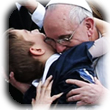 Listen to the audio of Pope Francis' message of Peace for January 2021 entitled 'A Culture of Care for the Path of Peace'. Listen to the audio of Pope Francis' message of Peace for January 2021 entitled 'A Culture of Care for the Path of Peace'. |
| |
22 October 2023
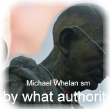 In the passage from Matthew's gospel discussed by Father Michael Whelan, the Pharisees and Herodians attempt to entrap Jesus using flattery. However, Jesus, undeterred by their deceitful praises, asserts His authority by calling them hypocrites. This narrative is particularly intriguing when juxtaposed with Jesus's later silence before Pilate. Regardless of His approach, silent or vocal, Jesus's authority is unmistakable because it stems not from societal structures or intelligence but from His very essence, embodying God's truth and love. His presence, whether through words or silence, is an authoritative force that demands attention. In the passage from Matthew's gospel discussed by Father Michael Whelan, the Pharisees and Herodians attempt to entrap Jesus using flattery. However, Jesus, undeterred by their deceitful praises, asserts His authority by calling them hypocrites. This narrative is particularly intriguing when juxtaposed with Jesus's later silence before Pilate. Regardless of His approach, silent or vocal, Jesus's authority is unmistakable because it stems not from societal structures or intelligence but from His very essence, embodying God's truth and love. His presence, whether through words or silence, is an authoritative force that demands attention. |
| |
14 October 2023
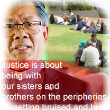 Bishop Vincent Long, during the launch of the social justice statement 'Listen, Love, Live' in August 2023, emphasized the importance of recognizing the contributions and experiences of Aboriginal and Torres Strait Islander peoples within the Church and the broader Australian community. He began by recalling Pope John Paul II's words from 1986, highlighting the significance of justice, respect for cultural diversity, and protection of the dignity and heritage of Indigenous Australians. Bishop Long stressed that despite several decades passing since those words were spoken, the need for non-Indigenous Australians, especially Australian Catholics, to joyfully receive the contributions of First Nations peoples remains relevant. Bishop Vincent Long, during the launch of the social justice statement 'Listen, Love, Live' in August 2023, emphasized the importance of recognizing the contributions and experiences of Aboriginal and Torres Strait Islander peoples within the Church and the broader Australian community. He began by recalling Pope John Paul II's words from 1986, highlighting the significance of justice, respect for cultural diversity, and protection of the dignity and heritage of Indigenous Australians. Bishop Long stressed that despite several decades passing since those words were spoken, the need for non-Indigenous Australians, especially Australian Catholics, to joyfully receive the contributions of First Nations peoples remains relevant. |
| |
23 September 2023
 Brown emphasizes that courage involves showing up and being seen, even when the outcome is uncertain. Drawing from her extensive research, she identifies four key skill sets for building courage: vulnerability, clarity of values, trust, and resilience. She highlights the importance of resilience in getting back up after experiencing setbacks and failures, emphasizing that courage often involves falling down but having the strength to rise again. Brown emphasizes that courage involves showing up and being seen, even when the outcome is uncertain. Drawing from her extensive research, she identifies four key skill sets for building courage: vulnerability, clarity of values, trust, and resilience. She highlights the importance of resilience in getting back up after experiencing setbacks and failures, emphasizing that courage often involves falling down but having the strength to rise again. |
| |
09 September 2023
 In Father Michael Whelan's homily for the 23rd Sunday in Ordinary Time, he reflects on the Gospel text from Matthew chapter 18, verses 15 through 20. He begins by noting that in our modern times, we often have an individualistic mindset, thinking in terms of 'I' and 'me.' Father Whelan suggests that this individualism has seeped into the Church, affecting our understanding of what it means to be a Christian, especially in how we perceive and deal with sin. In Father Michael Whelan's homily for the 23rd Sunday in Ordinary Time, he reflects on the Gospel text from Matthew chapter 18, verses 15 through 20. He begins by noting that in our modern times, we often have an individualistic mindset, thinking in terms of 'I' and 'me.' Father Whelan suggests that this individualism has seeped into the Church, affecting our understanding of what it means to be a Christian, especially in how we perceive and deal with sin. |
| |
03 September 2023
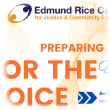 The educational resource titled 'Preparing for the Referendum: An Introduction to the upcoming Referendum' by the Edmund Rice Centre for Justice and Community Education provides valuable insights into the upcoming Australian Referendum, scheduled for October 14, 2023, which will focus on recognizing First Nations Australians in the Constitution through the establishment of a First Nations Voice to Parliament. The educational resource titled 'Preparing for the Referendum: An Introduction to the upcoming Referendum' by the Edmund Rice Centre for Justice and Community Education provides valuable insights into the upcoming Australian Referendum, scheduled for October 14, 2023, which will focus on recognizing First Nations Australians in the Constitution through the establishment of a First Nations Voice to Parliament. |
| |
02 September 2023
 This lesson plan is designed to engage students in a comprehensive exploration of the 'Voice to Parliament' issue in Australia, allowing them to develop a well-rounded understanding of the topic, including arguments for and against it. The plan includes three options for students to choose from: creating a newsletter article, producing a professional video, or participating in a debate. Each option encourages research, critical thinking, and the presentation of unbiased information. This lesson plan is designed to engage students in a comprehensive exploration of the 'Voice to Parliament' issue in Australia, allowing them to develop a well-rounded understanding of the topic, including arguments for and against it. The plan includes three options for students to choose from: creating a newsletter article, producing a professional video, or participating in a debate. Each option encourages research, critical thinking, and the presentation of unbiased information. |
| |
01 September 2023
 Spiritual direction remains relevant at all stages of spiritual development because it serves as a mirror that reflects an individual's compulsions, delusions, and shadow aspects. It helps individuals confront their illusions and move beyond ego-driven spirituality. Without this reflective guidance, the ego can remain firmly in control, even within religious contexts. The process of spiritual direction involves shadow work and questioning, facilitating personal growth and deeper consciousness. The pathway to spiritual insight and growth often involves suffering and loss, as these experiences challenge individuals to relinquish their need for control and draw them closer to a transcendent reality or understanding of the divine. Suffering serves as a crucible through which individuals can transform and deepen their spiritual journey. Spiritual direction remains relevant at all stages of spiritual development because it serves as a mirror that reflects an individual's compulsions, delusions, and shadow aspects. It helps individuals confront their illusions and move beyond ego-driven spirituality. Without this reflective guidance, the ego can remain firmly in control, even within religious contexts. The process of spiritual direction involves shadow work and questioning, facilitating personal growth and deeper consciousness. The pathway to spiritual insight and growth often involves suffering and loss, as these experiences challenge individuals to relinquish their need for control and draw them closer to a transcendent reality or understanding of the divine. Suffering serves as a crucible through which individuals can transform and deepen their spiritual journey. |
| |
20 August 2023
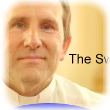 Father Jim McKeon discusses a TV documentary called 'The Swap,' which showcased an experiment where students from different schools, including an Islamic school, a Catholic school, and a state school, swapped places to learn about each other's cultures. McKeon reflects on how the documentary highlighted the limited understanding and knowledge these students had about each other's backgrounds. As the experiment progressed, the students began to form friendships and develop mutual respect, breaking down stereotypes. Father Jim McKeon discusses a TV documentary called 'The Swap,' which showcased an experiment where students from different schools, including an Islamic school, a Catholic school, and a state school, swapped places to learn about each other's cultures. McKeon reflects on how the documentary highlighted the limited understanding and knowledge these students had about each other's backgrounds. As the experiment progressed, the students began to form friendships and develop mutual respect, breaking down stereotypes. |
| |
14 August 2023
 In this scene from the TV series 'The Chosen,' Matthew shares a revelation with a friend. He presents a metaphorical 'map' related to the Beatitudes, a set of blessings taught by Jesus. Matthew associates each Beatitude with a group of people who possess certain qualities. These qualities include being poor in spirit, mourning, meek, hungering for righteousness, showing mercy, having a pure heart, working towards peace, and enduring persecution for righteousness' sake. Matthew uses these groups as markers on his 'map' to help others find him. The scene reflects Matthew's understanding of the Beatitudes and how he sees them as a guide to identify like-minded individuals. In this scene from the TV series 'The Chosen,' Matthew shares a revelation with a friend. He presents a metaphorical 'map' related to the Beatitudes, a set of blessings taught by Jesus. Matthew associates each Beatitude with a group of people who possess certain qualities. These qualities include being poor in spirit, mourning, meek, hungering for righteousness, showing mercy, having a pure heart, working towards peace, and enduring persecution for righteousness' sake. Matthew uses these groups as markers on his 'map' to help others find him. The scene reflects Matthew's understanding of the Beatitudes and how he sees them as a guide to identify like-minded individuals. |
| |
13 August 2023
 Father Jim McKeon reflects on the concept of contemplative prayer and its connection to the story of Jesus walking on water. He begins by acknowledging that often, he finds himself lost in thought when praying, pondering issues, problems, and potential solutions. However, he also admits that sometimes prayer leaves him feeling anxious rather than at peace. To address this, he turns to the story of Jesus walking on water and invites the congregation to consider what it can teach them about their own prayer lives. Father Jim McKeon reflects on the concept of contemplative prayer and its connection to the story of Jesus walking on water. He begins by acknowledging that often, he finds himself lost in thought when praying, pondering issues, problems, and potential solutions. However, he also admits that sometimes prayer leaves him feeling anxious rather than at peace. To address this, he turns to the story of Jesus walking on water and invites the congregation to consider what it can teach them about their own prayer lives. |
| |
08 August 2023
 In Bishop Robert Barron's speech, he focuses on the significance of the Eucharist and the story of the road to Emmaus from the Gospel of Luke. He encourages the audience to think about how, when the Lord is present in the Eucharist, it's not just us looking at Christ, but also Christ looking at us with compassion and understanding. He emphasizes the importance of understanding the deeper pattern of Jesus' life and mission. In Bishop Robert Barron's speech, he focuses on the significance of the Eucharist and the story of the road to Emmaus from the Gospel of Luke. He encourages the audience to think about how, when the Lord is present in the Eucharist, it's not just us looking at Christ, but also Christ looking at us with compassion and understanding. He emphasizes the importance of understanding the deeper pattern of Jesus' life and mission. |
| |
05 August 2023
 In Father Michael Whelan's reflection on the Feast of the Transfiguration, he focuses on the Gospel text from Matthew chapter 17, which depicts the transformative event on the mountaintop. He suggests that this event had a significant impact on the life and teachings of Jesus, as well as on the lives of the disciples and the early Church. Father Whelan draws parallels between this event and the theophany of Sinai in Exodus, highlighting Jesus' essential role in fulfilling the promises of the Old Testament. He emphasizes the continuity between Jesus and the Jewish tradition, as Jesus reveals God's dwelling place with humanity in space and time through his incarnation. Father Whelan connects this event to the sacrament of baptism, where believers are united with Jesus, the dwelling place of God, bridging the gap between the material world and eternity In Father Michael Whelan's reflection on the Feast of the Transfiguration, he focuses on the Gospel text from Matthew chapter 17, which depicts the transformative event on the mountaintop. He suggests that this event had a significant impact on the life and teachings of Jesus, as well as on the lives of the disciples and the early Church. Father Whelan draws parallels between this event and the theophany of Sinai in Exodus, highlighting Jesus' essential role in fulfilling the promises of the Old Testament. He emphasizes the continuity between Jesus and the Jewish tradition, as Jesus reveals God's dwelling place with humanity in space and time through his incarnation. Father Whelan connects this event to the sacrament of baptism, where believers are united with Jesus, the dwelling place of God, bridging the gap between the material world and eternity |
| |
30 July 2023
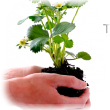 In this 17th Sunday of the year, the Gospel according to Matthew (Chapter 13, verses 44 through 52) presents the last three of seven parables. The author distinguishes between parables and allegories, cautioning against the temptation to solely interpret the latter. Unlike allegories, parables require listeners to engage their imagination, patiently reflecting on the symbolism without resorting to shortcuts. Through these parables, Jesus seeks to help people understand the Kingdom of Heaven, emphasizing its presence in ordinary moments of life. The call to attentiveness and awakening is highlighted, encouraging individuals to perceive the hidden grace and divine action that permeates every aspect of existence. In this 17th Sunday of the year, the Gospel according to Matthew (Chapter 13, verses 44 through 52) presents the last three of seven parables. The author distinguishes between parables and allegories, cautioning against the temptation to solely interpret the latter. Unlike allegories, parables require listeners to engage their imagination, patiently reflecting on the symbolism without resorting to shortcuts. Through these parables, Jesus seeks to help people understand the Kingdom of Heaven, emphasizing its presence in ordinary moments of life. The call to attentiveness and awakening is highlighted, encouraging individuals to perceive the hidden grace and divine action that permeates every aspect of existence. |
| |
21 July 2023
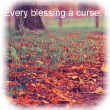 The gospel text from Matthew 16:24-30 presents one of the seven parables in Matthew's gospel chapter 13. In this parable, Jesus compares the kingdom of heaven to a situation where someone sowed good seed in a field, but another person came and sowed bad seed among the good. This puts the man who planted the good seed in an impasse, faced with unattractive or bad alternatives. Jesus seems to suggest that getting inside this experience of impasse can offer a glimpse of what the Kingdom of Heaven is like. Life is filled with moments of impasse, where we must make tough decisions between undesirable options. However, faith teaches us that God is with us, God's love is liberating, and there is no need to be afraid. Embracing our faith in these challenging moments allows us to grow into the truth of God's presence and love. The gospel text from Matthew 16:24-30 presents one of the seven parables in Matthew's gospel chapter 13. In this parable, Jesus compares the kingdom of heaven to a situation where someone sowed good seed in a field, but another person came and sowed bad seed among the good. This puts the man who planted the good seed in an impasse, faced with unattractive or bad alternatives. Jesus seems to suggest that getting inside this experience of impasse can offer a glimpse of what the Kingdom of Heaven is like. Life is filled with moments of impasse, where we must make tough decisions between undesirable options. However, faith teaches us that God is with us, God's love is liberating, and there is no need to be afraid. Embracing our faith in these challenging moments allows us to grow into the truth of God's presence and love. |
| |
17 July 2023
 In this presentation, Bishop John Shelby Spong addresses a unique and courageous church gathering, emphasizing the tension between embracing the Christian faith seriously while being citizens of the 21st century. He points out that some people, referred to as fundamentalists, hide from contemporary challenges by retreating into a religious bubble of outdated beliefs. These entrenched mentalities often lead to prejudice and discrimination justified by selectively quoting the Bible. Spong urges for a more open, inclusive, and rational interpretation of the Scriptures that resonates with the realities of the modern world. In this presentation, Bishop John Shelby Spong addresses a unique and courageous church gathering, emphasizing the tension between embracing the Christian faith seriously while being citizens of the 21st century. He points out that some people, referred to as fundamentalists, hide from contemporary challenges by retreating into a religious bubble of outdated beliefs. These entrenched mentalities often lead to prejudice and discrimination justified by selectively quoting the Bible. Spong urges for a more open, inclusive, and rational interpretation of the Scriptures that resonates with the realities of the modern world. |
| |
13 July 2023
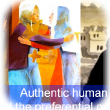 Charles Talbert advises us “to read†the canticle. Do we not, rather, want to pray the canticle (the Magnificat) and to live it in the spirit of the Church’s preferential option for the poor? What does this “option†- that our modern, consumer society tells us is, definitely not a (preferred) option today - mean in practice? Different voices echo slightly different emphases on this single theme. Charles Talbert advises us “to read†the canticle. Do we not, rather, want to pray the canticle (the Magnificat) and to live it in the spirit of the Church’s preferential option for the poor? What does this “option†- that our modern, consumer society tells us is, definitely not a (preferred) option today - mean in practice? Different voices echo slightly different emphases on this single theme. |
| |
10 July 2023
 The passage being referred to in the provided text is from Matthew chapter 11, specifically verses 25 through 30. It captures a unique moment where Jesus is found deep in prayer, allowing us to listen in on his conversation with the Father. In this intimate setting, Jesus extends his invitation to the disciples and all of us, inviting us to deepen our relationship with him. The passage being referred to in the provided text is from Matthew chapter 11, specifically verses 25 through 30. It captures a unique moment where Jesus is found deep in prayer, allowing us to listen in on his conversation with the Father. In this intimate setting, Jesus extends his invitation to the disciples and all of us, inviting us to deepen our relationship with him. |
| |
01 July 2023
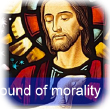 Father Michael Whelan's reflection focuses on the Gospel passage from Matthew chapter 10, specifically verses 37 through 42. He highlights the presence of what he calls 'the hard sayings of Jesus' in this passage, which appear frequently in the Gospels. The particular teaching addressed in today's Gospel revolves around the prioritization between family and discipleship. Father Michael Whelan's reflection focuses on the Gospel passage from Matthew chapter 10, specifically verses 37 through 42. He highlights the presence of what he calls 'the hard sayings of Jesus' in this passage, which appear frequently in the Gospels. The particular teaching addressed in today's Gospel revolves around the prioritization between family and discipleship. |
| |
18 June 2023
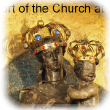 We are entitled to infer from those words that, for Luke, Mary has, evenmore generally, a role that is central and mediating in the new-bornChurch, a body that he knew was made up of several blocs that weredifferent and liable to disagree, even violently. That is, of course, thebasic meaning of the Greek word ekklesia that we translate as ‘Church’: itis an ‘assembly’, which brings together distinct groups or parties. Byexercising this role of mediation or even reconciliation, Mary ‘supports’the newborn Church. This is the scripturally based paradigm of the ‘workof Mary’, in which Marists are called to take part - our Mission. We are entitled to infer from those words that, for Luke, Mary has, evenmore generally, a role that is central and mediating in the new-bornChurch, a body that he knew was made up of several blocs that weredifferent and liable to disagree, even violently. That is, of course, thebasic meaning of the Greek word ekklesia that we translate as ‘Church’: itis an ‘assembly’, which brings together distinct groups or parties. Byexercising this role of mediation or even reconciliation, Mary ‘supports’the newborn Church. This is the scripturally based paradigm of the ‘workof Mary’, in which Marists are called to take part - our Mission. |
| |
17 June 2023
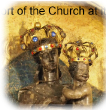 ‘On July 23, 1816, at the shrine of Our Lady of Fourvière, Lyons, twelvepriests and seminarians pledged themselves to found a congregationbearing the name of Mary. Those who worked for the next twenty yearsto carry out this promise were convinced that they were responding to awish of the Mother of Mercy, which found expression for them in thefollowing words: “I supported the Church at its birth; I shall do so againat the end of time'' ‘On July 23, 1816, at the shrine of Our Lady of Fourvière, Lyons, twelvepriests and seminarians pledged themselves to found a congregationbearing the name of Mary. Those who worked for the next twenty yearsto carry out this promise were convinced that they were responding to awish of the Mother of Mercy, which found expression for them in thefollowing words: “I supported the Church at its birth; I shall do so againat the end of time'' |
| |
11 June 2023
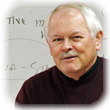 By Father Ron Rolheiser. I went through the seminary and I went through many courses on the Eucharist. After 3 major courses on the Eucharist, I have decided that I do not understand the Eucharist. But, that is okay, the Eucharist is not meant to be understood. Why not? Well this is the story. By Father Ron Rolheiser. I went through the seminary and I went through many courses on the Eucharist. After 3 major courses on the Eucharist, I have decided that I do not understand the Eucharist. But, that is okay, the Eucharist is not meant to be understood. Why not? Well this is the story. |
| |
11 June 2023
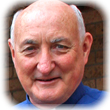 It’s a good time to reflect, each of us, on the role of the Eucharist in our personal, community and missionary lives. As Marists, how is the Eucharist “the source and summit of our whole Christian lives� (Lumen Gentium, 11) It’s a good time to reflect, each of us, on the role of the Eucharist in our personal, community and missionary lives. As Marists, how is the Eucharist “the source and summit of our whole Christian lives� (Lumen Gentium, 11) |
| |
11 June 2023
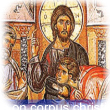 Today is the Feast of Corpus Christi, also known as the Feast of the Precious Body and Blood of Jesus Christ. The Gospel text for this occasion is from John 6:51-58, where Jesus teaches about the bread of life. He declares himself as the living bread from heaven, promising eternal life to those who partake in this bread, which is his flesh given for the world. The shocking language of eating his flesh leads to objections from religious authorities, but it echoes the early Christian experience and the practice of the Eucharist. Saint Justin, a second-century writer and defender of the faith, addresses accusations against Christians, including cannibalism, by emphasizing the Eucharist as a sacred practice only for believers who have undergone baptism and strive to live according to Christ's teachings. The Eucharist, referred to as 'Among Us eucharistia,' is seen as a profound mystery, symbolizing a communion of life with the indwelling Trinity.... Today is the Feast of Corpus Christi, also known as the Feast of the Precious Body and Blood of Jesus Christ. The Gospel text for this occasion is from John 6:51-58, where Jesus teaches about the bread of life. He declares himself as the living bread from heaven, promising eternal life to those who partake in this bread, which is his flesh given for the world. The shocking language of eating his flesh leads to objections from religious authorities, but it echoes the early Christian experience and the practice of the Eucharist. Saint Justin, a second-century writer and defender of the faith, addresses accusations against Christians, including cannibalism, by emphasizing the Eucharist as a sacred practice only for believers who have undergone baptism and strive to live according to Christ's teachings. The Eucharist, referred to as 'Among Us eucharistia,' is seen as a profound mystery, symbolizing a communion of life with the indwelling Trinity.... |
| |
11 June 2023
 The video emphasizes the importance of simplicity and service in our lives. It highlights how chasing material possessions and addictive behaviors only leave us empty inside. Instead, we are encouraged to serve others, to take care of those in need, and to be the hands that feed and support our brothers and sisters. The Eucharist is presented as a reminder of this call to closeness and solidarity, to remain close to those who are alone or struggling. By celebrating the memorial of the Eucharist, we heal our memories and place it as a priority in both the Church and our personal lives. Additionally, the passage encourages us to engage in adoration and continue the work of doing good and bringing healing to those who are in great need, which is especially important in challenging times. The video emphasizes the importance of simplicity and service in our lives. It highlights how chasing material possessions and addictive behaviors only leave us empty inside. Instead, we are encouraged to serve others, to take care of those in need, and to be the hands that feed and support our brothers and sisters. The Eucharist is presented as a reminder of this call to closeness and solidarity, to remain close to those who are alone or struggling. By celebrating the memorial of the Eucharist, we heal our memories and place it as a priority in both the Church and our personal lives. Additionally, the passage encourages us to engage in adoration and continue the work of doing good and bringing healing to those who are in great need, which is especially important in challenging times. |
| |
07 June 2023
 It raises a deeper question does it not? Our scientific and rational minds cannot comprehend such as reality. As the first century Jewish people questioned “How can he (Jesus) give us his flesh to eat?†We are like first century disbelievers. This does not make sense. It raises a deeper question does it not? Our scientific and rational minds cannot comprehend such as reality. As the first century Jewish people questioned “How can he (Jesus) give us his flesh to eat?†We are like first century disbelievers. This does not make sense. |
| |
04 June 2023
 This article discusses the future of the Marist Communion from various perspectives: ecclesial, Marist, and Gospel. It emphasizes the importance of understanding the implications of the step taken by lay Marists and examines the role of the Marist direction in the Church and the world today. The article explores the relationship between being Marist and being a member of the Church, highlighting the love and criticism for the Church as well as the unique character of the Marist approach. It also touches upon the significance of the laity within the Marist Association and the broader Marist Family. The author reflects on the challenges and tensions faced by religious congregations, such as the Society of Mary, in relation to the Church, and the need for a renewed spiritual anchorage. Furthermore, the article delves into the diversity and unity within the Marist Communion, addressing the distinction between religious and lay members and the evolving dynamics between them. Ultimately, it suggests that the focus should shift from the debate about the role of the laity to the urgent task of what Christians have to offer to the world. The article concludes by proposing the concept of 'Marist communion' as groups of Christians dedicated to living their mission in the world in a distinctive manner. This article discusses the future of the Marist Communion from various perspectives: ecclesial, Marist, and Gospel. It emphasizes the importance of understanding the implications of the step taken by lay Marists and examines the role of the Marist direction in the Church and the world today. The article explores the relationship between being Marist and being a member of the Church, highlighting the love and criticism for the Church as well as the unique character of the Marist approach. It also touches upon the significance of the laity within the Marist Association and the broader Marist Family. The author reflects on the challenges and tensions faced by religious congregations, such as the Society of Mary, in relation to the Church, and the need for a renewed spiritual anchorage. Furthermore, the article delves into the diversity and unity within the Marist Communion, addressing the distinction between religious and lay members and the evolving dynamics between them. Ultimately, it suggests that the focus should shift from the debate about the role of the laity to the urgent task of what Christians have to offer to the world. The article concludes by proposing the concept of 'Marist communion' as groups of Christians dedicated to living their mission in the world in a distinctive manner. |
| |
04 June 2023
 Father Michael Whelan reflects on the profound and familiar Gospel text of John 3:16-18, highlighting the two-fold revelation it presents. Firstly, it reveals that God became human, enfleshed in the world. Secondly, this enfleshment is an act of love, expressing God's infinite love for humanity. This understanding forms the foundation of Christian belief and provides insight into the true nature of being human. Father Michael emphasizes that our real existence is found in God and that our lives are meant to be lived through Him. He draws from the teachings of John in his first letter, affirming that God lives in us, and through love, we abide in God..... Father Michael Whelan reflects on the profound and familiar Gospel text of John 3:16-18, highlighting the two-fold revelation it presents. Firstly, it reveals that God became human, enfleshed in the world. Secondly, this enfleshment is an act of love, expressing God's infinite love for humanity. This understanding forms the foundation of Christian belief and provides insight into the true nature of being human. Father Michael emphasizes that our real existence is found in God and that our lives are meant to be lived through Him. He draws from the teachings of John in his first letter, affirming that God lives in us, and through love, we abide in God..... |
| |
23 April 2023
 In the Gospel of Mark, the Resurrection takes place in silence! The three women went to the tomb in the silence of the night. They met an angel who told them Jesus, the crucified one, had risen. Then, trembling and bewildered, they fled. In the Gospel of Mark, the Resurrection takes place in silence! The three women went to the tomb in the silence of the night. They met an angel who told them Jesus, the crucified one, had risen. Then, trembling and bewildered, they fled. |
| |
18 March 2023
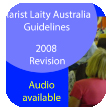 Marist Laity Australia is one contemporary expression of the lay branch of the Marist Family tree. This family is composed of Religious Sisters, Missionary Sisters, Brothers and priests as well as lay men, women and children. All Marists share the one spirit of Mary and all share in the task of doing her work. Marist Laity Australia is one contemporary expression of the lay branch of the Marist Family tree. This family is composed of Religious Sisters, Missionary Sisters, Brothers and priests as well as lay men, women and children. All Marists share the one spirit of Mary and all share in the task of doing her work. |
| |
12 March 2023
 The following is the text of the Holy Father Francis’s Message for Lent 2023, on the theme: “Lenten Penance and the Synodal Journey The following is the text of the Holy Father Francis’s Message for Lent 2023, on the theme: “Lenten Penance and the Synodal Journey |
| |
07 March 2023
 With the beginning of Lent right around the corner, Bishop Barron talks about this ancient period of prayer, fasting, and almsgiving in preparation for Easter, and offer several recommendations on how to have a more spiritually powerful Lent. With the beginning of Lent right around the corner, Bishop Barron talks about this ancient period of prayer, fasting, and almsgiving in preparation for Easter, and offer several recommendations on how to have a more spiritually powerful Lent. |
| |
07 March 2023
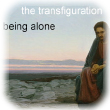 This is an account of the transfiguration. Matthew, Mark and Luke have an account of this same event. St Peter in his second letter have an account of this same event. We don't really know what happened. We have the details in today's gospel. But they do not tell us much. They are forceful in a sense because they tell us something profound. Something wonderful. Something beautiful. Something filled with peace occurred. This pressed itself deeply on their memories. This is an account of the transfiguration. Matthew, Mark and Luke have an account of this same event. St Peter in his second letter have an account of this same event. We don't really know what happened. We have the details in today's gospel. But they do not tell us much. They are forceful in a sense because they tell us something profound. Something wonderful. Something beautiful. Something filled with peace occurred. This pressed itself deeply on their memories. |
| |
26 February 2023
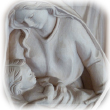 Recently at the Youth Ministry Equipping School in Canberra I was asked the question “whether discipleship was more important than Baptism?†The presenter said, “discipleship is more important than baptismâ€. I silently and respectfully disagreed. I thought to myself “at baptism we are marked by the grace of Christâ€. Recently at the Youth Ministry Equipping School in Canberra I was asked the question “whether discipleship was more important than Baptism?†The presenter said, “discipleship is more important than baptismâ€. I silently and respectfully disagreed. I thought to myself “at baptism we are marked by the grace of Christâ€. |
| |
25 February 2023
 The Gospel today is often termed “The Temptations of Jesusâ€. I have a problem with that because if you label it like that you are almost forced to label it as “the Tempterâ€. I would like to give the role of “The Tempter†a smaller roll as possible in this story. Especially when you consider the Biblical context. Daniel J Harrington SJ scholar points this out. Matthew is writing from the context of Deuteronomy. The people are led by God into the wilderness where they are tested for 40 years. The Holy Spirit leads Jesus into the wilderness where Jesus is tested for 40 days and 40 nights. The Gospel today is often termed “The Temptations of Jesusâ€. I have a problem with that because if you label it like that you are almost forced to label it as “the Tempterâ€. I would like to give the role of “The Tempter†a smaller roll as possible in this story. Especially when you consider the Biblical context. Daniel J Harrington SJ scholar points this out. Matthew is writing from the context of Deuteronomy. The people are led by God into the wilderness where they are tested for 40 years. The Holy Spirit leads Jesus into the wilderness where Jesus is tested for 40 days and 40 nights. |
| |
12 February 2023
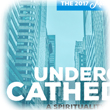 Is it possible that the Holy Spirit is working underground in places today where we may not have even considered? Come and listen to renowned spiritual guide and former Abbot of the famous Glentsal Abbey in Ireland, Mark Patrick Hederman OSB, as he unearths underground cathedrals and explores where the Holy Spirit is at work in the world and lives of ordinary people today. Is it possible that the Holy Spirit is working underground in places today where we may not have even considered? Come and listen to renowned spiritual guide and former Abbot of the famous Glentsal Abbey in Ireland, Mark Patrick Hederman OSB, as he unearths underground cathedrals and explores where the Holy Spirit is at work in the world and lives of ordinary people today. |
| |
11 February 2023
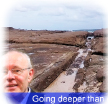 In todays text Jesus speaks as a prophet. He says to his disciples 'unless your righteousness goes deeper than the seeds of the scribes and the pharisees you will not enter the Kingdom. There are two major themes in the prophetic tradition. It reminds the people of the covenant of God's promises, God's intent, God's love and God's care. It reminds us of the human capacity of human beings to deceive ourselves. To be forgetful and to miss the point. Part of this can be how we use religion and devotion. The prophets were well aware of the people's potential, but especially, the leaders of the people. To use religious ritual, devotion and law to mask a life which is actually at odds with the covenant. In todays text Jesus speaks as a prophet. He says to his disciples 'unless your righteousness goes deeper than the seeds of the scribes and the pharisees you will not enter the Kingdom. There are two major themes in the prophetic tradition. It reminds the people of the covenant of God's promises, God's intent, God's love and God's care. It reminds us of the human capacity of human beings to deceive ourselves. To be forgetful and to miss the point. Part of this can be how we use religion and devotion. The prophets were well aware of the people's potential, but especially, the leaders of the people. To use religious ritual, devotion and law to mask a life which is actually at odds with the covenant. |
| |
05 February 2023
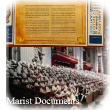 The Fourviere Pledge is the oldest formal record we have of the intentions of those who founded the Marist family. Two of the priests who signed this pledge went on to become founders: Father Jean-Claude Colin is considered the founder of the priests and brothers and the entire Marist family, and Father Marcellin Champagnat is the founder of the Brothers of the Schools. Four of the signers—Colin, Champagnat, Etienne Terraillon, and Etienne Declas—became professed Marist priests in 1836. The Fourviere Pledge is the oldest formal record we have of the intentions of those who founded the Marist family. Two of the priests who signed this pledge went on to become founders: Father Jean-Claude Colin is considered the founder of the priests and brothers and the entire Marist family, and Father Marcellin Champagnat is the founder of the Brothers of the Schools. Four of the signers—Colin, Champagnat, Etienne Terraillon, and Etienne Declas—became professed Marist priests in 1836. |
| |
05 February 2023
 When we think of synodality it is a spirituality of pilgrimage. When you come from Europe to Australia or from Australia to Europe it is a long journey. You have beautiful moments, but, it can be tiring and it is long. A pilgrimage is like this. We receive joy but other moments are difficult. This is the life with Christ. When we want to become missionary pilgrims together who are the road. This is what synodality is about. Synodality reveals the diversity of God. The main impulse is the Holy Spirit and the cross of Christ. All these people are journeying together. Becoming a synodal church is becoming a church on the move. Synodality is a dynamic vision of the church in history. The church is on pilgrimage on this earth. The church is journeying towards “the Kingdom of Godâ€. As the baptised, all together we are the realisation of the church in history. This is a dynamic vision of the church. Not just a theoretical abstract vision of the church as it should be, but the church, “in†history and “in†a specific “contextâ€. When we think of synodality it is a spirituality of pilgrimage. When you come from Europe to Australia or from Australia to Europe it is a long journey. You have beautiful moments, but, it can be tiring and it is long. A pilgrimage is like this. We receive joy but other moments are difficult. This is the life with Christ. When we want to become missionary pilgrims together who are the road. This is what synodality is about. Synodality reveals the diversity of God. The main impulse is the Holy Spirit and the cross of Christ. All these people are journeying together. Becoming a synodal church is becoming a church on the move. Synodality is a dynamic vision of the church in history. The church is on pilgrimage on this earth. The church is journeying towards “the Kingdom of Godâ€. As the baptised, all together we are the realisation of the church in history. This is a dynamic vision of the church. Not just a theoretical abstract vision of the church as it should be, but the church, “in†history and “in†a specific “contextâ€. |
| |
29 January 2023
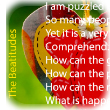 I am puzzled by the attraction of this text. So many people love the Beatitudes. Yet it is a very difficult text to understand. Comprehend. How can the poor be blessed? How can the grieving be blessed? How can the persecuted be blessed? How can the rejected be blessed? What is happening here? I am puzzled by the attraction of this text. So many people love the Beatitudes. Yet it is a very difficult text to understand. Comprehend. How can the poor be blessed? How can the grieving be blessed? How can the persecuted be blessed? How can the rejected be blessed? What is happening here? |
| |
26 January 2023
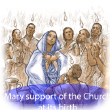 By Marist Father Justin Taylor sm. On July 23, 1816, at the shrine of Our Lady of Fourvière, Lyons, twelve priests and seminarians pledged themselves to found a congregation bearing the name of Mary. Those who worked for the next twenty years to carry out this promise were convinced that they were responding to a wish of the Mother of Mercy, which found expression for them in the following words: “I supported the Church at its birth; 1 shall do so again at the end of time'' (Constitutions of the Society of Mary, n. 2). By Marist Father Justin Taylor sm. On July 23, 1816, at the shrine of Our Lady of Fourvière, Lyons, twelve priests and seminarians pledged themselves to found a congregation bearing the name of Mary. Those who worked for the next twenty years to carry out this promise were convinced that they were responding to a wish of the Mother of Mercy, which found expression for them in the following words: “I supported the Church at its birth; 1 shall do so again at the end of time'' (Constitutions of the Society of Mary, n. 2). |
| |
23 January 2023
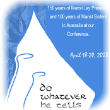 I believe it is helpful, when we are seeking to understand and live out the Christ Life, to look for the human ground of those behaviours and practices that we would want to claim as “religious.†More specifically, what is the human ground of those ideals and practices we want to bear witness to as disciples of the Risen Lord? Searching for the human ground is no more nor less than a central implication of the Incarnation: God has chosen to enter our world in the flesh, in a given moment of history, in a particular cultural and social context. In acting in this way, God has confirmed the flesh and history and culture and society as the chosen place of our redemption. I believe it is helpful, when we are seeking to understand and live out the Christ Life, to look for the human ground of those behaviours and practices that we would want to claim as “religious.†More specifically, what is the human ground of those ideals and practices we want to bear witness to as disciples of the Risen Lord? Searching for the human ground is no more nor less than a central implication of the Incarnation: God has chosen to enter our world in the flesh, in a given moment of history, in a particular cultural and social context. In acting in this way, God has confirmed the flesh and history and culture and society as the chosen place of our redemption. |
| |
16 January 2023
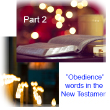 In both the Hebrew of the Old Testament and the Greek of the New Testament, the words used which we translate as obey, obedience and obedient, all have a close relationship with the various words we translate as hear and listen. One scholar summarizes the use of those Greek words in the New Testament: In both the Hebrew of the Old Testament and the Greek of the New Testament, the words used which we translate as obey, obedience and obedient, all have a close relationship with the various words we translate as hear and listen. One scholar summarizes the use of those Greek words in the New Testament: |
| |
31 December 2022
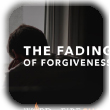 An article published by Tim Keller entitled The Fading of Forgiveness traces the disappearance of the thing we need most. He talks about Martin Luther King and Nelson Mandela which was marked by the ethics of love, forgiveness and reconciliation. These were core pillars of the civil rights movement and compares that to todays activism which seems not to value the virtue of forgiveness as much. An article published by Tim Keller entitled The Fading of Forgiveness traces the disappearance of the thing we need most. He talks about Martin Luther King and Nelson Mandela which was marked by the ethics of love, forgiveness and reconciliation. These were core pillars of the civil rights movement and compares that to todays activism which seems not to value the virtue of forgiveness as much. |
| |
31 December 2022
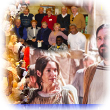 Walter Kasper rightly observed that the new recognition of thelaity’s mission in the Church is not because of the shortage ofpriests and religious, nor because of the progress of democracy,illustrated for example by parish councils. These are important butexternal factors. Nor do they operate equally throughout theChristian world. The major shift in mentality towards laity isbecause of a clearer and deeper understanding of the nature ofthe Church and its mission. Struggling to find an answer to thequestion ’What should be the basic orientation of the Marist LayMovement today,’ that is of a movement which is both Marist andlay, it seemed sensible to look in the same place where the Churchitself made its discoveries. Walter Kasper rightly observed that the new recognition of thelaity’s mission in the Church is not because of the shortage ofpriests and religious, nor because of the progress of democracy,illustrated for example by parish councils. These are important butexternal factors. Nor do they operate equally throughout theChristian world. The major shift in mentality towards laity isbecause of a clearer and deeper understanding of the nature ofthe Church and its mission. Struggling to find an answer to thequestion ’What should be the basic orientation of the Marist LayMovement today,’ that is of a movement which is both Marist andlay, it seemed sensible to look in the same place where the Churchitself made its discoveries. |
| |
30 December 2022
 This Word of Life concludes a talk whereSt. Paul tries to explain to the Christiansin Corinth, the force behind his apostolicactivity: his immense love for Jesus. Atthe same time he wants to address a strongcall to certain members of the community whoshowed that they had not fully graspedJesus’ message. They had not understoodthat Jesus came to bring about a totalchange in their lives. This Word of Life concludes a talk whereSt. Paul tries to explain to the Christiansin Corinth, the force behind his apostolicactivity: his immense love for Jesus. Atthe same time he wants to address a strongcall to certain members of the community whoshowed that they had not fully graspedJesus’ message. They had not understoodthat Jesus came to bring about a totalchange in their lives. |
| |
29 December 2022
 Where does evil come from? Morgan sets out to understand the root of evil and how our ideas of it have evolved over the millennia. Is the devil real? From the underworld of ancient Egypt to a modern-day maximum-security prison, Morgan discovers that evil might be more than a supernatural force. The birth of religion may be inextricably tied to the need to control evil. Where does evil come from? Morgan sets out to understand the root of evil and how our ideas of it have evolved over the millennia. Is the devil real? From the underworld of ancient Egypt to a modern-day maximum-security prison, Morgan discovers that evil might be more than a supernatural force. The birth of religion may be inextricably tied to the need to control evil. |
| |
23 December 2022
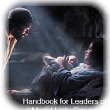 Fundamental to the Marist movement is the conviction that it was Mary’s initiative which called the Society of Mary into existence. She expressed her desire in these words: “Here is what I want . . . a Society which will have my name, which will be called the Society of Mary, whose members will call themselves Marists.†It is she who chose and called the first Marists into her enterprise by giving them her name. Fundamental to the Marist movement is the conviction that it was Mary’s initiative which called the Society of Mary into existence. She expressed her desire in these words: “Here is what I want . . . a Society which will have my name, which will be called the Society of Mary, whose members will call themselves Marists.†It is she who chose and called the first Marists into her enterprise by giving them her name. |
| |
22 December 2022
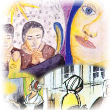 The Holy Spirit graces the Church and the world with spiritual gifts through the founders of religious movements. The ideas of these founders deserve special attention and study. This section summarizes the unique understandings and insights of the founder of the Marist family, Father Jean-Claude Colin, S.M. It is now acknowledged that his ideas especially about the Church and the laity were ahead of his time. This claim is best explained by comparing Father Colin’s writings with the teachings of Vatican II, Paul VI, and John Paul II. The Holy Spirit graces the Church and the world with spiritual gifts through the founders of religious movements. The ideas of these founders deserve special attention and study. This section summarizes the unique understandings and insights of the founder of the Marist family, Father Jean-Claude Colin, S.M. It is now acknowledged that his ideas especially about the Church and the laity were ahead of his time. This claim is best explained by comparing Father Colin’s writings with the teachings of Vatican II, Paul VI, and John Paul II. |
| |
22 December 2022
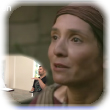 In episode 5, we introduce one of the most celebrated and debated women in history, Mary, the mother of Christ. Catholics and evangelicals have different perspectives on Mary, and much has been misunderstood. In this clip from our episode 5 biblical roundtable (available on the Season One DVD), Dallas discusses our portrayal of Mary with Catholic Priest David Guffey and evangelical scholar Doug Huffman. In episode 5, we introduce one of the most celebrated and debated women in history, Mary, the mother of Christ. Catholics and evangelicals have different perspectives on Mary, and much has been misunderstood. In this clip from our episode 5 biblical roundtable (available on the Season One DVD), Dallas discusses our portrayal of Mary with Catholic Priest David Guffey and evangelical scholar Doug Huffman. |
| |
21 December 2022
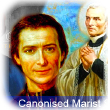 Here are some stories of the recognised saints of the Marist Family, but no doubt, as there are many more. Here are some stories of the recognised saints of the Marist Family, but no doubt, as there are many more. |
| |
21 December 2022
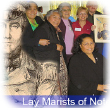 Very little has been written about the lives of lay Marists. Yet the laity have been working with the ordained and/or vowed branches of the Marist family since before any of them were approved by the Church. Very little has been written about the lives of lay Marists. Yet the laity have been working with the ordained and/or vowed branches of the Marist family since before any of them were approved by the Church. |
| |
20 December 2022
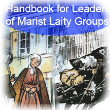 Handbook for Leaders of Marist Laity Groups. PART II - Origins and History. This history of the early years of the Marists includes biographies of canonized Marist saints and lay Marists of note. Handbook for Leaders of Marist Laity Groups. PART II - Origins and History. This history of the early years of the Marists includes biographies of canonized Marist saints and lay Marists of note. |
| |
19 December 2022
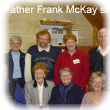 Mary has got a place in every life. Probably got a place in all our lives to some extent. We are talking about her having a fully place. What we are talking about is her spirituality in the age we inhabit. The Marist vision and Marist spirituality is not something infused it has got to be communicated. How is it going to be communicated? Mary has got a place in every life. Probably got a place in all our lives to some extent. We are talking about her having a fully place. What we are talking about is her spirituality in the age we inhabit. The Marist vision and Marist spirituality is not something infused it has got to be communicated. How is it going to be communicated? |
| |
18 December 2022
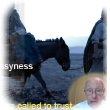 Is it possible that these representations bring to the for a beautiful dimension hide the more brutal and risk laden reality? To be including it in this situation, the situation of God. the theme of trust comes through. In a loving relationship trust comes through. Is it possible that these representations bring to the for a beautiful dimension hide the more brutal and risk laden reality? To be including it in this situation, the situation of God. the theme of trust comes through. In a loving relationship trust comes through. |
| |
18 December 2022
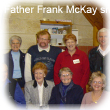 It is very nice to be in Gladstone. I am aware what a missionary centre it is. Marists are a missionary congregation and it is good to reminded of this. I have spoken so far in Australia to groups of lay people. This is the first time I have spoken to all the branches of the Marist family. I was also glad to the Sisters of Mercy who taught me as a small boy in Dunedin. The Mercy Sisters draw attention to something which is very central to the Marist charism. Mary is the mother of mercy. The first Marists set out for mission father Colin gave a sermon say “we come among you however unworthy as instruments of Divine mercyâ€. Marists believe that our founders are gifts not only to us, but to the whole church. They are there for all of us. It is very nice to be in Gladstone. I am aware what a missionary centre it is. Marists are a missionary congregation and it is good to reminded of this. I have spoken so far in Australia to groups of lay people. This is the first time I have spoken to all the branches of the Marist family. I was also glad to the Sisters of Mercy who taught me as a small boy in Dunedin. The Mercy Sisters draw attention to something which is very central to the Marist charism. Mary is the mother of mercy. The first Marists set out for mission father Colin gave a sermon say “we come among you however unworthy as instruments of Divine mercyâ€. Marists believe that our founders are gifts not only to us, but to the whole church. They are there for all of us. |
| |
17 December 2022
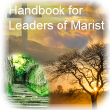 This Handbook is a resource for group leaders. It is important that leaders becomethoroughly familial' with the contents, share information with other Marists, keep theHandbook intact, and assist in updates as needed. This Handbook is a resource for group leaders. It is important that leaders becomethoroughly familial' with the contents, share information with other Marists, keep theHandbook intact, and assist in updates as needed. |
| |
14 December 2022
 9 Key Marist Documents exploring the themes “when will the time comeâ€, “the confraternity of both sexes living in the worldâ€, “like a bridgeâ€, “shine out into the churchâ€, “a new church†etc. 9 Key Marist Documents exploring the themes “when will the time comeâ€, “the confraternity of both sexes living in the worldâ€, “like a bridgeâ€, “shine out into the churchâ€, “a new church†etc. |
| |
14 December 2022
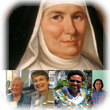 The early development of the Marist Sisters through Jeanne Marie Chavoin and Marie Jotillon. The early development of the Marist Sisters through Jeanne Marie Chavoin and Marie Jotillon. |
| |
11 December 2022
 Marist Spirituality comes from Mary of Nazareth - hidden and unknown as it were - the spirit of the family at Nazareth. This can be conveyed to young people as well. We see the application of the Marist spirituality in all the branches of the Marist family. Marist Spirituality comes from Mary of Nazareth - hidden and unknown as it were - the spirit of the family at Nazareth. This can be conveyed to young people as well. We see the application of the Marist spirituality in all the branches of the Marist family. |
| |
11 December 2022
 For National Teacher of the Year Sydney Chaffee, teaching is a political act. She has been traveling the country urging all teachers to make social justice a central part of their mission. Talking to students about justice can't be a niche for certain kinds of teachers or certain schools. When students understand inequity and have the tools to work towards a more just world, they see why their education truly matters.... For National Teacher of the Year Sydney Chaffee, teaching is a political act. She has been traveling the country urging all teachers to make social justice a central part of their mission. Talking to students about justice can't be a niche for certain kinds of teachers or certain schools. When students understand inequity and have the tools to work towards a more just world, they see why their education truly matters.... |
| |
30 November 2022
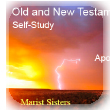 Apostolic Life. Composed by the Marist Sisters of the Oceania Province. At the first session of the Provincial Chapter it was proposed that a self-study programme at community level be initiated in the Province. The object of the study was to examine our community life in three aspects and so deepen our awareness and understanding of our life together. These aspects were summarised under the headings of Religious and Marist life, Apostolic life , and The Cry of the Poor and Social Justice. Apostolic Life. Composed by the Marist Sisters of the Oceania Province. At the first session of the Provincial Chapter it was proposed that a self-study programme at community level be initiated in the Province. The object of the study was to examine our community life in three aspects and so deepen our awareness and understanding of our life together. These aspects were summarised under the headings of Religious and Marist life, Apostolic life , and The Cry of the Poor and Social Justice. |
| |
30 November 2022
 We saw Moses as God's special instrument, especially chosen and prepared. We added that God brought about a CHANGE in Moses —a purification, as time went on. We felt that in spite of his fear, he acted in faith. He could see the Hand of the Lord in his own life, e.g., in the Burning Bush. We saw Moses as God's special instrument, especially chosen and prepared. We added that God brought about a CHANGE in Moses —a purification, as time went on. We felt that in spite of his fear, he acted in faith. He could see the Hand of the Lord in his own life, e.g., in the Burning Bush. |
| |
29 November 2022
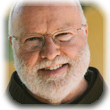 Apocalyptic literature from the scriptures often gets miss interpreted. Apocalyptic does not mean the “end of the worldâ€. This is a miss interpretation. But, what the world is going through with COVID-19 is an “apocalyptic†event or a revelation. This event is an unveiling or to pull back the veil. This style of text, Apocalyptic, uses exaggerated images and metaphors. Like stars falling from the sky or the moon turning to blood in the scriptures. This is like a Steven Spielberg movie like Close Encounters or ET where suddenly you are placed in an utterly different world. What was normal before does not apply any more. Apocalyptic literature from the scriptures often gets miss interpreted. Apocalyptic does not mean the “end of the worldâ€. This is a miss interpretation. But, what the world is going through with COVID-19 is an “apocalyptic†event or a revelation. This event is an unveiling or to pull back the veil. This style of text, Apocalyptic, uses exaggerated images and metaphors. Like stars falling from the sky or the moon turning to blood in the scriptures. This is like a Steven Spielberg movie like Close Encounters or ET where suddenly you are placed in an utterly different world. What was normal before does not apply any more. |
| |
26 November 2022
 The Nativity (2006) is a movie depicting First Century Palestine and the context where the Gospel story begins. Anwser question questions describing this context. The Nativity (2006) is a movie depicting First Century Palestine and the context where the Gospel story begins. Anwser question questions describing this context. |
| |
26 November 2022
 This Word of Life contains the fundamental law of all Christian life. Through baptism, the world and sin no longer have a hold on us. We are now living a new life in which Christ dwells in us and we live for him. This Word of Life contains the fundamental law of all Christian life. Through baptism, the world and sin no longer have a hold on us. We are now living a new life in which Christ dwells in us and we live for him. |
| |
20 November 2022
 Yann Martel’s novel the Life of Pi tells the story of Pi. A young man is the only human survivor when a ship full of zoo animals sinks in the middle of the ocean. Pi finds himself on a life raft with a hyena, zebra and a tiger. The hyena eats the zebra. The tiger eats the hyena and pi fears for his life. His aim was to tame and to befriend the tiger. Over many months they are adrift together at sea. Encountering many adventures and their survival is a tale of awe and wonder. Yann Martel’s novel the Life of Pi tells the story of Pi. A young man is the only human survivor when a ship full of zoo animals sinks in the middle of the ocean. Pi finds himself on a life raft with a hyena, zebra and a tiger. The hyena eats the zebra. The tiger eats the hyena and pi fears for his life. His aim was to tame and to befriend the tiger. Over many months they are adrift together at sea. Encountering many adventures and their survival is a tale of awe and wonder. |
| |
14 November 2022
 There is something in us all which yearns to settle down and be at home. This is a fundamental yearning to be in control. To feel secure because we know what is happening. The message of the Gospel actually runs into that. We are pilgrims. In our Catholic tradition the Church entered the Second Vatican Council with an arrival mentality. We had the answers. However, from the Second Vatican Council it became a journeying church. There is something in us all which yearns to settle down and be at home. This is a fundamental yearning to be in control. To feel secure because we know what is happening. The message of the Gospel actually runs into that. We are pilgrims. In our Catholic tradition the Church entered the Second Vatican Council with an arrival mentality. We had the answers. However, from the Second Vatican Council it became a journeying church. |
| |
09 November 2022
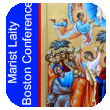 The experience of the conference is like a wheel - we want to move forward. The hub, the centrepoint is the person of Jesus - we want to be disciples of Jesus and the person who can teach us best how to be a disciple is Mary. The experience of the conference is like a wheel - we want to move forward. The hub, the centrepoint is the person of Jesus - we want to be disciples of Jesus and the person who can teach us best how to be a disciple is Mary. |
| |
05 November 2022
 Humility is a key virtue which Marist Founder John Claude Colin often writes about. For Marists we do not take on the Stoic and Greek ideal of humility, but seek a Christian humility who seeks to live in relationship with God and other people. Humility is a key virtue which Marist Founder John Claude Colin often writes about. For Marists we do not take on the Stoic and Greek ideal of humility, but seek a Christian humility who seeks to live in relationship with God and other people. |
| |
01 November 2022
 A beautiful and challenging theme of inclusivity. The story of Zacchaeus is a little tac collector because he is little he climbs a tree. He wants to see Jesus. To catch a glimpse of him says Luke. It is Jesus who says Zacchaeus and invites himself to Zacchaeus home. This provokes quiet a reaction from all the onlookers. All the onlookers grumbled as it says he is going to eat in the house of a sinner. Do you find Zacchaeus an attractive person? Honestly. Would you think it good that Jesus would show special interest in this man who is taking money from his fellow citizens in order to pay the Roman oppressor? I think not. It is a difficult man to like this Zacchaeus. May it is not a question of liking. Maybe there is something deeper called for here. A beautiful and challenging theme of inclusivity. The story of Zacchaeus is a little tac collector because he is little he climbs a tree. He wants to see Jesus. To catch a glimpse of him says Luke. It is Jesus who says Zacchaeus and invites himself to Zacchaeus home. This provokes quiet a reaction from all the onlookers. All the onlookers grumbled as it says he is going to eat in the house of a sinner. Do you find Zacchaeus an attractive person? Honestly. Would you think it good that Jesus would show special interest in this man who is taking money from his fellow citizens in order to pay the Roman oppressor? I think not. It is a difficult man to like this Zacchaeus. May it is not a question of liking. Maybe there is something deeper called for here. |
| |
30 October 2022
 Do we accept the real presence of the Eucharist? The faith of the church from the beginning becomes the Body and Blood of the Lord. The Second Vatican Council tried to bring a balance. The Council recognised many ways Jesus is present. Jesus is present in the community “Where two or three are gathered in my nameâ€. But this is not the Eucharistic presence. Jesus is present in the scriptures. God is the eternal Word. “In the beginning of the Word and the Word was with Godâ€. Jesus of truly present in the scripture. Jesus is truly present in the pastoral presence. We cannot go it alone. Finally, Jesus is present in the sacraments. Saint Augustine said, “it does not matter if it is Judas who baptises or Peter who baptisesâ€. Why? Because it is Christ who baptises. Do we accept the real presence of the Eucharist? The faith of the church from the beginning becomes the Body and Blood of the Lord. The Second Vatican Council tried to bring a balance. The Council recognised many ways Jesus is present. Jesus is present in the community “Where two or three are gathered in my nameâ€. But this is not the Eucharistic presence. Jesus is present in the scriptures. God is the eternal Word. “In the beginning of the Word and the Word was with Godâ€. Jesus of truly present in the scripture. Jesus is truly present in the pastoral presence. We cannot go it alone. Finally, Jesus is present in the sacraments. Saint Augustine said, “it does not matter if it is Judas who baptises or Peter who baptisesâ€. Why? Because it is Christ who baptises. |
| |
25 October 2022
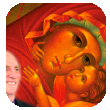 Myth inspires creative vision and dynamic action. It is not a monolithic and closed system; but a beckoning forth, an opening out, within a mythic horizon which liberates the individual, integrates experience and provides a unifying paradigm for life. John Claude Colin's development of the Marist root-metaphor in terms of eschatological vision has been little understood. This is because 'the communication of a vision is not a showing (of pictures - of reality) but a communion (in seeing - the universe): in other words it is simply and profoundly a myth. Myth inspires creative vision and dynamic action. It is not a monolithic and closed system; but a beckoning forth, an opening out, within a mythic horizon which liberates the individual, integrates experience and provides a unifying paradigm for life. John Claude Colin's development of the Marist root-metaphor in terms of eschatological vision has been little understood. This is because 'the communication of a vision is not a showing (of pictures - of reality) but a communion (in seeing - the universe): in other words it is simply and profoundly a myth. |
| |
20 October 2022
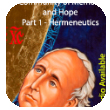 The critical issue being explored in this paper is the following: how canwe understand the past, and especially the Marist charism, in a way which engages us in the present and gives life to our future? Clearly, this is a matter of more than academic interest as a reading of the Superior General’s Report on the Society demonstrates. The critical issue being explored in this paper is the following: how canwe understand the past, and especially the Marist charism, in a way which engages us in the present and gives life to our future? Clearly, this is a matter of more than academic interest as a reading of the Superior General’s Report on the Society demonstrates. |
| |
13 October 2022
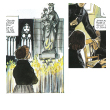 A cartoon of the story of John Claude Colin. Part 1. The first part in John Claude Colin's life one of the founders of the Marist Society. John Claude Colin is born in France in 1790 at the same time the French Revolution is breaking out. From this Chaos and the later wars brought on by Napoleon, Mary will invite the first men and women to found the Society of Mary. The original vision was for a multiple branched society even though at the time in the 1800s the church could not conceive of lay people, brothers, fathers and sisters being in one group. The original vision given by Mary had a multiple branch society in mind. Soon the early Marists would pledge themselves and be invited to go on mission. Both in the remote regions of the mountains of France and also to the outer islands of the Pacific. Soon they will go out beyond their comfort zones for Mary. A cartoon of the story of John Claude Colin. Part 1. The first part in John Claude Colin's life one of the founders of the Marist Society. John Claude Colin is born in France in 1790 at the same time the French Revolution is breaking out. From this Chaos and the later wars brought on by Napoleon, Mary will invite the first men and women to found the Society of Mary. The original vision was for a multiple branched society even though at the time in the 1800s the church could not conceive of lay people, brothers, fathers and sisters being in one group. The original vision given by Mary had a multiple branch society in mind. Soon the early Marists would pledge themselves and be invited to go on mission. Both in the remote regions of the mountains of France and also to the outer islands of the Pacific. Soon they will go out beyond their comfort zones for Mary. |
| |
09 October 2022
 Our aim is to make the whole world Marist. If I said this to theologians or to anyone else in Germany they would frown. In German the word 'Marist' ('maristisch') sounds rather strange, if not ideological, like every word in German ending in 'istisch'. Even my spiritual director told me last week that he knew there was a religious order called 'Marists' but their name did not make him think of Mary. As students we used to make fun of the name by adding an x which turned 'Marist' Our aim is to make the whole world Marist. If I said this to theologians or to anyone else in Germany they would frown. In German the word 'Marist' ('maristisch') sounds rather strange, if not ideological, like every word in German ending in 'istisch'. Even my spiritual director told me last week that he knew there was a religious order called 'Marists' but their name did not make him think of Mary. As students we used to make fun of the name by adding an x which turned 'Marist' |
| |
06 October 2022
 Christian churches have until recently used a reconfessional approach to problem of declining church numbers. This video puts forward a new approach of recontextualising how we engage with others. Hermeneutics are important. But the question is - which one will we use. - Studies of Religion. Post 1945. Christian churches have until recently used a reconfessional approach to problem of declining church numbers. This video puts forward a new approach of recontextualising how we engage with others. Hermeneutics are important. But the question is - which one will we use. - Studies of Religion. Post 1945. |
| |
26 September 2022
 As for me the only thing I can boast aboutis the cross of our Lord Jesus Christ, through whom the world is crucified to me and I to the world (Galations 6:14) For Paul there is no greater suffering than to see. some of his recent converts repudiate and denigrate the cross of Christ in everyday life. As for me the only thing I can boast aboutis the cross of our Lord Jesus Christ, through whom the world is crucified to me and I to the world (Galations 6:14) For Paul there is no greater suffering than to see. some of his recent converts repudiate and denigrate the cross of Christ in everyday life. |
| |
08 September 2022
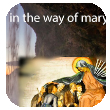 This resource 'In the way of Mary – a companion for the journey' is a form of the review of the day based on this defining moment. It is an adaptation of a long held spiritual practice within our faith tradition. For those who share in the Marist charism and spirit we believe that it will offer special support, insight and grace. This resource 'In the way of Mary – a companion for the journey' is a form of the review of the day based on this defining moment. It is an adaptation of a long held spiritual practice within our faith tradition. For those who share in the Marist charism and spirit we believe that it will offer special support, insight and grace. |
| |
07 September 2022
 One of the remarkable things that are taking place in Christian awareness today is the way in which we are being forced to look beyond familiar categories and to own again the elemental realities of Christian faith and life. One of the things that we are rediscovering is the importance of celebration, as an essential element of our human and Christian existence. When we celebrate an event or an occasion, we enter together into the deeper reality of our life: to know its wonder, its joy, its inspiration, and its challenges: Because it is a meeting with the deeper realities of life, a celebration always has an undercurrent of profound seriousness, even a margin of pathos. I am profoundly conscious of this as I try to find words appropriate to this Marist celebration. One of the remarkable things that are taking place in Christian awareness today is the way in which we are being forced to look beyond familiar categories and to own again the elemental realities of Christian faith and life. One of the things that we are rediscovering is the importance of celebration, as an essential element of our human and Christian existence. When we celebrate an event or an occasion, we enter together into the deeper reality of our life: to know its wonder, its joy, its inspiration, and its challenges: Because it is a meeting with the deeper realities of life, a celebration always has an undercurrent of profound seriousness, even a margin of pathos. I am profoundly conscious of this as I try to find words appropriate to this Marist celebration. |
| |
12 August 2022
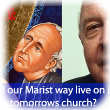 By Marist Father John Thornhill sm. In his letter to mark the Great Jubilee of the year 2000 (8 Dec. 1999), Joaquin Fernandez suggested that, if the Society of Mary is to meet the challenges which lie ahead, we must be prepared 'to deconstruct all those certainties (and they are many) - material, intellectual .and spiritual which we have built up with great effort over a long period of time'. These 'certainties', he continued, 'prevent us from discerning the newness of God, to be free to proclaim a message of true hope and to place ourselves, in coherent fashion, in the midst of the world'. By Marist Father John Thornhill sm. In his letter to mark the Great Jubilee of the year 2000 (8 Dec. 1999), Joaquin Fernandez suggested that, if the Society of Mary is to meet the challenges which lie ahead, we must be prepared 'to deconstruct all those certainties (and they are many) - material, intellectual .and spiritual which we have built up with great effort over a long period of time'. These 'certainties', he continued, 'prevent us from discerning the newness of God, to be free to proclaim a message of true hope and to place ourselves, in coherent fashion, in the midst of the world'. |
| |
09 August 2022
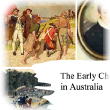 Early development of the Catholic Church in Australia for Religious Education and Studies of Religion. Topics covered - First Settlement, Anglican Church by Force, Period of Persecution, The early Catholic Church in Australia, James Dixon, castle hill rebellion, Father Jeremiah O’Flynn, and Influence of the Convict System. Early development of the Catholic Church in Australia for Religious Education and Studies of Religion. Topics covered - First Settlement, Anglican Church by Force, Period of Persecution, The early Catholic Church in Australia, James Dixon, castle hill rebellion, Father Jeremiah O’Flynn, and Influence of the Convict System. |
| |
14 July 2022
 Like Mary, we are called to leave our comfort zone and to be in the peripheries in order to offer nearness and proximity. We are sent to the strong and the weak, the wholesome and the broken. We are to be a “Malcolm in the Middle†who occupies in betwixt and between, liminal, peripheral and precarious places. Like Jesus in his ministry among the sick and the lost, we are called to meet God in the most unlikely people and places. Like him who often immersed himself at the margins, we too must be in that frontier space. It is that precarious liminal space where the true cost of our discipleship is counted, because we dare to walk with the Samaritans of our time, just like Jesus did before us. Like Mary, we are called to leave our comfort zone and to be in the peripheries in order to offer nearness and proximity. We are sent to the strong and the weak, the wholesome and the broken. We are to be a “Malcolm in the Middle†who occupies in betwixt and between, liminal, peripheral and precarious places. Like Jesus in his ministry among the sick and the lost, we are called to meet God in the most unlikely people and places. Like him who often immersed himself at the margins, we too must be in that frontier space. It is that precarious liminal space where the true cost of our discipleship is counted, because we dare to walk with the Samaritans of our time, just like Jesus did before us. |
| |
11 July 2022
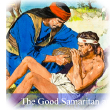 From the time we are in kindergarten, we can understand the message of Jesus' parable of the 'Good Samaritan'. That we are to be like that Samaritan and help out our neighbours in their needs. Like so many like the Good Samaritan there are layers and levels that we can draw deeper understanding. From the time we are in kindergarten, we can understand the message of Jesus' parable of the 'Good Samaritan'. That we are to be like that Samaritan and help out our neighbours in their needs. Like so many like the Good Samaritan there are layers and levels that we can draw deeper understanding. |
| |
22 June 2022
 Joan Chittister found her community as a teenager, seventy years ago, when she joined the Benedictine sisters in Pennsylvania. For decades she has devoted herself to renewing community in and beyond the Catholic church. Her fierce advocacy for women has put her at odds with some within the hierarchy, but as a spiritual writer she had brought the insights of her tradition to a wider world. Joan Chittister found her community as a teenager, seventy years ago, when she joined the Benedictine sisters in Pennsylvania. For decades she has devoted herself to renewing community in and beyond the Catholic church. Her fierce advocacy for women has put her at odds with some within the hierarchy, but as a spiritual writer she had brought the insights of her tradition to a wider world. |
| |
19 June 2022
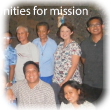 “Community for mission†seems to be encoded in our Marist-DNA. From our very earliest days – we celebrate St. Marcellin this Monday, June 6 – Marists have evangelized from within Christian communities, with Mary at our heart. “We have no other model than the early church†Father Jean-Claude says. This Pentecost on Sunday, June 5, challenges us to be faithful to this vision of Mary at the heart of the community, sent out to preach the Good News of Jesus Christ. There are always some Marists who live on their own for very good reasons. However, our Founder always encouraged us to live in communities for mission, as he himself had done in Cerdon and in the mountains of the Bugey. “Community for mission†seems to be encoded in our Marist-DNA. From our very earliest days – we celebrate St. Marcellin this Monday, June 6 – Marists have evangelized from within Christian communities, with Mary at our heart. “We have no other model than the early church†Father Jean-Claude says. This Pentecost on Sunday, June 5, challenges us to be faithful to this vision of Mary at the heart of the community, sent out to preach the Good News of Jesus Christ. There are always some Marists who live on their own for very good reasons. However, our Founder always encouraged us to live in communities for mission, as he himself had done in Cerdon and in the mountains of the Bugey. |
| |
11 June 2022
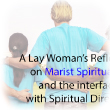 I have recently completed two years formation as a spiritual director with Spiritual Growth Ministries (New Zealand) and in that time my understanding and experience of spiritual direction expanded enormously. The formation experience did not change my spirituality, which is essentially Marist, but added depth and integration to it. In this paper I offer a taste of Marist spirituality, particularly as experienced by laity today and reflect on how that spirituality sustains and develops my direction ministry. I have recently completed two years formation as a spiritual director with Spiritual Growth Ministries (New Zealand) and in that time my understanding and experience of spiritual direction expanded enormously. The formation experience did not change my spirituality, which is essentially Marist, but added depth and integration to it. In this paper I offer a taste of Marist spirituality, particularly as experienced by laity today and reflect on how that spirituality sustains and develops my direction ministry. |
| |
05 June 2022
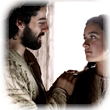 At Nazareth, even before the birth of the Church, the fullness of the Kingdom of God existed in the life of a simple family of ordinary people. Two believers gathered around Christ, and their only thought was the will of the Father. At Nazareth, even before the birth of the Church, the fullness of the Kingdom of God existed in the life of a simple family of ordinary people. Two believers gathered around Christ, and their only thought was the will of the Father. |
| |
25 April 2022
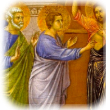 When something seems too good to be true it often is. We see a lot of this on the internet. That $50 iphone. The beautiful stranger who wants to find true love with you or the Nigerian prince who wants to give you one million dollars. We are rightly sceptical and doubtful about such things because they are usually not true. It must have seen too good to be true for those first disciples 2000 years ago who were heart broken at the death of Jesus when they suddenly found in alive again. It was heart for those who saw him face to face such as the disciples on the road to Emmaus. Mary Magdalene and the original apostles. It was hard for them to accept that Jesus had risen again. Let alone poor old Thomas who was out of the room when Jesus came back. We often call Thomas doubting Thomas. We need to cut him some slack and call him 'reasonable sceptical Thomas'. When something seems too good to be true it often is. We see a lot of this on the internet. That $50 iphone. The beautiful stranger who wants to find true love with you or the Nigerian prince who wants to give you one million dollars. We are rightly sceptical and doubtful about such things because they are usually not true. It must have seen too good to be true for those first disciples 2000 years ago who were heart broken at the death of Jesus when they suddenly found in alive again. It was heart for those who saw him face to face such as the disciples on the road to Emmaus. Mary Magdalene and the original apostles. It was hard for them to accept that Jesus had risen again. Let alone poor old Thomas who was out of the room when Jesus came back. We often call Thomas doubting Thomas. We need to cut him some slack and call him 'reasonable sceptical Thomas'. |
| |
15 April 2022
 As we listen to John’s account of the actual dying of Jesus, we feel the mystery of it all. We would love to have been there. We would love to know what his last moments were like. John tries to tell us in his gospel. Before we think about what he says, we need to look at what other gospel writers have said about those last moments of Jesus. They all give a different account of it. John has Jesus dying in complete silence. Mark has him dying with a loud cry. Silences and shouting: the silence of Jesus, the last cry of Jesus. We hear both of them. And we are there in the midst of them. As we listen to John’s account of the actual dying of Jesus, we feel the mystery of it all. We would love to have been there. We would love to know what his last moments were like. John tries to tell us in his gospel. Before we think about what he says, we need to look at what other gospel writers have said about those last moments of Jesus. They all give a different account of it. John has Jesus dying in complete silence. Mark has him dying with a loud cry. Silences and shouting: the silence of Jesus, the last cry of Jesus. We hear both of them. And we are there in the midst of them. |
| |
09 April 2022
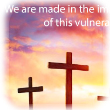 Jesus is led like a lamb to the slaughter. We are made in the image and likeness of this vulnerable God. Have you ever thought that being vulnerable is part of the essence of being a fulfilled human being? That is very counter intuitive for Western cultures. We seek fulfilment in the opposite of being in control. This deep primitive desire to be in control is actually an instinct for fascism. We find in Jesus a quality of venerability the primary antidote to the instinct of fascism. Rowan Williams says 'it is in the cross that we see in the revelation of what it is that characterises Gods personal being' Jesus is led like a lamb to the slaughter. We are made in the image and likeness of this vulnerable God. Have you ever thought that being vulnerable is part of the essence of being a fulfilled human being? That is very counter intuitive for Western cultures. We seek fulfilment in the opposite of being in control. This deep primitive desire to be in control is actually an instinct for fascism. We find in Jesus a quality of venerability the primary antidote to the instinct of fascism. Rowan Williams says 'it is in the cross that we see in the revelation of what it is that characterises Gods personal being' |
| |
| Love | Marist Laity Australia |
09 April 2022
 Katie Hood reveals the five signs you might be in an unhealthy relationship -- with a romantic partner, a friend, a family member -- and shares the things you can do every day to love with respect, kindness and joy. 'While love is an instinct and an emotion, the ability to love better is a skill we can all build and improve on over time,' she says. Katie Hood reveals the five signs you might be in an unhealthy relationship -- with a romantic partner, a friend, a family member -- and shares the things you can do every day to love with respect, kindness and joy. 'While love is an instinct and an emotion, the ability to love better is a skill we can all build and improve on over time,' she says. |
| |
27 March 2022
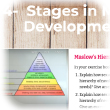 When a person chooses to ignore a religious view such as a Catholic view on sexual ethics, are they operating out of a lack of basic needs rather than seeing the higher needs? Debate and explain. When a person chooses to ignore a religious view such as a Catholic view on sexual ethics, are they operating out of a lack of basic needs rather than seeing the higher needs? Debate and explain. |
| |
27 March 2022
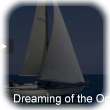 If you want to get a man to build a boat, you can teach him to saw planks of wood and hammer nails or you can teach him to dream of the ocean. The first way will get the job done. The boat will get built, but it might never leave the shore. But the person who dreams of the ocean, who yearns for the open seas will find a way to get the skills, to get the tools and get the equipment to build the boat. Then they will launch out into the deep and sail out into the horizon. If you want to get a man to build a boat, you can teach him to saw planks of wood and hammer nails or you can teach him to dream of the ocean. The first way will get the job done. The boat will get built, but it might never leave the shore. But the person who dreams of the ocean, who yearns for the open seas will find a way to get the skills, to get the tools and get the equipment to build the boat. Then they will launch out into the deep and sail out into the horizon. |
| |
27 March 2022
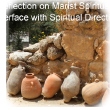 I have recently completed two years formation as a spiritual director with Spiritual Growth Ministries (New Zealand) and in that time my understanding and experience of spiritual direction expanded enormously. The formation experience did not change my spirituality, which is essentially Marist, but added depth and integration to it. In this paper I offer a taste of Marist spirituality, particularly as experienced by laity today and reflect on how that spirituality sustains and develops my direction ministry. As a third generation Pakeha (European New Zealander) I have a deep respect for tikanga Maori (Maori culture) and te reo (language) as a precious taonga (treasure) for New Zealanders. When used I will translate Maori to English in brackets. I have recently completed two years formation as a spiritual director with Spiritual Growth Ministries (New Zealand) and in that time my understanding and experience of spiritual direction expanded enormously. The formation experience did not change my spirituality, which is essentially Marist, but added depth and integration to it. In this paper I offer a taste of Marist spirituality, particularly as experienced by laity today and reflect on how that spirituality sustains and develops my direction ministry. As a third generation Pakeha (European New Zealander) I have a deep respect for tikanga Maori (Maori culture) and te reo (language) as a precious taonga (treasure) for New Zealanders. When used I will translate Maori to English in brackets. |
| |
26 March 2022
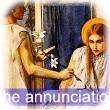 We remember how the power of God was made known in the conception of Jesus. The depth of God's love was revealed in a human life - Mary. Mary was the real flesh and blood woman who dared to say yes to God's call, freely and unconditionally. The Word became flesh in Mary and Mary continued to enflesh that loving Word in her everyday existence. We rejoice that Mary responded to God's call and she is an exemplary model for us in our path of discipleship. We remember how the power of God was made known in the conception of Jesus. The depth of God's love was revealed in a human life - Mary. Mary was the real flesh and blood woman who dared to say yes to God's call, freely and unconditionally. The Word became flesh in Mary and Mary continued to enflesh that loving Word in her everyday existence. We rejoice that Mary responded to God's call and she is an exemplary model for us in our path of discipleship. |
| |
20 March 2022
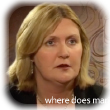 Marist Spirituality is about taking people where they are at. This is one of the strengths of the Marist Spiritual approach. It does not try to drag them kicking and screaming. It is about accepting in the first place. It is about building a relationship. It is about trying to understand a persons world view and respecting it. Marist Spirituality is about taking people where they are at. This is one of the strengths of the Marist Spiritual approach. It does not try to drag them kicking and screaming. It is about accepting in the first place. It is about building a relationship. It is about trying to understand a persons world view and respecting it. |
| |
20 March 2022
 What does Jesus mean when he says 'Unless you repent you will all perish as they did?'. Homily for 3rd Sunday of Lent Year C What does Jesus mean when he says 'Unless you repent you will all perish as they did?'. Homily for 3rd Sunday of Lent Year C |
| |
19 March 2022
 An introduction to the book of Genesis and the Bible with Marist Father Yvan Mathieu. An introduction to the book of Genesis and the Bible with Marist Father Yvan Mathieu. |
| |
16 March 2022
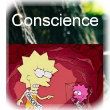 Conscience is that part of us which helps us make decisions. But what helps shapes our conscience? What forms our conscience? As we explore the nature of conscience we become more aware of factors which helps us to make better decisions. Conscience is that part of us which helps us make decisions. But what helps shapes our conscience? What forms our conscience? As we explore the nature of conscience we become more aware of factors which helps us to make better decisions. |
| |
13 March 2022
 Lent is a favourable time for personal and community renewal, as it leads us to the paschal mystery of the death and resurrection of Jesus Christ. For our Lenten journey in 2022, we will do well to reflect on Saint Paul’s exhortation to the Galatians: “Let us not grow tired of doing good, for in due time we shall reap our harvest, if we do not give up. So then, while we have the opportunity (kairós), let us do good to all†(Gal 6:9-10). Lent is a favourable time for personal and community renewal, as it leads us to the paschal mystery of the death and resurrection of Jesus Christ. For our Lenten journey in 2022, we will do well to reflect on Saint Paul’s exhortation to the Galatians: “Let us not grow tired of doing good, for in due time we shall reap our harvest, if we do not give up. So then, while we have the opportunity (kairós), let us do good to all†(Gal 6:9-10). |
| |
11 March 2022
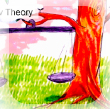 Natural Law is a broad and often misapplied term tossed around various schools of philosophy, science, history, theology, and law. Indeed, Immanuel Kant reminded us, 'What is law?' may be said to be about as embarrassing to the jurist as the well-know question ‘What is Truth?’ is to the logician. Natural Law is a broad and often misapplied term tossed around various schools of philosophy, science, history, theology, and law. Indeed, Immanuel Kant reminded us, 'What is law?' may be said to be about as embarrassing to the jurist as the well-know question ‘What is Truth?’ is to the logician. |
| |
05 March 2022
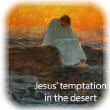 Father Jim gives an insightful reflection on the Gospel reading of Jesus in the desert and the temptation. He starts by linking to the super hero character development then leads quickly into the story of Jesus in the desert. The temptation by the devil tries to make Jesus into something he is not. Do we know scripture to rebuke our false thinking? Do we stay no to these temptations? Father Jim gives an insightful reflection on the Gospel reading of Jesus in the desert and the temptation. He starts by linking to the super hero character development then leads quickly into the story of Jesus in the desert. The temptation by the devil tries to make Jesus into something he is not. Do we know scripture to rebuke our false thinking? Do we stay no to these temptations? |
| |
02 March 2022
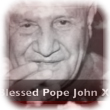 In 1963 the cuban missile crisis between communist Russia and the United States saw the threat of nuclear war at its highest point. Pope John XXIII played a pivotal role resolving the conflict between Soviet Premier Nikita Khrushchev and President John F Kennedy. Shortly after, John release Pacem In Terris months before he would die. This document promoted peace in all parts of our lives. In 1963 the cuban missile crisis between communist Russia and the United States saw the threat of nuclear war at its highest point. Pope John XXIII played a pivotal role resolving the conflict between Soviet Premier Nikita Khrushchev and President John F Kennedy. Shortly after, John release Pacem In Terris months before he would die. This document promoted peace in all parts of our lives. |
| |
13 February 2022
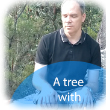 Spirituality of the Marist Family. A tree with several branches Spirituality of the Marist Family. A tree with several branches |
| |
05 February 2022
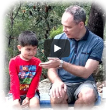 Spirituality of the Marist Family. Little Children Spirituality of the Marist Family. Little Children |
| |
30 January 2022
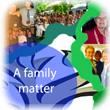 Spirituality of the Marist Family. A family matter Spirituality of the Marist Family. A family matter |
| |
26 January 2022
 Marist Spirituality. My life is not very hidden Marist Spirituality. My life is not very hidden |
| |
21 January 2022
 Spirituality of the Marist Family. A new church Spirituality of the Marist Family. A new church |
| |
18 January 2022
 Marist Spirituality. Shine Out into the Church Marist Spirituality. Shine Out into the Church |
| |
18 January 2022
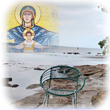 A meditation, and a reflection on the book 'Like a Bridge'. A meditation, and a reflection on the book 'Like a Bridge'. |
| |
17 January 2022
 Marist Spirituality. Like a Bridge Marist Spirituality. Like a Bridge |
| |
16 January 2022
 Being invited by Maria Baden and the Marist Laity Committee to offer the keynote address at this inaugural Marist Laity Conference in Australia is a great privilege and I thank them for this wonderful opportunity to be involved in the conference in this way. We all bring a wealth of life experience and faith and are Marists 'to the core' of our being. One of the main hopes for this conference is to share our Marist Spirit with others and this morning I hope to begin that process by sharing something of my own story. Alongside this, in breaking open the gospel story of the Wedding at Cana we will be tapping into the story of Mary and, ultimately, the story of her Son, Jesus as we are called to 'Do whatever he tells you.' Being invited by Maria Baden and the Marist Laity Committee to offer the keynote address at this inaugural Marist Laity Conference in Australia is a great privilege and I thank them for this wonderful opportunity to be involved in the conference in this way. We all bring a wealth of life experience and faith and are Marists 'to the core' of our being. One of the main hopes for this conference is to share our Marist Spirit with others and this morning I hope to begin that process by sharing something of my own story. Alongside this, in breaking open the gospel story of the Wedding at Cana we will be tapping into the story of Mary and, ultimately, the story of her Son, Jesus as we are called to 'Do whatever he tells you.' |
| |
15 January 2022
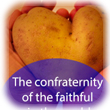 Spirituality of the Marist Family. The confraternity of the faithful in the world Spirituality of the Marist Family. The confraternity of the faithful in the world |
| |
10 January 2022
 Getting ready for Christmas this year, many have found themselves needing to find the courage and resilience to keep going, to come to a place of gratitude and joy. I came across an old story on the internet a few days ago, from the American author Grace Paley, recounting how her elderly bedridden father shared with her a word of how to persevere when growing old, and his main advice was this: “when you get up in the morning you must take your heart in your two hands. You must do this every morning.... Talk softly (to it)... You can whisper also, Remember, remember.†Getting ready for Christmas this year, many have found themselves needing to find the courage and resilience to keep going, to come to a place of gratitude and joy. I came across an old story on the internet a few days ago, from the American author Grace Paley, recounting how her elderly bedridden father shared with her a word of how to persevere when growing old, and his main advice was this: “when you get up in the morning you must take your heart in your two hands. You must do this every morning.... Talk softly (to it)... You can whisper also, Remember, remember.†|
| |
10 January 2022
 Spirituality of the Marist Family. When will the time come? Spirituality of the Marist Family. When will the time come? |
| |
08 January 2022
 Spirituality of the Marist Family. As Mary did - Part 40 - Marys simple and hidden life in Nazareth Spirituality of the Marist Family. As Mary did - Part 40 - Marys simple and hidden life in Nazareth |
| |
05 January 2022
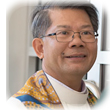 Jesus is the fullness of God’s revelation of love for us and for all of creation. This means that no matter who we are: male or female, black or white, straight or gay, rich or poor, high or low, citizen or refugee, God’s love embraces us and reverences us all. Jesus came down to live in a typical Middle Eastern village called Nazareth, that was home to a couple of hundred ‘country’ people. He did not decide to brandish his power, but to spend most of his time with the powerless and disenfranchised. Jesus is the fullness of God’s revelation of love for us and for all of creation. This means that no matter who we are: male or female, black or white, straight or gay, rich or poor, high or low, citizen or refugee, God’s love embraces us and reverences us all. Jesus came down to live in a typical Middle Eastern village called Nazareth, that was home to a couple of hundred ‘country’ people. He did not decide to brandish his power, but to spend most of his time with the powerless and disenfranchised. |
| |
03 January 2022
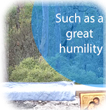 Spirituality of the Marist Family. As Mary did - Part 39 - such a great spirit of humility Spirituality of the Marist Family. As Mary did - Part 39 - such a great spirit of humility |
| |
02 January 2022
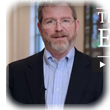 The Feast of the Epiphany, Jeff Cavins explains how—just as the Magi were drawn to Christ—people from around the world are drawn to the gospel when we live it authentically. The Feast of the Epiphany, Jeff Cavins explains how—just as the Magi were drawn to Christ—people from around the world are drawn to the gospel when we live it authentically. |
| |
31 December 2021
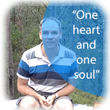 Spirituality of the Marist Family. As Mary did - Part 38 - One Heart and One Soul Spirituality of the Marist Family. As Mary did - Part 38 - One Heart and One Soul |
| |
30 December 2021
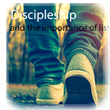 Discipleship and the importance of listening Discipleship and the importance of listening |
| |
26 December 2021
 Some years ago my friend Joel took me canyoning in the Blue Mountains for a day. Canyoning is following a stream or a river following its origin up on the ridge, down through to the valley floor. We had a beautiful day of abseiling down through water falls. Some years ago my friend Joel took me canyoning in the Blue Mountains for a day. Canyoning is following a stream or a river following its origin up on the ridge, down through to the valley floor. We had a beautiful day of abseiling down through water falls. |
| |
25 December 2021
 Human communication is frail yet full of all sorts of potential. At its best, it can be the bearer of love and affirmation, clarification and helpful facts, it can build and strengthen relationships. At its worst, it can be the bearer of hate and denigration, obfuscation and “alternate factsâ€, it can destroy and undermine relationships. We can use communication – whether it is through words or silence, rituals or symbols, physical gestures or facial expressions – to reveal and conceal, to cut and to heal. Human communication is frail yet full of all sorts of potential. At its best, it can be the bearer of love and affirmation, clarification and helpful facts, it can build and strengthen relationships. At its worst, it can be the bearer of hate and denigration, obfuscation and “alternate factsâ€, it can destroy and undermine relationships. We can use communication – whether it is through words or silence, rituals or symbols, physical gestures or facial expressions – to reveal and conceal, to cut and to heal. |
| |
23 December 2021
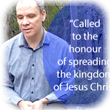 Spirituality of the Marist Family. As Mary did - Part 37 - Called to the honour of spreading the kingdom of Jesus Christ Spirituality of the Marist Family. As Mary did - Part 37 - Called to the honour of spreading the kingdom of Jesus Christ |
| |
20 December 2021
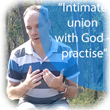 Spirituality of the Marist Family.As Mary did - Part 36 - intimate union with God - practise Spirituality of the Marist Family.As Mary did - Part 36 - intimate union with God - practise |
| |
19 December 2021
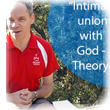 'Spirituality of the Marist Family.As Mary did - Part 35 - intimate union with God - Theory 'Spirituality of the Marist Family.As Mary did - Part 35 - intimate union with God - Theory |
| |
19 December 2021
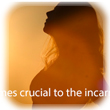 We are communal animals. It is in our nature to gather. It is not surprising therefore that the Incarnation manifests itself in human beings gathering. It is our faith that the gathering can become empowered and informed and shaped and led by the Holy Spirit of God. Today’s Gospel – Luke 1:39-45 – is a good example. Mary, prompted by the Angel’s message to her – “The Holy Spirit will come upon you, and the power of the Most High will overshadow you; … And now, your relative Elizabeth in her old age has also conceived a son†(1:35-37) – goes to Elizabeth. When she greets Elizabeth, John is brought into the gathering – “he leaped in her wombâ€. We are communal animals. It is in our nature to gather. It is not surprising therefore that the Incarnation manifests itself in human beings gathering. It is our faith that the gathering can become empowered and informed and shaped and led by the Holy Spirit of God. Today’s Gospel – Luke 1:39-45 – is a good example. Mary, prompted by the Angel’s message to her – “The Holy Spirit will come upon you, and the power of the Most High will overshadow you; … And now, your relative Elizabeth in her old age has also conceived a son†(1:35-37) – goes to Elizabeth. When she greets Elizabeth, John is brought into the gathering – “he leaped in her wombâ€. |
| |
12 December 2021
 In today’s Gospel – Luke 3:10-18 – a lot is happening! The crowds are pressing on John the Baptist for instructions as to what they must do. They are “filled with expectationâ€. This is a dangerous situation, especially with the Roman authorities hyper-alert to any signs of the Pax Romana being upset. John deflects attention from himself: “I baptize you with water; but one who is more powerful than I is coming; I am not worthy to untie the thong of his sandals. He will baptize you with the Holy Spirit and fireâ€.< In today’s Gospel – Luke 3:10-18 – a lot is happening! The crowds are pressing on John the Baptist for instructions as to what they must do. They are “filled with expectationâ€. This is a dangerous situation, especially with the Roman authorities hyper-alert to any signs of the Pax Romana being upset. John deflects attention from himself: “I baptize you with water; but one who is more powerful than I is coming; I am not worthy to untie the thong of his sandals. He will baptize you with the Holy Spirit and fireâ€.< |
| |
10 December 2021
 It is now 6 years since Pope Francis published his encyclical 'Laudatio Si' or Our Care for our Common Home. At the time it attracted world wide attention for its focus on ecology, climate, economics, and how this all impact on the poor and marginalised people. It is now 6 years since Pope Francis published his encyclical 'Laudatio Si' or Our Care for our Common Home. At the time it attracted world wide attention for its focus on ecology, climate, economics, and how this all impact on the poor and marginalised people. |
| |
07 December 2021
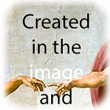 The account of creation in the first chapter of Genesis is a biblical reflection on the nature of the human person as one who shares a likeness to God and reflects the image of God. Each human being is unique and is invited to share in the company of God (DV2). The account of creation in the first chapter of Genesis is a biblical reflection on the nature of the human person as one who shares a likeness to God and reflects the image of God. Each human being is unique and is invited to share in the company of God (DV2). |
| |
06 December 2021
 This is a very complex question, but of great importance today, as the Church seeks renewal. This is a very complex question, but of great importance today, as the Church seeks renewal. |
| |
06 December 2021
 What does it mean to human? What does it mean to be human? What is human Sexuality? What does it mean to human? What does it mean to be human? What is human Sexuality? |
| |
05 December 2021
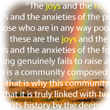 Pope Paul VI at the end of the Second Vatican Council said “in previous times, in the past and in the present century, that church was absent and cut off from human cultureâ€. This is a damming thing to say. Siege mentality that was often used. Pope Paul VI at the end of the Second Vatican Council said “in previous times, in the past and in the present century, that church was absent and cut off from human cultureâ€. This is a damming thing to say. Siege mentality that was often used. |
| |
28 November 2021
 Central to our thinking about the Christian life is the Incarnation – God’s being in the flesh. That is both a historical fact – which includes the political, the cultural, the social and the physical – and a theological fact. The reality of the Incarnation means, amongst other things, that we encounter God in history not outside history. We must resist any temptation to avoid the historical facts of life. Sometimes the Church has been regarded as some kind of metaphysical reality that stands outside history Central to our thinking about the Christian life is the Incarnation – God’s being in the flesh. That is both a historical fact – which includes the political, the cultural, the social and the physical – and a theological fact. The reality of the Incarnation means, amongst other things, that we encounter God in history not outside history. We must resist any temptation to avoid the historical facts of life. Sometimes the Church has been regarded as some kind of metaphysical reality that stands outside history |
| |
21 November 2021
 Then Pilate entered the headquarters again, summoned Jesus, and asked him, “Are you the King of the Jews?†Jesus answered, “Do you ask this on your own, or did others tell you about me?†Pilate replied, “I am not a Jew, am I? Then Pilate entered the headquarters again, summoned Jesus, and asked him, “Are you the King of the Jews?†Jesus answered, “Do you ask this on your own, or did others tell you about me?†Pilate replied, “I am not a Jew, am I? |
| |
14 November 2021
 In today’s Gospel – Mark 13:24-32 – we have an example of apocalyptic literature, a particular articulation of our shared belief. The English word, “apocalypticâ€, comes from the Greek word, apokaluptein meaning “uncover†or “revealâ€. The central focus of Christian apocalyptic literature – indeed of all Christian witness – is the uncovering or revealing of the glory of God in Jesus who is the Christ. We might reasonably think of today’s Gospel text as an incoherent articulation of the ineffable. In today’s Gospel – Mark 13:24-32 – we have an example of apocalyptic literature, a particular articulation of our shared belief. The English word, “apocalypticâ€, comes from the Greek word, apokaluptein meaning “uncover†or “revealâ€. The central focus of Christian apocalyptic literature – indeed of all Christian witness – is the uncovering or revealing of the glory of God in Jesus who is the Christ. We might reasonably think of today’s Gospel text as an incoherent articulation of the ineffable. |
| |
07 November 2021
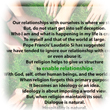 Our relationships with ourselves is where we start. But, do not start get into self deception. Who I am and what is happening in my life is crucial. To myself and that of the world at large. Pope Francis’ Laudatio Si has suggested we have tended to ignore our relationship with creation, or even abuse it. But religion helps to give us structure to enable relationships With God, self, other human beings, and the world at large. When religion forgets this primary purpose It becomes an ideology or an idea. Ideology is about imposing a world view. But, when religion maintains its soul, Dialogue is natural. Hospitality is natural. Reaching out is natural. Our relationships with ourselves is where we start. But, do not start get into self deception. Who I am and what is happening in my life is crucial. To myself and that of the world at large. Pope Francis’ Laudatio Si has suggested we have tended to ignore our relationship with creation, or even abuse it. But religion helps to give us structure to enable relationships With God, self, other human beings, and the world at large. When religion forgets this primary purpose It becomes an ideology or an idea. Ideology is about imposing a world view. But, when religion maintains its soul, Dialogue is natural. Hospitality is natural. Reaching out is natural. |
| |
31 October 2021
 In 1987, an aboriginal elder from the Daly River, Miriam Ungunmerr-Baumann, addressed a liturgy conference in Tasmania. The content of that presentation struck a deep resonance with her audience. Miriam began: “What I want to talk about today is another special quality of my people. I believe it is the most important. …. It is perhaps the greatest gift we can give to our fellow Australians. In our language, this quality is called ‘dadirri’. It is inner, deep listening, and quite, still awareness. ‘Dadirri’ recognizes the deep spring that is inside us. We call on it and it calls to us. This is the gift that Australia is thirsting for. It is something like what you call ‘contemplation’. When I experience ‘dadirri’ I am made whole again. I can sit on the river bank or walk through the trees; even if someone close to me has passed away, I can find my peace in this silent awareness. There is no need of wordsâ€. In 1987, an aboriginal elder from the Daly River, Miriam Ungunmerr-Baumann, addressed a liturgy conference in Tasmania. The content of that presentation struck a deep resonance with her audience. Miriam began: “What I want to talk about today is another special quality of my people. I believe it is the most important. …. It is perhaps the greatest gift we can give to our fellow Australians. In our language, this quality is called ‘dadirri’. It is inner, deep listening, and quite, still awareness. ‘Dadirri’ recognizes the deep spring that is inside us. We call on it and it calls to us. This is the gift that Australia is thirsting for. It is something like what you call ‘contemplation’. When I experience ‘dadirri’ I am made whole again. I can sit on the river bank or walk through the trees; even if someone close to me has passed away, I can find my peace in this silent awareness. There is no need of wordsâ€. |
| |
23 October 2021
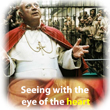 On the evening of 28 October 1958, Angelo Roncalli stepped onto the balcony at St Peter’s as the newly elected Pope John XXIII. Three hundred thousand people in St Peter’s Square greeted him. Later he reflected in his diary: “I remembered Jesus’ warning: ‘Learn of me for I am meek and humble of heart’. Dazzled by the television lights, I could see nothing but an amorphous swaying mass. I blessed Rome and the world as though I were a blind man. As I came away I thought of all the cameras and lights that from now on, at every moment, would be directed on me. And I said to myself: if you don’t remain a disciple of the gentle and humble Master, you’ll understand nothing even of temporal realities. Then you will be really blind†(Cited in Peter Hebblethwaite, John XXIII – Pope of the Council, London: HarperCollins, 1984/1994, 287-288). On the evening of 28 October 1958, Angelo Roncalli stepped onto the balcony at St Peter’s as the newly elected Pope John XXIII. Three hundred thousand people in St Peter’s Square greeted him. Later he reflected in his diary: “I remembered Jesus’ warning: ‘Learn of me for I am meek and humble of heart’. Dazzled by the television lights, I could see nothing but an amorphous swaying mass. I blessed Rome and the world as though I were a blind man. As I came away I thought of all the cameras and lights that from now on, at every moment, would be directed on me. And I said to myself: if you don’t remain a disciple of the gentle and humble Master, you’ll understand nothing even of temporal realities. Then you will be really blind†(Cited in Peter Hebblethwaite, John XXIII – Pope of the Council, London: HarperCollins, 1984/1994, 287-288). |
| |
21 October 2021
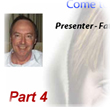 On 28th November, Marist Laity Australia held its November Reflection day, leading us into the season of Advent. Fr Ray Chapman, a Marist priest who has given MLA such wonderful support over many years, was asked to facilitate this day. Fr Ray will be finishing his time as Parish Priest of St Patrick’s Church Hill at the end of this year. Our hopes were answered when he graciously agreed to give us this parting gift. On 28th November, Marist Laity Australia held its November Reflection day, leading us into the season of Advent. Fr Ray Chapman, a Marist priest who has given MLA such wonderful support over many years, was asked to facilitate this day. Fr Ray will be finishing his time as Parish Priest of St Patrick’s Church Hill at the end of this year. Our hopes were answered when he graciously agreed to give us this parting gift.
Ray chose as the theme, Mercy begins with ME, in step with the Jubilee Year of Mercy beginning on 8th December, the feast of the Immaculate Conception. Some 50 people turned up, many of whom were wanting to tap into Ray’s wisdom before he leaves for France. |
| |
16 October 2021
 Service is a constant theme in the Bible. It takes on a particular significance in the Christian Scriptures. Sometimes the theme is explicit, mostly it is implicit. Thus, Matthew tells us: “The Son of Man came not to be served but to serve, and to give his life as a ransom for many†(20:28). Life in the kingdom is characterized by service: “You also ought to wash one another’s feet†(John 13:14) and “just as you did it to one of the least of these who are members of my family, you did it to me†(Matthew 25:40). Service is a constant theme in the Bible. It takes on a particular significance in the Christian Scriptures. Sometimes the theme is explicit, mostly it is implicit. Thus, Matthew tells us: “The Son of Man came not to be served but to serve, and to give his life as a ransom for many†(20:28). Life in the kingdom is characterized by service: “You also ought to wash one another’s feet†(John 13:14) and “just as you did it to one of the least of these who are members of my family, you did it to me†(Matthew 25:40). |
| |
13 October 2021
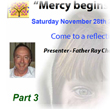 On 28th November, Marist Laity Australia held its November Reflection day, leading us into the season of Advent. Fr Ray Chapman, a Marist priest who has given MLA such wonderful support over many years, was asked to facilitate this day. Fr Ray will be finishing his time as Parish Priest of St Patrick’s Church Hill at the end of this year. Our hopes were answered when he graciously agreed to give us this parting gift. On 28th November, Marist Laity Australia held its November Reflection day, leading us into the season of Advent. Fr Ray Chapman, a Marist priest who has given MLA such wonderful support over many years, was asked to facilitate this day. Fr Ray will be finishing his time as Parish Priest of St Patrick’s Church Hill at the end of this year. Our hopes were answered when he graciously agreed to give us this parting gift.
Ray chose as the theme, Mercy begins with ME, in step with the Jubilee Year of Mercy beginning on 8th December, the feast of the Immaculate Conception. Some 50 people turned up, many of whom were wanting to tap into Ray’s wisdom before he leaves for France. |
| |
12 October 2021
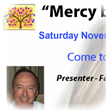 On 28th November, Marist Laity Australia held its November Reflection day, leading us into the season of Advent. Fr Ray Chapman, a Marist priest who has given MLA such wonderful support over many years, was asked to facilitate this day. Fr Ray will be finishing his time as Parish Priest of St Patrick’s Church Hill at the end of this year. Our hopes were answered when he graciously agreed to give us this parting gift. On 28th November, Marist Laity Australia held its November Reflection day, leading us into the season of Advent. Fr Ray Chapman, a Marist priest who has given MLA such wonderful support over many years, was asked to facilitate this day. Fr Ray will be finishing his time as Parish Priest of St Patrick’s Church Hill at the end of this year. Our hopes were answered when he graciously agreed to give us this parting gift.
Ray chose as the theme, Mercy begins with ME, in step with the Jubilee Year of Mercy beginning on 8th December, the feast of the Immaculate Conception. Some 50 people turned up, many of whom were wanting to tap into Ray’s wisdom before he leaves for France. |
| |
10 October 2021
 We easily forget that, at the heart of the word “question†is the word “questâ€. This forgetfulness gives rise to a certain way of questioning that is merely functional. For example, I might ask one of the attendants in the supermarket, “Where is the washing powder?†or I might ask my doctor, “What is the best diet for me?â€. It is probably fair to say that, for many, this merely functional questioning is the only kind of questioning. We easily forget that, at the heart of the word “question†is the word “questâ€. This forgetfulness gives rise to a certain way of questioning that is merely functional. For example, I might ask one of the attendants in the supermarket, “Where is the washing powder?†or I might ask my doctor, “What is the best diet for me?â€. It is probably fair to say that, for many, this merely functional questioning is the only kind of questioning. |
| |
03 October 2021
 They are both on a journey. That over time, the two will become one flesh. But seldom, do we live out that image. Marriage is fragile and vulnerable journey.The laying downof one’s life.In sacrifice.It is the union with Jesus, that the couple findthe epitome,of their union. They are both on a journey. That over time, the two will become one flesh. But seldom, do we live out that image. Marriage is fragile and vulnerable journey.The laying downof one’s life.In sacrifice.It is the union with Jesus, that the couple findthe epitome,of their union. |
| |
26 September 2021
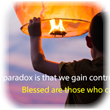 What is missing? What is it that gets in the way of the good news? Of being transformed by the good news? The paradox is that we gain control by letting go. Blessed are those who can let go. What is missing? What is it that gets in the way of the good news? Of being transformed by the good news? The paradox is that we gain control by letting go. Blessed are those who can let go. |
| |
19 September 2021
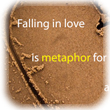 Falling in love is a metaphor for being a disciple . Falling in love is a metaphor for being a disciple . |
| |
12 September 2021
 Waking up is the work of a lifetime. Most of us will have particular moments of insight and new awareness from time to time. These are a normal part of an inner journey by which we become who and what we are – God’s creation. Today’s Gospel – Mark 8:25-37 – describes a moment of awakening for the disciples. It comes after many missed opportunities, it must be said. It is rare for human beings to grasp the first opportunity that life offers to wake up. Waking up is the work of a lifetime. Most of us will have particular moments of insight and new awareness from time to time. These are a normal part of an inner journey by which we become who and what we are – God’s creation. Today’s Gospel – Mark 8:25-37 – describes a moment of awakening for the disciples. It comes after many missed opportunities, it must be said. It is rare for human beings to grasp the first opportunity that life offers to wake up. |
| |
05 September 2021
 We can recognize here the place of solitude in Jesus’ life. The English word “solitude†has its roots in the Latin word, solus, meaning “aloneâ€. It is, however, quite different from simply “being aloneâ€. Solitude is about being present to yourself – really present. That can indeed be aided by being alone. However, we can also experience solitude in a crowd. And we can resist solitude when we are alone. Solitude is a choice. It is facing the truth within. Solitude is an essential part of becoming We can recognize here the place of solitude in Jesus’ life. The English word “solitude†has its roots in the Latin word, solus, meaning “aloneâ€. It is, however, quite different from simply “being aloneâ€. Solitude is about being present to yourself – really present. That can indeed be aided by being alone. However, we can also experience solitude in a crowd. And we can resist solitude when we are alone. Solitude is a choice. It is facing the truth within. Solitude is an essential part of becoming |
| |
05 September 2021
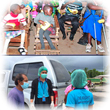 So much around us can look as if it is broken. We see fractured countries and societies from Afghanistan to Myanmar, from Ethiopia to Venezuela. A huge earthquake tears Haiti apart while the rest of the world, ravaged with Covid and with fears about potential ecological disaster, hardly notices. Sometimes these factures seem to cut right through our own hearts and our own communities. So much around us can look as if it is broken. We see fractured countries and societies from Afghanistan to Myanmar, from Ethiopia to Venezuela. A huge earthquake tears Haiti apart while the rest of the world, ravaged with Covid and with fears about potential ecological disaster, hardly notices. Sometimes these factures seem to cut right through our own hearts and our own communities. |
| |
29 August 2021
 The kingdom – the Person – slowly emerges as a reality for us individually and communally in the context of human society. We must have rules and rituals for society to function. But those rules and rituals are not to be regarded as the instruments of our moral triumphs, but enablers of grace – the graced emergence of the kingdom. The kingdom – the Person – slowly emerges as a reality for us individually and communally in the context of human society. We must have rules and rituals for society to function. But those rules and rituals are not to be regarded as the instruments of our moral triumphs, but enablers of grace – the graced emergence of the kingdom. |
| |
27 August 2021
 Dr Jessy Rogers from Ireland, provided what the Plenary meant as an international church. Pope Francis has called the church to become a synodal church. Synodality needs mechanisms and processes to enable it to happen. This is what plenary councils and plenary councils do. Those are what enable it. Synodality itself is actually a way of being church. Dr Jessy Rogers from Ireland, provided what the Plenary meant as an international church. Pope Francis has called the church to become a synodal church. Synodality needs mechanisms and processes to enable it to happen. This is what plenary councils and plenary councils do. Those are what enable it. Synodality itself is actually a way of being church. |
| |
22 August 2021
 If we have grown up within a Eucharistic faith, we may glide over “this teaching†that so affronted the disciples. Here is a little exercise. Imagine you are there with the disciples. Take a little time to construct the scene in your imagination. Catch Jesus’ eye. He holds your gaze and tells you: “Unless you eat the flesh of the Son of Man and drink his blood you will not have life in youâ€. Hold his gaze. After a moment he says to you: “Do you also wish to go away?†If we have grown up within a Eucharistic faith, we may glide over “this teaching†that so affronted the disciples. Here is a little exercise. Imagine you are there with the disciples. Take a little time to construct the scene in your imagination. Catch Jesus’ eye. He holds your gaze and tells you: “Unless you eat the flesh of the Son of Man and drink his blood you will not have life in youâ€. Hold his gaze. After a moment he says to you: “Do you also wish to go away?†|
| |
15 August 2021
 What we generally refer to as the “real worldâ€, is largely constructed by human beings. It is a necessary fiction. Imagine trying to live without (at least some) shared meaning and values, agreed rules, regulations, and so on. Chaos and anarchy would ensue – at least until someone or some group takes charge and constructs an alternative “real worldâ€. Dystopian movies such as the Mad Max series make much of this horrible possibility. What we generally refer to as the “real worldâ€, is largely constructed by human beings. It is a necessary fiction. Imagine trying to live without (at least some) shared meaning and values, agreed rules, regulations, and so on. Chaos and anarchy would ensue – at least until someone or some group takes charge and constructs an alternative “real worldâ€. Dystopian movies such as the Mad Max series make much of this horrible possibility. |
| |
13 August 2021
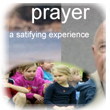 Can prayer be a satisfying experience for all of us. Not only the professionals, the religious, the sisters, brothers and clergy? Can we all have a satisfying experience? Wanting to open the door to you towards what should be a satisfying experience. Can prayer be a satisfying experience for all of us. Not only the professionals, the religious, the sisters, brothers and clergy? Can we all have a satisfying experience? Wanting to open the door to you towards what should be a satisfying experience. |
| |
08 August 2021
 Today’s Gospel – Matthew 6:25-34 – seems like a call to mobilize our willpower and strive not to worry. That would be a formula for worry! Add Jesus’ authority and the worry will be intensified by false guilt. This text needs careful interpretation. Today’s Gospel – Matthew 6:25-34 – seems like a call to mobilize our willpower and strive not to worry. That would be a formula for worry! Add Jesus’ authority and the worry will be intensified by false guilt. This text needs careful interpretation. |
| |
03 August 2021
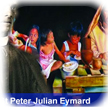 By Peter Julian Eymard. Jesus is a model of poverty. “Blessed are the poor in spirit†(Matthew 5:3). The spirit and this virtue are a life of Jesus. Virtue and a perpetual poverty. The eternal word adopted it in his becoming man. He took what was most humiliating about poverty. The bode of beasts and what was most difficult about it. The stable. The major. The straw. The cold. The night. He was born far from the homes of men who offered him no assistance in his need. To be poorer still, the word made flesh will be born during a journey and refused hospitality on account of the poverty of his parents. By Peter Julian Eymard. Jesus is a model of poverty. “Blessed are the poor in spirit†(Matthew 5:3). The spirit and this virtue are a life of Jesus. Virtue and a perpetual poverty. The eternal word adopted it in his becoming man. He took what was most humiliating about poverty. The bode of beasts and what was most difficult about it. The stable. The major. The straw. The cold. The night. He was born far from the homes of men who offered him no assistance in his need. To be poorer still, the word made flesh will be born during a journey and refused hospitality on account of the poverty of his parents. |
| |
31 July 2021
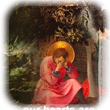 In today’s Gospel – John 6:24-35 – we are told that the people are “looking for Jesusâ€. What do they want? What do they expect? Jesus says to them: “You are looking for me, not because you saw signs, but because you ate your fill of the loavesâ€. Still, they do not understand what he is pointing out to them. So they ask for a program, a sort of moral schedule that will ensure that they will be able to please God: “What must we do to perform the works of God?†In today’s Gospel – John 6:24-35 – we are told that the people are “looking for Jesusâ€. What do they want? What do they expect? Jesus says to them: “You are looking for me, not because you saw signs, but because you ate your fill of the loavesâ€. Still, they do not understand what he is pointing out to them. So they ask for a program, a sort of moral schedule that will ensure that they will be able to please God: “What must we do to perform the works of God?†|
| |
24 July 2021
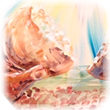 In today’s Gospel – John 6:1-15 – we see Jesus with his disciples in an awkward situation. A large crowd had followed Jesus in the wilderness. Why? Because they believed in him as the Son of God? No! It was “because they saw the signs that he was doing for the sickâ€. They were not reading the miracles as “signs†but as power. Vulnerable people seeking invulnerability? They wanted some of that power channeled in their direction! This led to a potentially embarrassing outcome: “Jesus said to Philip: ‘Where are we to buy bread for these people to eat?’ He said this to test him, for he himself knew what he was going to do. Philip answered him, ‘Six months’ wages would not buy enough bread for each of them to get a little’.†In today’s Gospel – John 6:1-15 – we see Jesus with his disciples in an awkward situation. A large crowd had followed Jesus in the wilderness. Why? Because they believed in him as the Son of God? No! It was “because they saw the signs that he was doing for the sickâ€. They were not reading the miracles as “signs†but as power. Vulnerable people seeking invulnerability? They wanted some of that power channeled in their direction! This led to a potentially embarrassing outcome: “Jesus said to Philip: ‘Where are we to buy bread for these people to eat?’ He said this to test him, for he himself knew what he was going to do. Philip answered him, ‘Six months’ wages would not buy enough bread for each of them to get a little’.†|
| |
11 July 2021
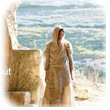 In today’s Gospel – Mark 6:7-13 – the fishermen are introduced to the mission: “Jesus called the twelve and began to send them out two by two, and gave them authority over the unclean spiritsâ€. We are told little more than that “they cast out many demons, and anointed with oil many who were sick and cured themâ€. Notice, Jesus has not yet entrusted them with the ultimate task of proclaiming the reign of God, the Kingdom. In today’s Gospel – Mark 6:7-13 – the fishermen are introduced to the mission: “Jesus called the twelve and began to send them out two by two, and gave them authority over the unclean spiritsâ€. We are told little more than that “they cast out many demons, and anointed with oil many who were sick and cured themâ€. Notice, Jesus has not yet entrusted them with the ultimate task of proclaiming the reign of God, the Kingdom. |
| |
09 July 2021
 I think of Marist spirituality as kitchen table spirituality. That way of being and talking about life to me is Marist Spirituality. It is not that it rejects the theoretical. It is just that it assumes that living it practically and making it real is the real essence of the spirit. I think of Marist spirituality as kitchen table spirituality. That way of being and talking about life to me is Marist Spirituality. It is not that it rejects the theoretical. It is just that it assumes that living it practically and making it real is the real essence of the spirit. |
| |
08 July 2021
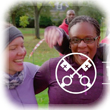 Lay people are on the front line of the life of the church. We need their testimony regarding the truth of the Gospel and their example of expressing their faith by practising solidarity. Let us give thanks for the lay people who take risks, who are not afraid and who offer reasons for hope to the poorest, to the excluded, to the marginalised. Lay people are on the front line of the life of the church. We need their testimony regarding the truth of the Gospel and their example of expressing their faith by practising solidarity. Let us give thanks for the lay people who take risks, who are not afraid and who offer reasons for hope to the poorest, to the excluded, to the marginalised. |
| |
04 July 2021
 A reflection on the Gospel Mark 6:1-6. A very wise old psychotherapist once told me that the work of the psychotherapist is to help people feel at home in the world, while the work of the spiritual director is to help people not feel at home in the world. If you are in anyway reflective, you will be aware of the “more thanâ€. The presence of the “more than†can have varying and sometimes quite challenging effects on us. A reflection on the Gospel Mark 6:1-6. A very wise old psychotherapist once told me that the work of the psychotherapist is to help people feel at home in the world, while the work of the spiritual director is to help people not feel at home in the world. If you are in anyway reflective, you will be aware of the “more thanâ€. The presence of the “more than†can have varying and sometimes quite challenging effects on us. |
| |
29 June 2021
 Simplicity is a very important for both Christians and Marists. It asks the question - 'What is the most important thing in our lives'? We are called to let go of what is not as important. Yet, this is very hard. Especially in our culture and society that encourages the opposite. Simplicity is a very important for both Christians and Marists. It asks the question - 'What is the most important thing in our lives'? We are called to let go of what is not as important. Yet, this is very hard. Especially in our culture and society that encourages the opposite. |
| |
27 June 2021
 Unlike the Gospels of Matthew and Luke, Mark’s Gospel has no account of Jesus’ birth or early life. Mark plunges straight into the story of John the Baptist and the baptism of Jesus. A brief reference is made to the temptations in the desert then Jesus begins his public ministry. There is a sense of urgency. The first disciples are called, the sick are healed, demons are cast out, parables are told, Jesus sails back and forth across the Sea of Galilee, from the Jewish side to the Gentile side . . . he is on a mission! Unlike the Gospels of Matthew and Luke, Mark’s Gospel has no account of Jesus’ birth or early life. Mark plunges straight into the story of John the Baptist and the baptism of Jesus. A brief reference is made to the temptations in the desert then Jesus begins his public ministry. There is a sense of urgency. The first disciples are called, the sick are healed, demons are cast out, parables are told, Jesus sails back and forth across the Sea of Galilee, from the Jewish side to the Gentile side . . . he is on a mission! |
| |
24 June 2021
 This is a question which has in a sense a frantically common sign. For the real question is not are we to make of Christ, but what is he to make of us. The picture of a fly sitting deciding what it is going to make of an elephant has common elements about it. This is a question which has in a sense a frantically common sign. For the real question is not are we to make of Christ, but what is he to make of us. The picture of a fly sitting deciding what it is going to make of an elephant has common elements about it. |
| |
20 June 2021
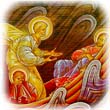 All three synoptic Gospels give accounts of the calming of the storm – see Matthew 8:23–27; Luke 8:22–25 and Mark 4:35-41 which is today’s Gospel. Each of the accounts is remarkably similar. There is one extraordinary detail, however, that sets Mark’s account apart. At the height of their fear, Mark tells us that “they†– the disciples – said to Jesus, “Teacher, do you not care that we are perishing?â€Â Don’t you care! What a thing to say to Jesus! All three synoptic Gospels give accounts of the calming of the storm – see Matthew 8:23–27; Luke 8:22–25 and Mark 4:35-41 which is today’s Gospel. Each of the accounts is remarkably similar. There is one extraordinary detail, however, that sets Mark’s account apart. At the height of their fear, Mark tells us that “they†– the disciples – said to Jesus, “Teacher, do you not care that we are perishing?â€Â Don’t you care! What a thing to say to Jesus! |
| |
12 June 2021
 “The kingdom of God is as if someone would scatter seed on the ground, and would sleep and rise night and day, and the seed would sprout and grow, he does not know how.†So begins today’s Gospel – see Mark 4:26-34. What a peculiar way to speak of “the Kingdom of Godâ€! But parables are like that. They present the imagination with a series of triggers that can awaken us to new and deeper truths. Consider the last phrase as such a trigger – “he does not know howâ€. It challenges our taken for granted understanding of what it means to know. It invites us to open ourselves to a much deeper knowing – one that might, in fact, look more like “unknowingâ€. “The kingdom of God is as if someone would scatter seed on the ground, and would sleep and rise night and day, and the seed would sprout and grow, he does not know how.†So begins today’s Gospel – see Mark 4:26-34. What a peculiar way to speak of “the Kingdom of Godâ€! But parables are like that. They present the imagination with a series of triggers that can awaken us to new and deeper truths. Consider the last phrase as such a trigger – “he does not know howâ€. It challenges our taken for granted understanding of what it means to know. It invites us to open ourselves to a much deeper knowing – one that might, in fact, look more like “unknowingâ€. |
| |
06 June 2021
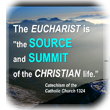 Today we celebrate the Feast of the Most Holy Body and Blood of Christ. Our Gospel – Mark 14:12-16 & 22-26 – gives us an intriguing description of the final meal Jesus has with his disciples. Is this a formal, Passover ritual or a more informal meal? Today we celebrate the Feast of the Most Holy Body and Blood of Christ. Our Gospel – Mark 14:12-16 & 22-26 – gives us an intriguing description of the final meal Jesus has with his disciples. Is this a formal, Passover ritual or a more informal meal? |
| |
06 June 2021
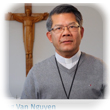 At the same time, Bishop Vincent Long announced that this approach will be known as Living Life to the Full, drawing on Jesus’ words in John 10:10: “I have come so that they may have life and have it to the full.†Reflecting the richness of our Catholic Tradition that enables fullness of life through the Gospel, Living Life to the Full is an invitation for everyone to experience human flourishing. At the same time, Bishop Vincent Long announced that this approach will be known as Living Life to the Full, drawing on Jesus’ words in John 10:10: “I have come so that they may have life and have it to the full.†Reflecting the richness of our Catholic Tradition that enables fullness of life through the Gospel, Living Life to the Full is an invitation for everyone to experience human flourishing. |
| |
05 June 2021
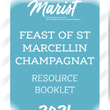 The amazing Champagnat Week 2021 resources provided to Marist Schools and Ministries by the Marist Association of Saint Marcellin Champagnat. A gift that keeps giving. We hope all 56 schools and ministries in Australia are enjoying them. The amazing Champagnat Week 2021 resources provided to Marist Schools and Ministries by the Marist Association of Saint Marcellin Champagnat. A gift that keeps giving. We hope all 56 schools and ministries in Australia are enjoying them. |
| |
04 June 2021
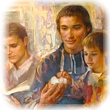 Transformational leaders are future oriented people who are able to see fundamental discrepancies between the way things are and the way they should be, They recognise the shortcomings of a present order and offer an imaginative vision to overcome them. Transformational leaders are future oriented people who are able to see fundamental discrepancies between the way things are and the way they should be, They recognise the shortcomings of a present order and offer an imaginative vision to overcome them. |
| |
29 May 2021
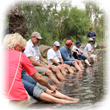 Today is the Feast of the Most Holy Trinity. It is a celebration of the Loving Community that we call God. Our Gospel text is a brief and simple one – Matthew 28:16-20: “make disciples of all nations, baptizing them in the name of the Father and of the Son and of the Holy Spirit†Today is the Feast of the Most Holy Trinity. It is a celebration of the Loving Community that we call God. Our Gospel text is a brief and simple one – Matthew 28:16-20: “make disciples of all nations, baptizing them in the name of the Father and of the Son and of the Holy Spirit†|
| |
23 May 2021
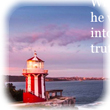 Today’s Gospel – John 15:26-27 & 16:12-15 – reminds us of another Johannine theme: “Truth†– “when the Spirit of truth comes, he will guide you into all the truthâ€. “Truthâ€, as used by John, can only be understood in the context of the other themes, especially, menÅ. Today’s Gospel – John 15:26-27 & 16:12-15 – reminds us of another Johannine theme: “Truth†– “when the Spirit of truth comes, he will guide you into all the truthâ€. “Truthâ€, as used by John, can only be understood in the context of the other themes, especially, menÅ. |
| |
16 May 2021
 Recently I was having a conversation with another parent whose daughter finished school 3 years prior. She commented that during her daughters schooling religion and spirituality focused on academic and priority on thinking. Sadly, since leaving school, her daughter has completely abandoned religion. I thought to myself, this is typical for most young people in Australia. Someone in the teenage years, faith, religion and spirituality do not grow up. Recently I was having a conversation with another parent whose daughter finished school 3 years prior. She commented that during her daughters schooling religion and spirituality focused on academic and priority on thinking. Sadly, since leaving school, her daughter has completely abandoned religion. I thought to myself, this is typical for most young people in Australia. Someone in the teenage years, faith, religion and spirituality do not grow up. |
| |
16 May 2021
 Endings are part and parcel of everyday life. Endings change things. Endings may be predictable or unpredictable, remarkable or unremarkable. The day ends, a night’s sleep ends, a meal ends, a conversation ends, a journey ends, a relationship ends, a career ends, a life ends. Day to day living simply would not go on without endings. Endings are part and parcel of everyday life. Endings change things. Endings may be predictable or unpredictable, remarkable or unremarkable. The day ends, a night’s sleep ends, a meal ends, a conversation ends, a journey ends, a relationship ends, a career ends, a life ends. Day to day living simply would not go on without endings. |
| |
09 May 2021
 Our Gospel today – John 15:9-17 – contains nine explicit references to love. Together they emphasize a profound and practical truth: Being a disciple of Jesus is being in love. The first of these references sets the context for the others: The Father’s love for Jesus. In his First Letter John spells this out: “God is love . . . all love is from God; everyone who loves is born of God and knows God . . . God sent his only Son into the world so that we might live through him. In this is love, not that we loved God but that he loved us†– see 1 John 4:8-10. Our Gospel today – John 15:9-17 – contains nine explicit references to love. Together they emphasize a profound and practical truth: Being a disciple of Jesus is being in love. The first of these references sets the context for the others: The Father’s love for Jesus. In his First Letter John spells this out: “God is love . . . all love is from God; everyone who loves is born of God and knows God . . . God sent his only Son into the world so that we might live through him. In this is love, not that we loved God but that he loved us†– see 1 John 4:8-10. |
| |
18 April 2021
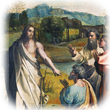 One of the truly striking features of the Gospels is that they are focused on Jesus himself. Jesus is the Good News! That is nowhere more so than in today’s Gospel – Luke 24:35-48. When describing the reactions of the disciples, Luke uses words like, “startled†and “terrified†and “frightenedâ€. However, perhaps the most interesting of his descriptions is, “in their joy they were disbelieving and still wonderingâ€. One of the truly striking features of the Gospels is that they are focused on Jesus himself. Jesus is the Good News! That is nowhere more so than in today’s Gospel – Luke 24:35-48. When describing the reactions of the disciples, Luke uses words like, “startled†and “terrified†and “frightenedâ€. However, perhaps the most interesting of his descriptions is, “in their joy they were disbelieving and still wonderingâ€. |
| |
10 April 2021
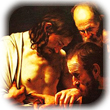 In John’s Gospel, Thomas seems to be a man of drive and energy, ready to take on a challenge, a man of high ideals. But he also likes to be convinced that what he is doing is worth it. We meet him in John 11:16, when Jesus announces his intention of returning to Judea to visit Lazarus: “Thomas, who was called the Twin, said to his fellow disciples, ‘Let us also go, that we may die with him’â€. Thomas does not really know what he is saying! In John’s Gospel, Thomas seems to be a man of drive and energy, ready to take on a challenge, a man of high ideals. But he also likes to be convinced that what he is doing is worth it. We meet him in John 11:16, when Jesus announces his intention of returning to Judea to visit Lazarus: “Thomas, who was called the Twin, said to his fellow disciples, ‘Let us also go, that we may die with him’â€. Thomas does not really know what he is saying! |
| |
05 April 2021
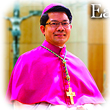 At the heart of the Easter message is the summons to a new future, framed with hope and possibility, in the midst of entrenched hopelessness. As with Mary and the disciples, who were emboldened to move from the shadows of crucifixion into the light and life of the Risen Christ, the Church must live this message. At the heart of the Easter message is the summons to a new future, framed with hope and possibility, in the midst of entrenched hopelessness. As with Mary and the disciples, who were emboldened to move from the shadows of crucifixion into the light and life of the Risen Christ, the Church must live this message. |
| |
04 April 2021
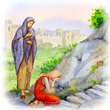 Listen to the hopelessness in those opening lines of today’s Gospel – Mark 16:1-8: “When the Sabbath was over, Mary Magdalene, and Mary the mother of James, and Salome bought spices, so that they might go and anoint him. And very early on the first day of the week, when the sun had risen, they went to the tomb. They had been saying to one another, ‘Who will roll away the stone for us from the entrance to the tomb?’†It is not difficult to imagine the women walking with their heads down. The harsh truth of what they had personally witnessed was weighing heavily on them. From the arrest of Jesus, through his “trialâ€, torture and eventual brutal crucifixion, they had every last ounce of hope wrung out of them. That Friday was not a beginning but an unimaginably horrid ending. Listen to the hopelessness in those opening lines of today’s Gospel – Mark 16:1-8: “When the Sabbath was over, Mary Magdalene, and Mary the mother of James, and Salome bought spices, so that they might go and anoint him. And very early on the first day of the week, when the sun had risen, they went to the tomb. They had been saying to one another, ‘Who will roll away the stone for us from the entrance to the tomb?’†It is not difficult to imagine the women walking with their heads down. The harsh truth of what they had personally witnessed was weighing heavily on them. From the arrest of Jesus, through his “trialâ€, torture and eventual brutal crucifixion, they had every last ounce of hope wrung out of them. That Friday was not a beginning but an unimaginably horrid ending. |
| |
04 April 2021
 For many people Easter weekend is celebrated with friends and family, with sports events and taking “a bit of a breakâ€. This year the Covid virus puts a dark cloud over some of these celebrations, but people do the best they can. There may be the hope that in the midst of all these celebrations people remember the joy of the Resurrection. Well, perhaps! For many people Easter weekend is celebrated with friends and family, with sports events and taking “a bit of a breakâ€. This year the Covid virus puts a dark cloud over some of these celebrations, but people do the best they can. There may be the hope that in the midst of all these celebrations people remember the joy of the Resurrection. Well, perhaps! |
| |
28 March 2021
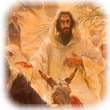 Madeleine Albright, US Secretary of State from 1997 to 2001, published a book entitled, Fascism: A Warning (London: William Collins, 2018). She was eleven when she escaped from Czechoslovakia with her parents and two siblings. She lost “three grandparents, and numerous aunts, uncles and cousins … among the millions of Jews who had died in the ultimate act of Fascism – the Holocaust†Madeleine Albright, US Secretary of State from 1997 to 2001, published a book entitled, Fascism: A Warning (London: William Collins, 2018). She was eleven when she escaped from Czechoslovakia with her parents and two siblings. She lost “three grandparents, and numerous aunts, uncles and cousins … among the millions of Jews who had died in the ultimate act of Fascism – the Holocaust†|
| |
21 March 2021
 It is easy to forget – and we must not forget! – the huge transformation that the disciples have to go through in their thinking of the Christ. The standard assumptions would have been strongly influenced by the legends of David passed down through the ages. At the very least, the Christ would meet some acceptable criteria of human success. Little if anything in current thinking prepared them for a Christ who would be vulnerable, apparently defeated by the powers that be, left to die an ignominious death like a criminal on a Roman cross for the passing world to mock. It is easy to forget – and we must not forget! – the huge transformation that the disciples have to go through in their thinking of the Christ. The standard assumptions would have been strongly influenced by the legends of David passed down through the ages. At the very least, the Christ would meet some acceptable criteria of human success. Little if anything in current thinking prepared them for a Christ who would be vulnerable, apparently defeated by the powers that be, left to die an ignominious death like a criminal on a Roman cross for the passing world to mock. |
| |
19 March 2021
 The hiddenness of St. Josephs life can speak to those overwhelmed by the pandemic. Fr. James Martin, SJ, reflects on why St. Joseph is the saint we need as enter into a new year. The hiddenness of St. Josephs life can speak to those overwhelmed by the pandemic. Fr. James Martin, SJ, reflects on why St. Joseph is the saint we need as enter into a new year. |
| |
14 March 2021
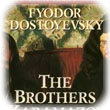 In today’s brief Gospel text – John 3:14-21 – John has Jesus make a summary statement of human moral possibilities: “The light has come into the world, and people loved darkness rather than light because their deeds were evil. For all who do evil hate the light and do not come to the light, so that their deeds may not be exposed. But those who do what is true come to the lightâ€. In today’s brief Gospel text – John 3:14-21 – John has Jesus make a summary statement of human moral possibilities: “The light has come into the world, and people loved darkness rather than light because their deeds were evil. For all who do evil hate the light and do not come to the light, so that their deeds may not be exposed. But those who do what is true come to the lightâ€. |
| |
03 March 2021
 To simplicity we link humility and modesty, making the “three violets†of our Marist tradition. In our teaching and organisational structures, we show a preference for simplicity of method. Our way of educating, like Marcellin’s, is personal, rooted in real life, and practical. Likewise simplicity of expression, avoiding any ostentation, guides our way of responding to the possibilities and the demands of our contemporary educational settings. To simplicity we link humility and modesty, making the “three violets†of our Marist tradition. In our teaching and organisational structures, we show a preference for simplicity of method. Our way of educating, like Marcellin’s, is personal, rooted in real life, and practical. Likewise simplicity of expression, avoiding any ostentation, guides our way of responding to the possibilities and the demands of our contemporary educational settings. |
| |
28 February 2021
 The second affirmation occurs at the transfiguration of Jesus. The transfiguration begins the testing period leading to Jerusalem and the Cross – the second half of Mark’s Gospel. The second affirmation occurs at the transfiguration of Jesus. The transfiguration begins the testing period leading to Jerusalem and the Cross – the second half of Mark’s Gospel. |
| |
21 February 2021
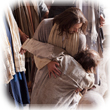 We are in the presence of someone who has experienced an event that has turned his world on its head – he has been driven into the wilderness by the Spirit of God! By any measure – if it is true what we say about the Incarnation – it should also turn my world on its head. We are in the presence of someone who has experienced an event that has turned his world on its head – he has been driven into the wilderness by the Spirit of God! By any measure – if it is true what we say about the Incarnation – it should also turn my world on its head. |
| |
16 February 2021
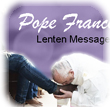 Listen to the audio of Pope Francis Lenten Message for 2021. Listen to the audio of Pope Francis Lenten Message for 2021. |
| |
14 February 2021
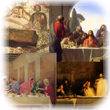 Explore the meaning of the eucharist through a series of interactive activities. Is the Eucharist boring or is there something we are missing? Ponder the meaning.....both personally, at home, in youth group or at school. Explore the meaning of the eucharist through a series of interactive activities. Is the Eucharist boring or is there something we are missing? Ponder the meaning.....both personally, at home, in youth group or at school. |
| |
07 February 2021
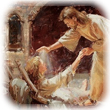 A short reflection on Jesus calling of his disciples and mission of Jesus Christ. A short reflection on Jesus calling of his disciples and mission of Jesus Christ. |
| |
04 February 2021
 By John Thornhill sm The Magnificat is probably the most revealing text about Mary. It comes from Saint Luke. Saint Luke really loved Mary and was very interested in Mary. There is a rich number of text in Luke’s infancy Gospel and the other parts of the Gospel. By John Thornhill sm The Magnificat is probably the most revealing text about Mary. It comes from Saint Luke. Saint Luke really loved Mary and was very interested in Mary. There is a rich number of text in Luke’s infancy Gospel and the other parts of the Gospel. |
| |
31 January 2021
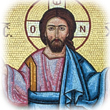 A short reflection on authority both in Jesus in his day, but also today. A short reflection on authority both in Jesus in his day, but also today. |
| |
31 January 2021
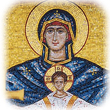 This is a summary from one of the books in the Marist Laity Australia library in the Colin Library. It's about the Marist Spirit. This is a summary from one of the books in the Marist Laity Australia library in the Colin Library. It's about the Marist Spirit. |
| |
30 January 2021
 Reflective listening is the ability to bounce back at them what they are saying. This is a skill that does not come naturally to us. When involved in a conversation we tend to talk about ourselves, or give advice, we try to make them feel better or agree or disagree or tell stories. Reflective listening is the ability to bounce back at them what they are saying. This is a skill that does not come naturally to us. When involved in a conversation we tend to talk about ourselves, or give advice, we try to make them feel better or agree or disagree or tell stories. |
| |
28 January 2021
 We do not break generations apart. That is what we learn in scripture. We carry the best of every generation with us. That is the difference between tradition and traditionalism. There was a liturgist at St John’s in Minnesota, Godfrey Dateman said one day “I don’t have a lot to teach you. But I will teach you the difference between tradition and traditionalism. Traditionalism is the stuff we pass on. Tradition is the passing on of the stuffâ€. We do not break generations apart. That is what we learn in scripture. We carry the best of every generation with us. That is the difference between tradition and traditionalism. There was a liturgist at St John’s in Minnesota, Godfrey Dateman said one day “I don’t have a lot to teach you. But I will teach you the difference between tradition and traditionalism. Traditionalism is the stuff we pass on. Tradition is the passing on of the stuffâ€. |
| |
27 January 2021
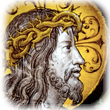 A prayer and reflection for teachers A prayer and reflection for teachers |
| |
24 January 2021
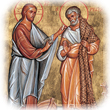 A short reflection on the calling of Peter in the Gospels. A short reflection on the calling of Peter in the Gospels. |
| |
21 January 2021
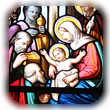 The Vocation of a Marist involves a response to four calls The Call of Christ, The Call of the Church, The Call of the Founder and The Call of modern humanity. The Vocation of a Marist involves a response to four calls The Call of Christ, The Call of the Church, The Call of the Founder and The Call of modern humanity. |
| |
10 January 2021
 By Marist Sister Marie Berise Nash sm on how we become 'Bearers of Hope'. In this present period of the beginning of the Third Millennium we wish to turn in a special way to her (Mary) the one who in the night of the Advent expectation began to shine like a true Morning Star, for just as this star, together with the dawn precedes the rising of the sun, so Mary from the time of her Immaculate Conception preceded the coming of the Saviour Her presence in the midst of Israel a presence so discreet as to pass almost unnoticed by the eyes of her contemporaries shone very clearly before the Eternal One who had associated the hidden daughter of Zion with the plan of salvation embracing the whole history of humanity. By Marist Sister Marie Berise Nash sm on how we become 'Bearers of Hope'. In this present period of the beginning of the Third Millennium we wish to turn in a special way to her (Mary) the one who in the night of the Advent expectation began to shine like a true Morning Star, for just as this star, together with the dawn precedes the rising of the sun, so Mary from the time of her Immaculate Conception preceded the coming of the Saviour Her presence in the midst of Israel a presence so discreet as to pass almost unnoticed by the eyes of her contemporaries shone very clearly before the Eternal One who had associated the hidden daughter of Zion with the plan of salvation embracing the whole history of humanity. |
| |
07 January 2021
 Marists are people who claim to have such a vision, and who believe that what they do is supremely worthwhile. In fact, it's very important that we define ourselves as Marists, not by what we do but by our special vision of life. Marists are people who claim to have such a vision, and who believe that what they do is supremely worthwhile. In fact, it's very important that we define ourselves as Marists, not by what we do but by our special vision of life. |
| |
22 December 2020
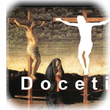 In our search for possible factors within the Catholic system that might have had some bearing on the incidence of sexual abuse and the poor way it was handling, we turn now to the question of belief and, more specifically, how we think of Jesus Christ. In our search for possible factors within the Catholic system that might have had some bearing on the incidence of sexual abuse and the poor way it was handling, we turn now to the question of belief and, more specifically, how we think of Jesus Christ. |
| |


